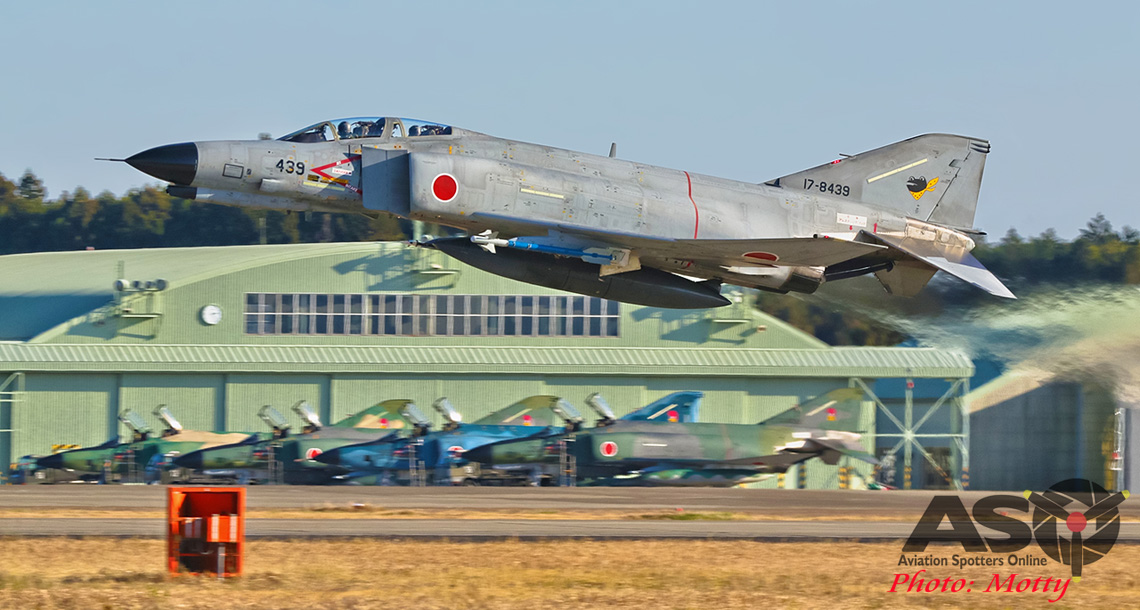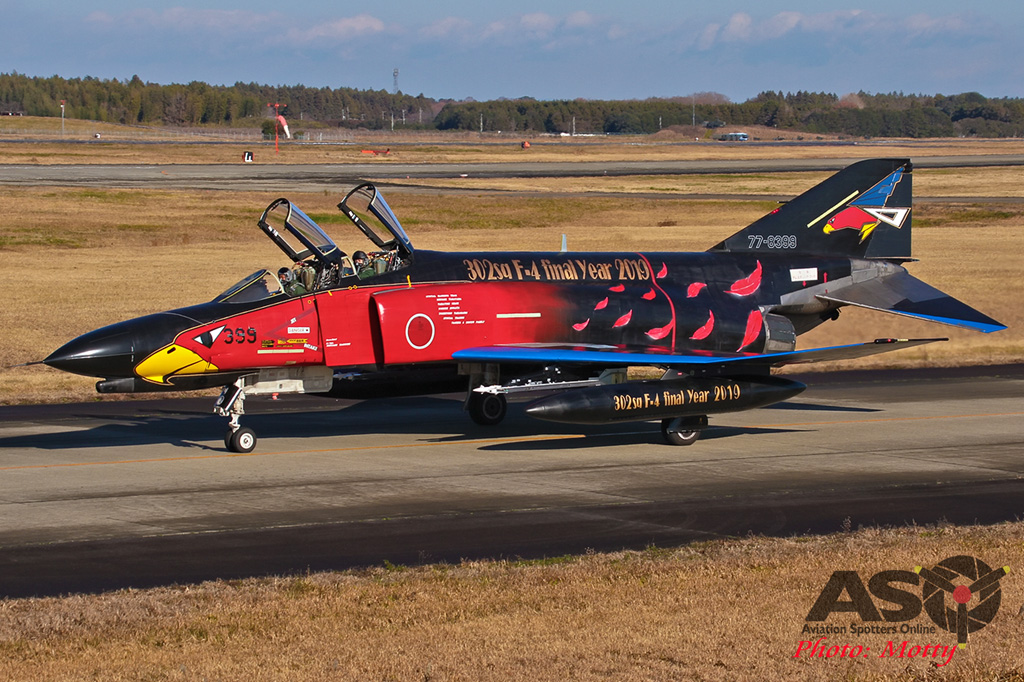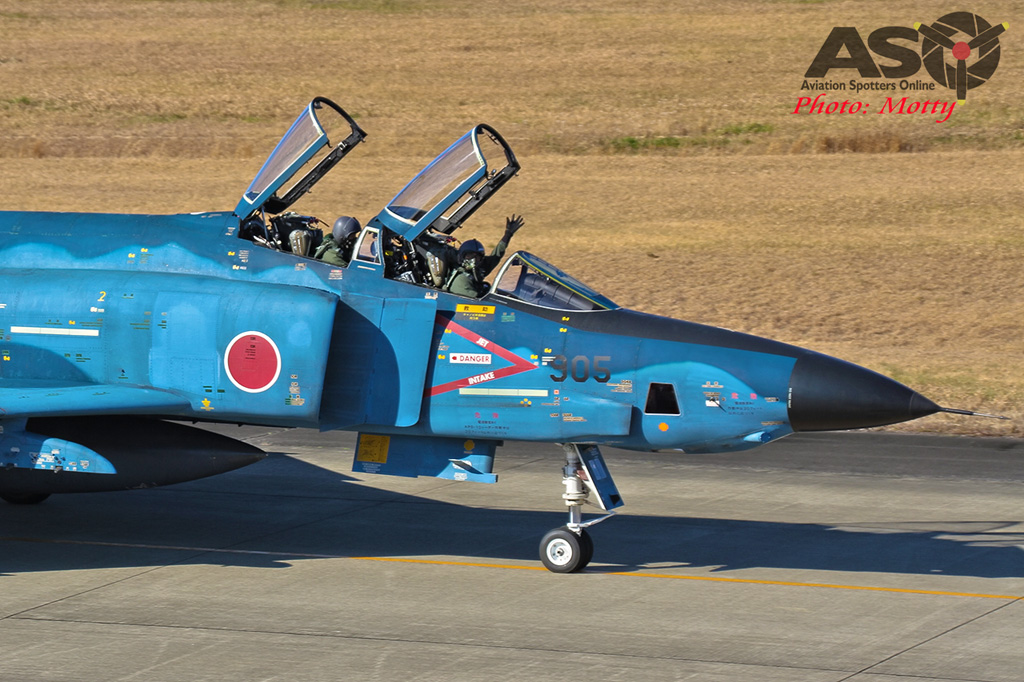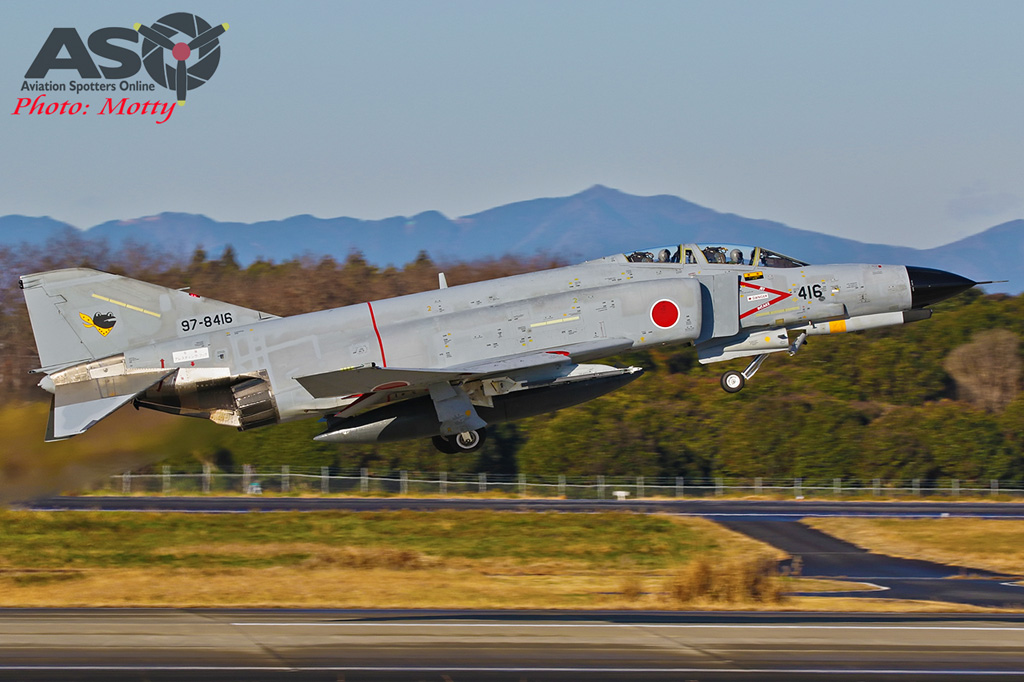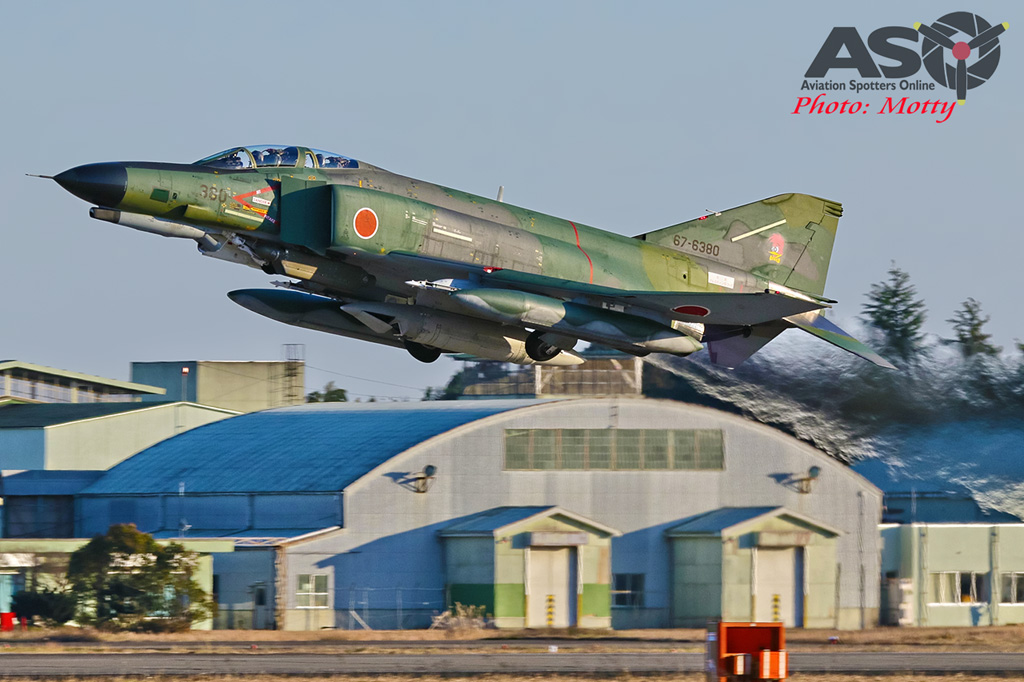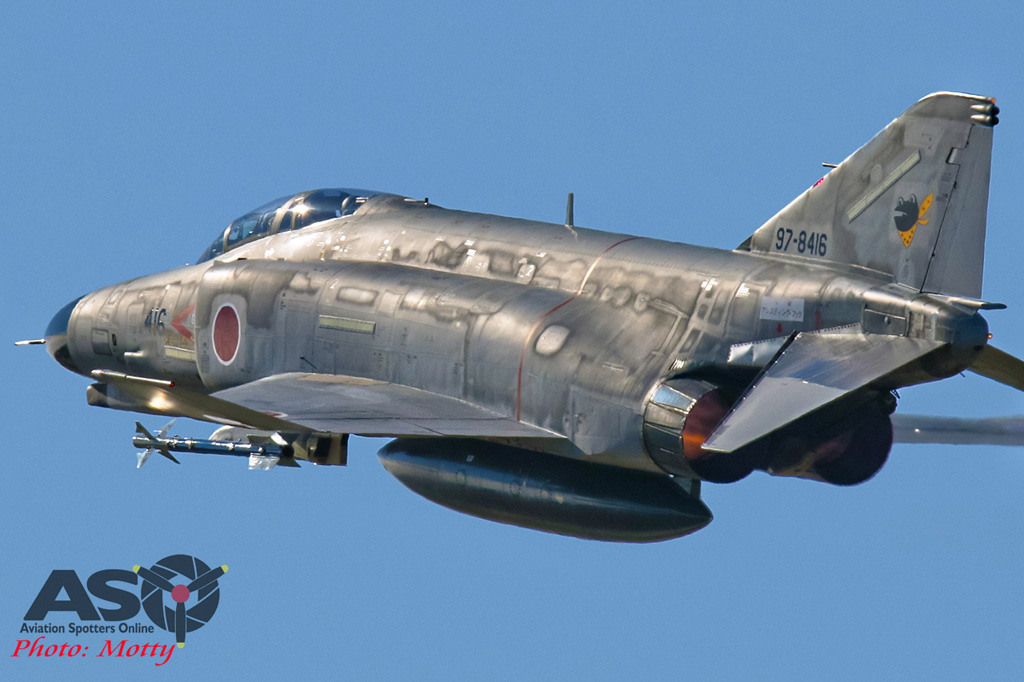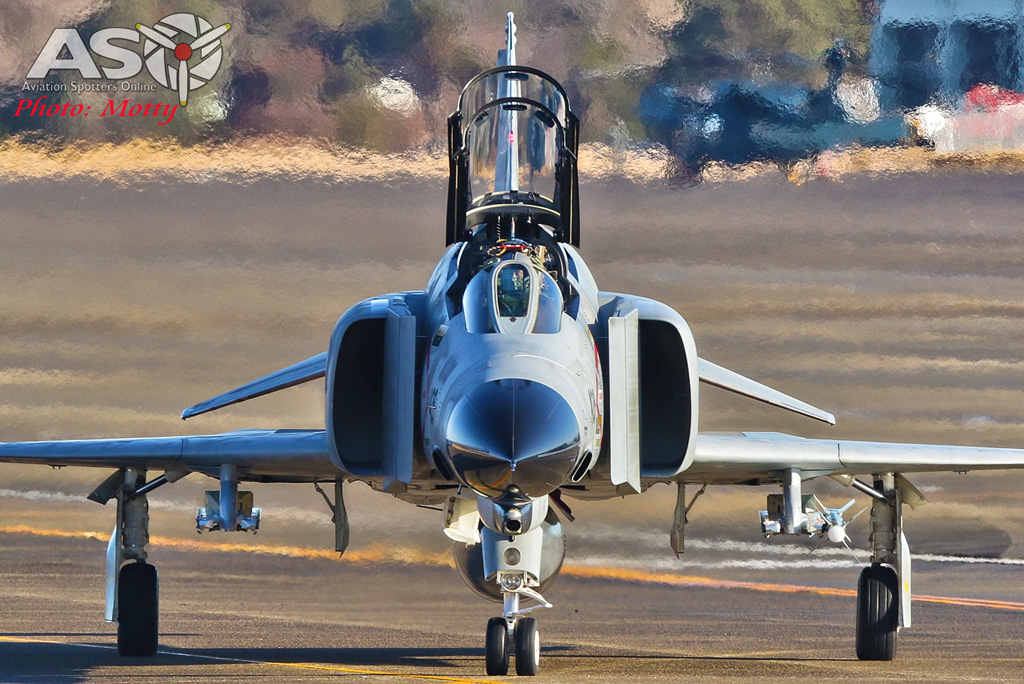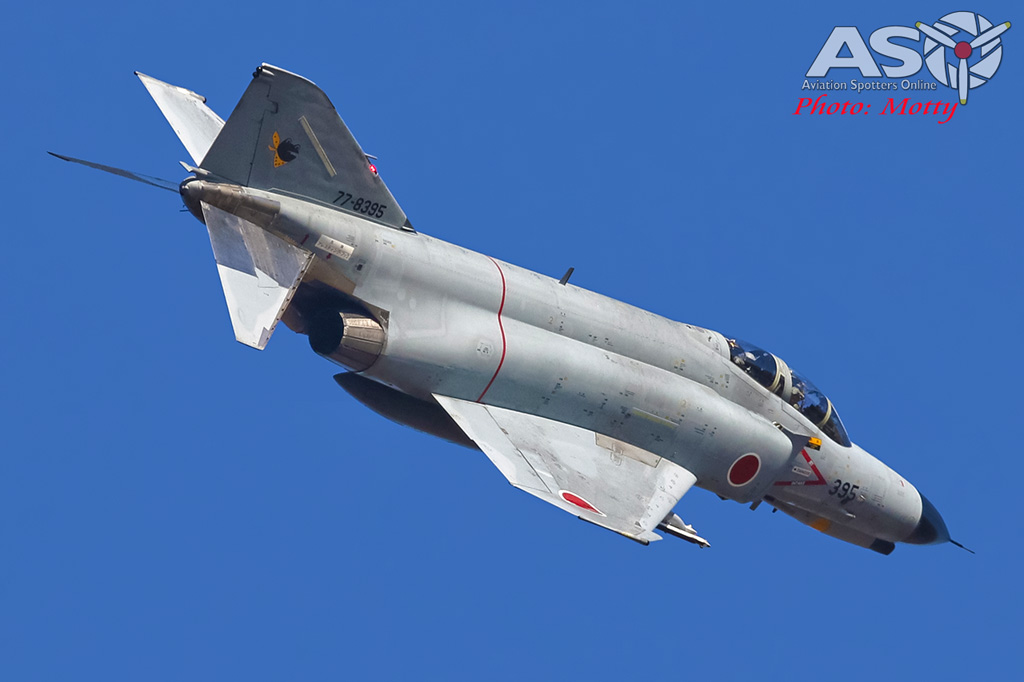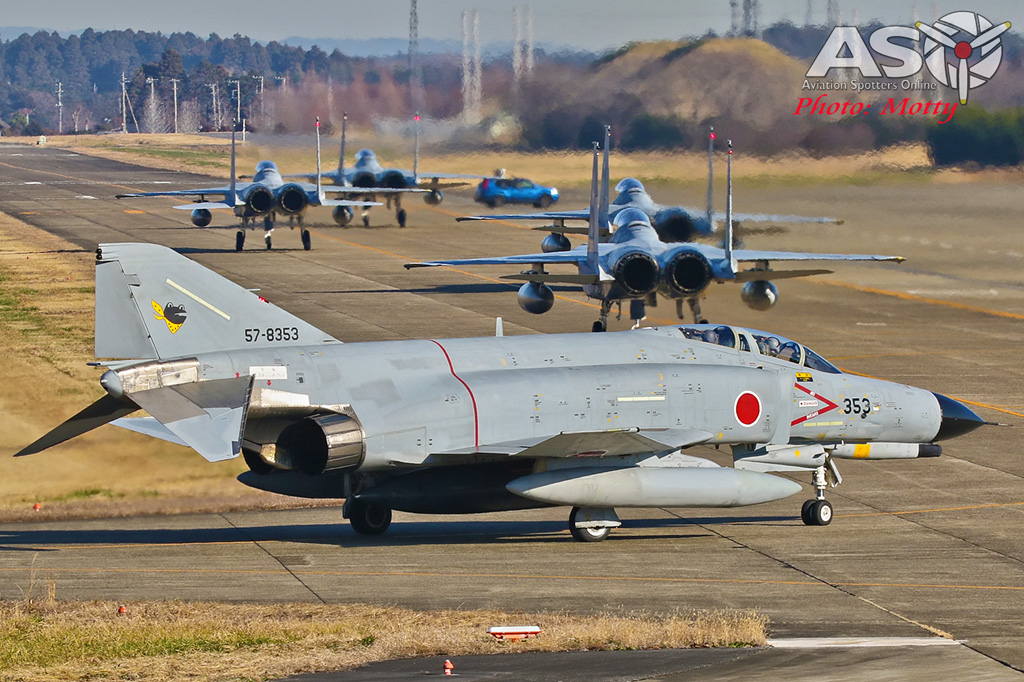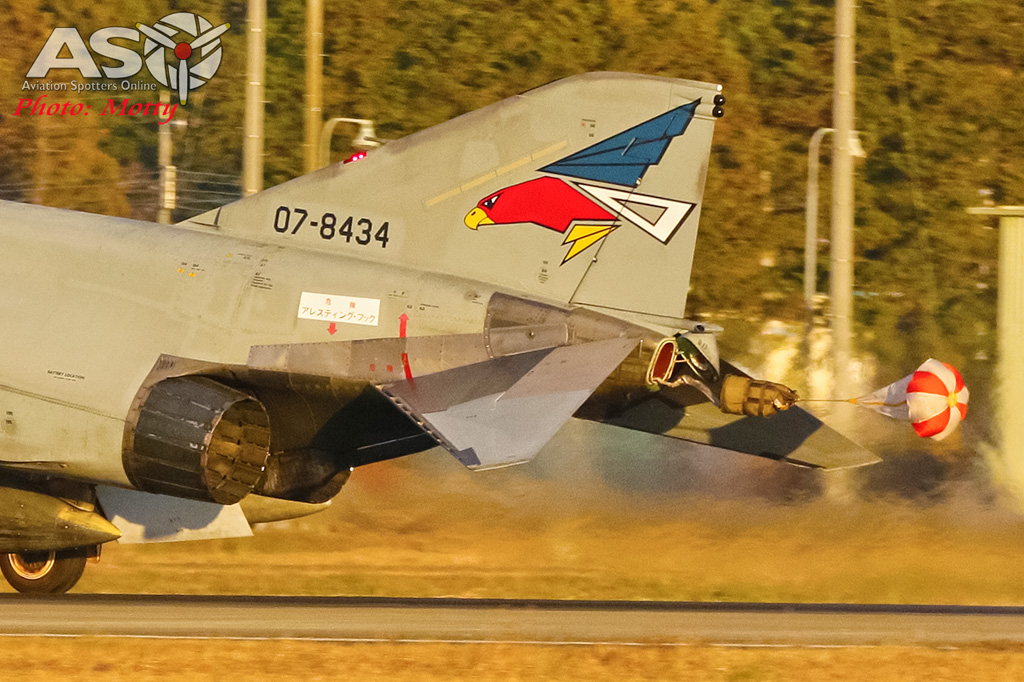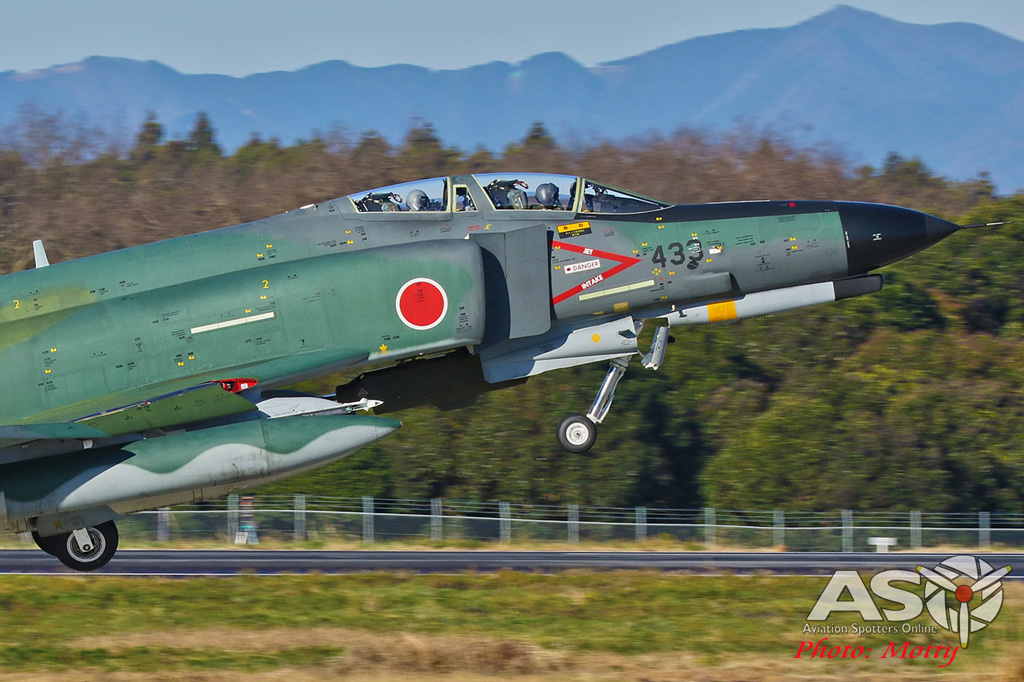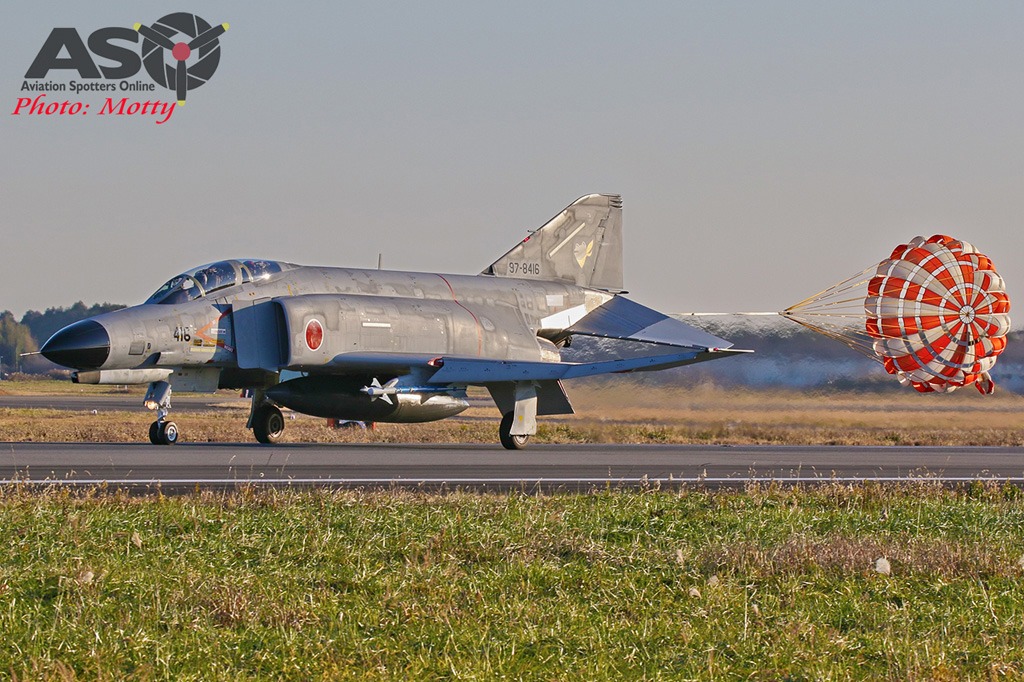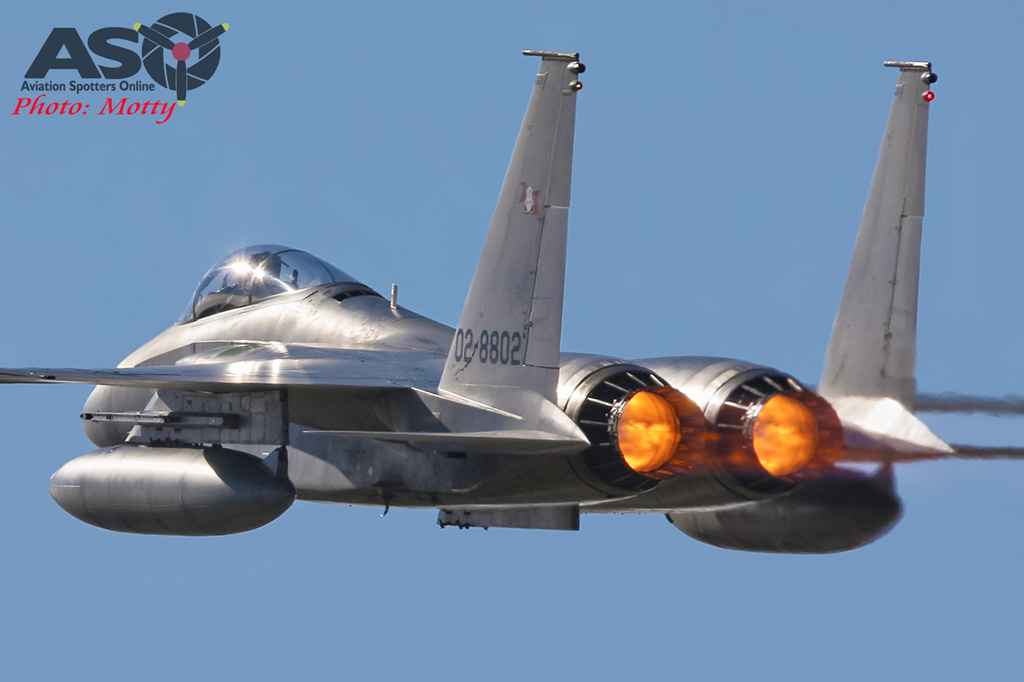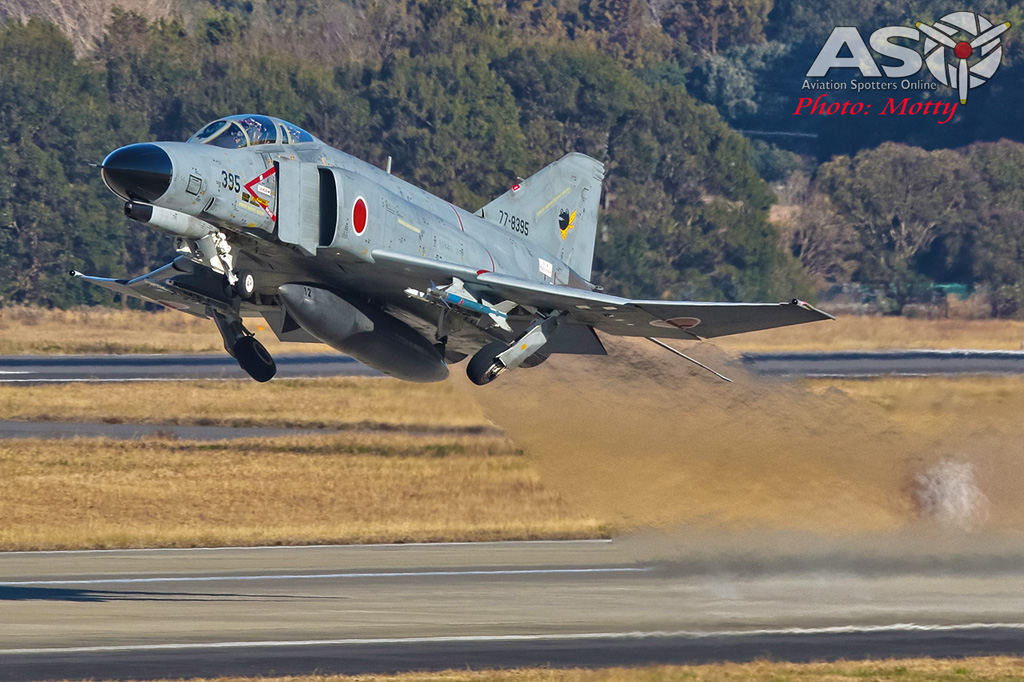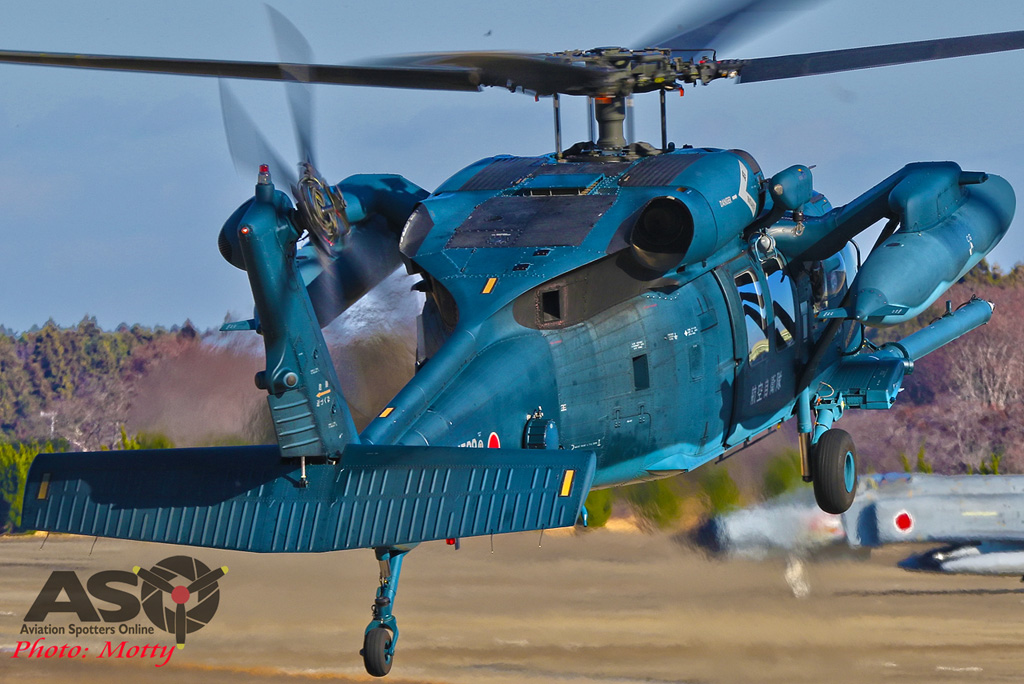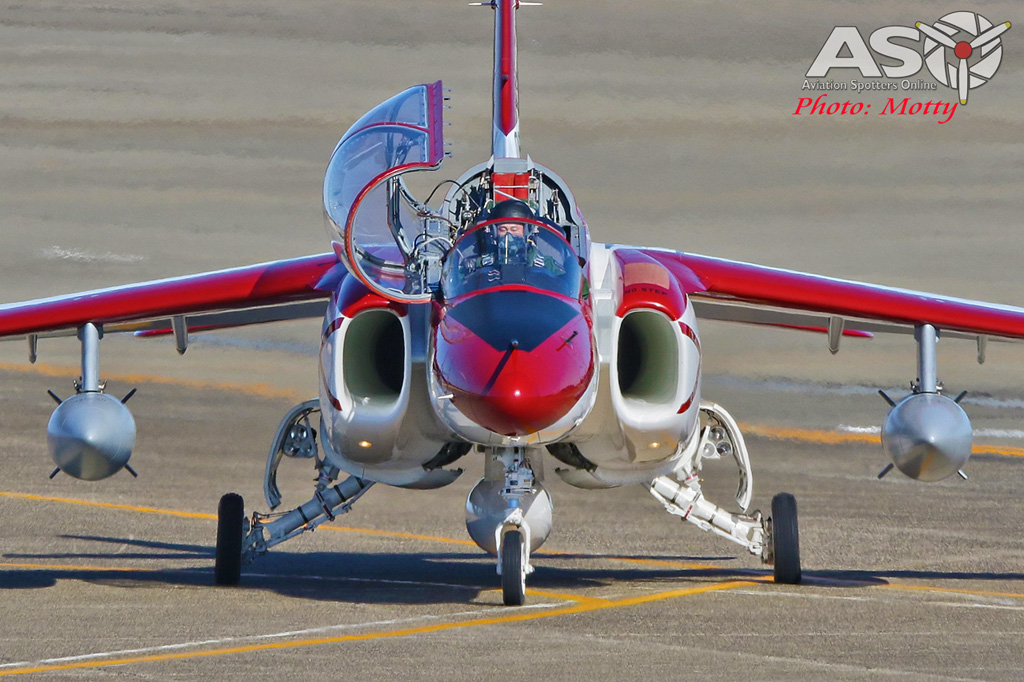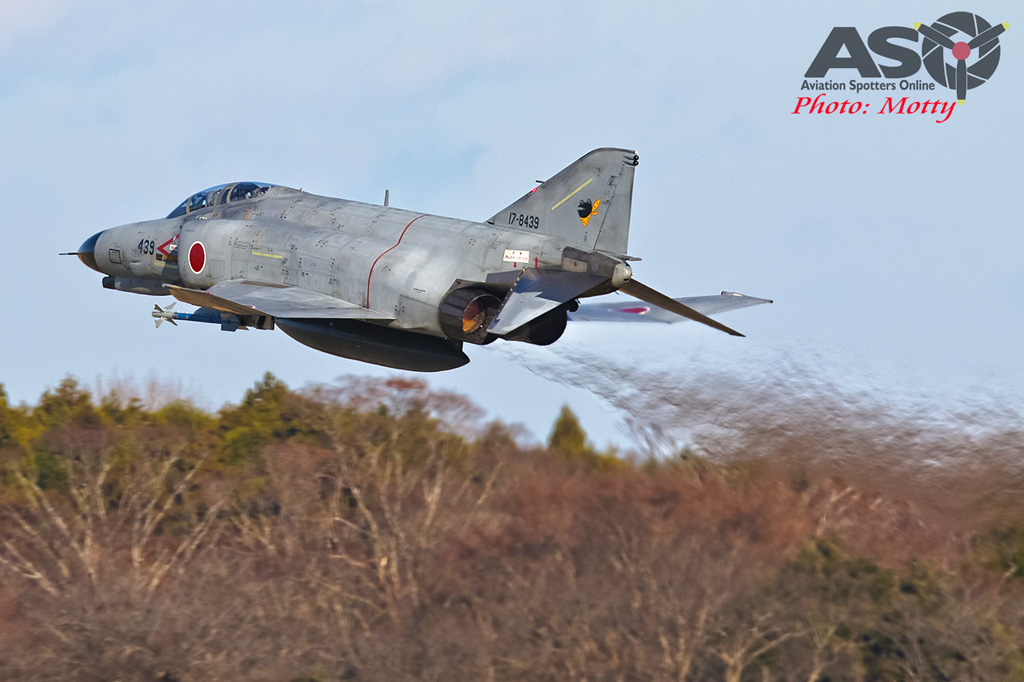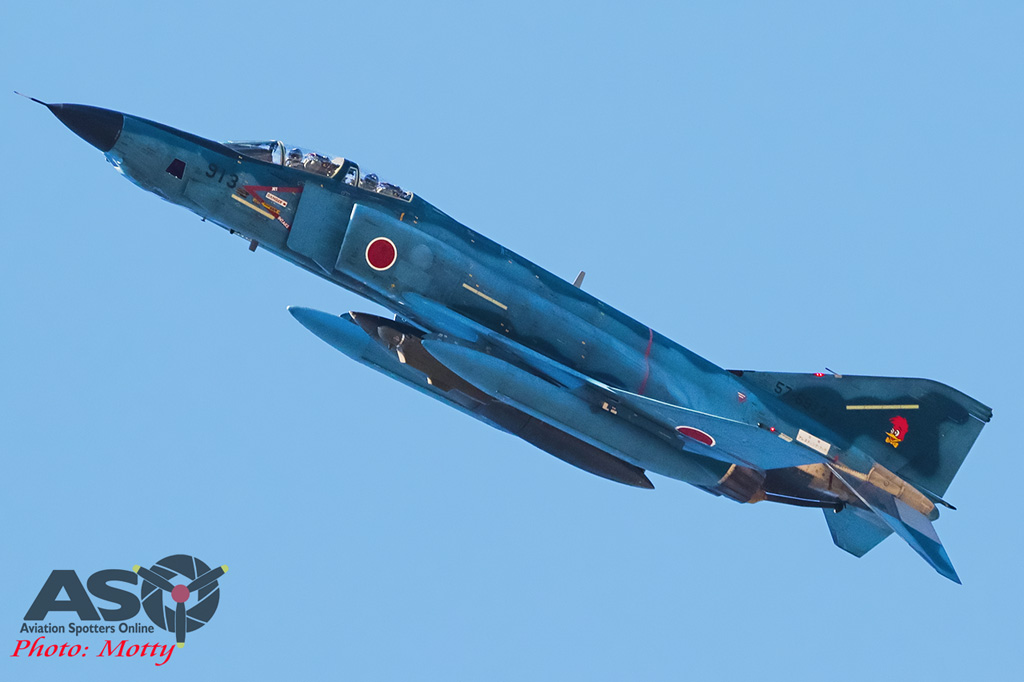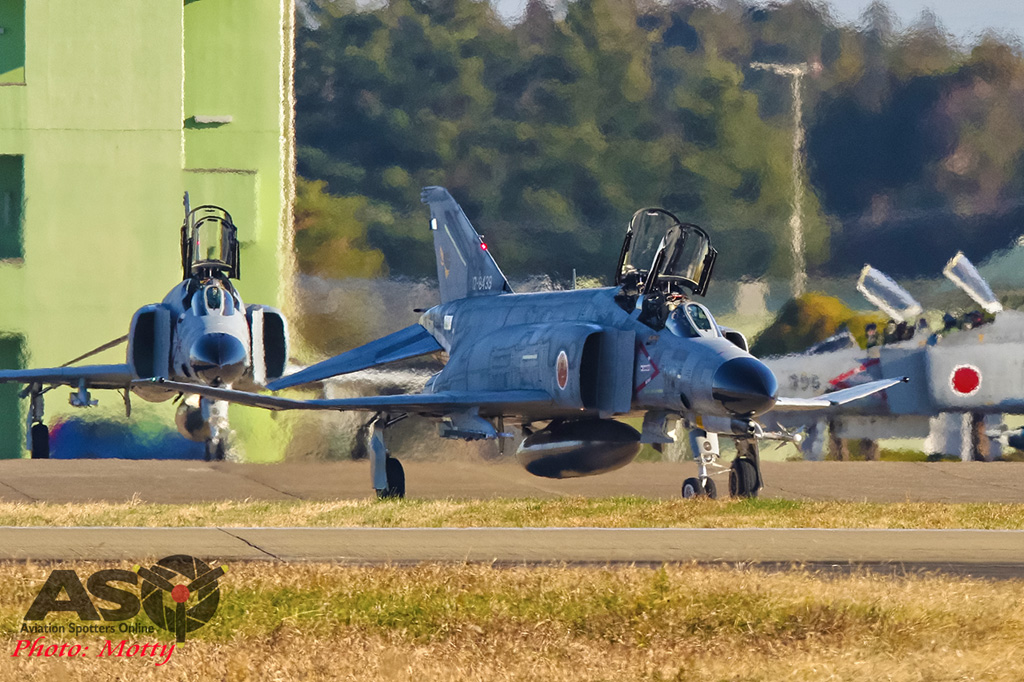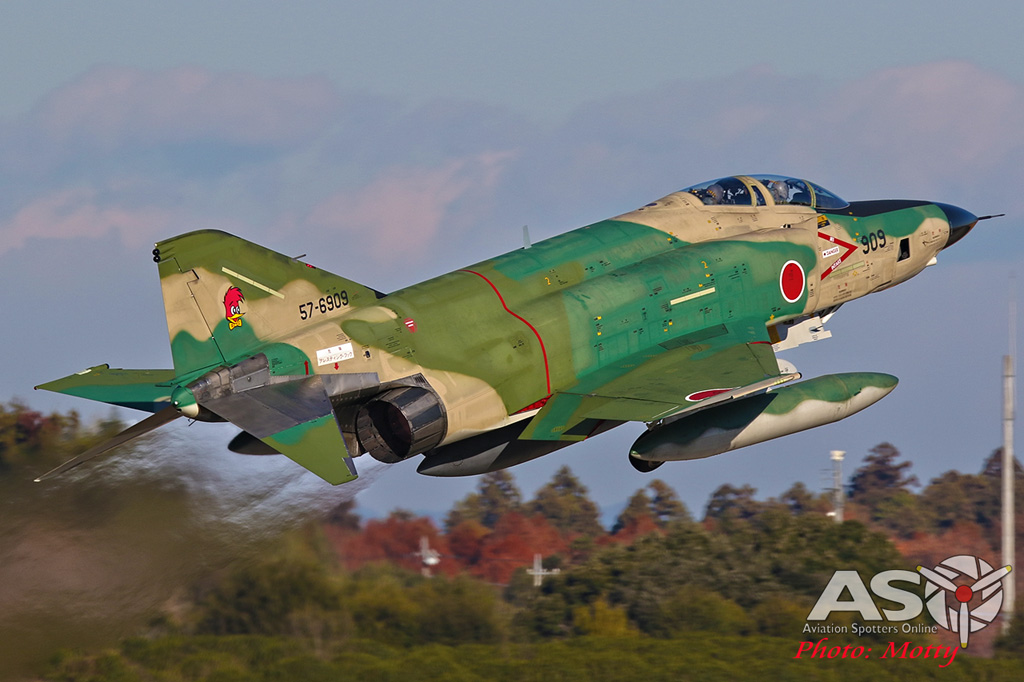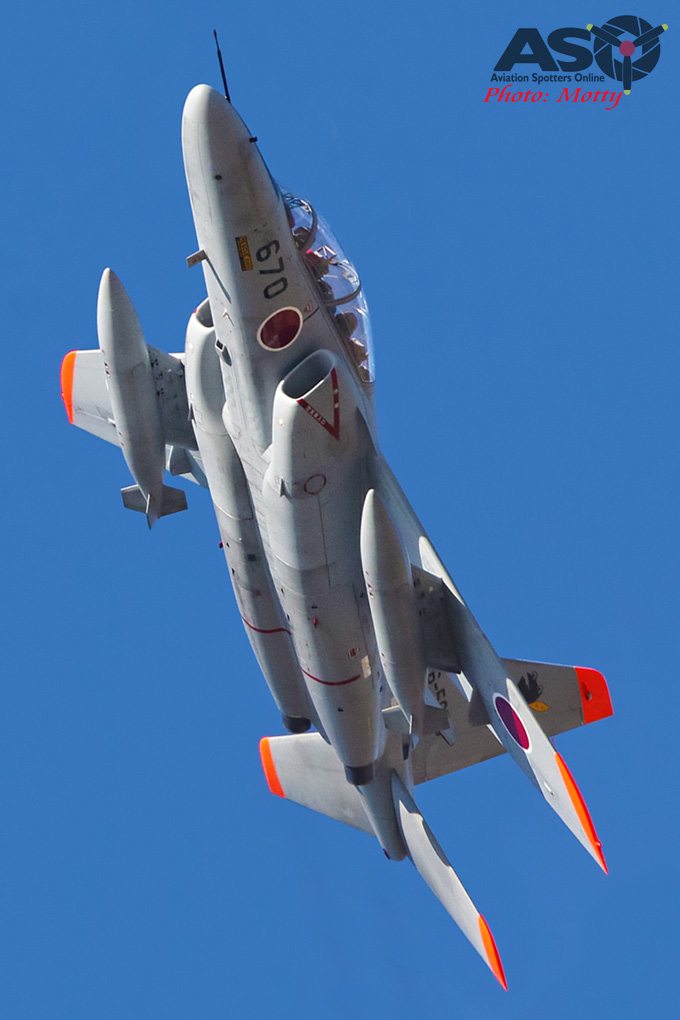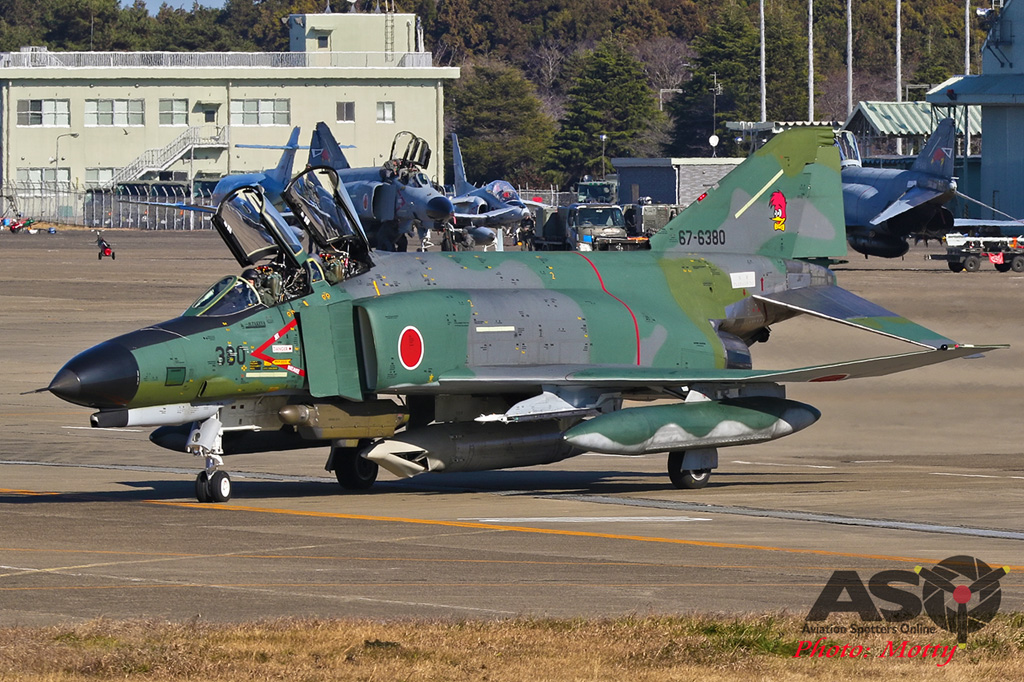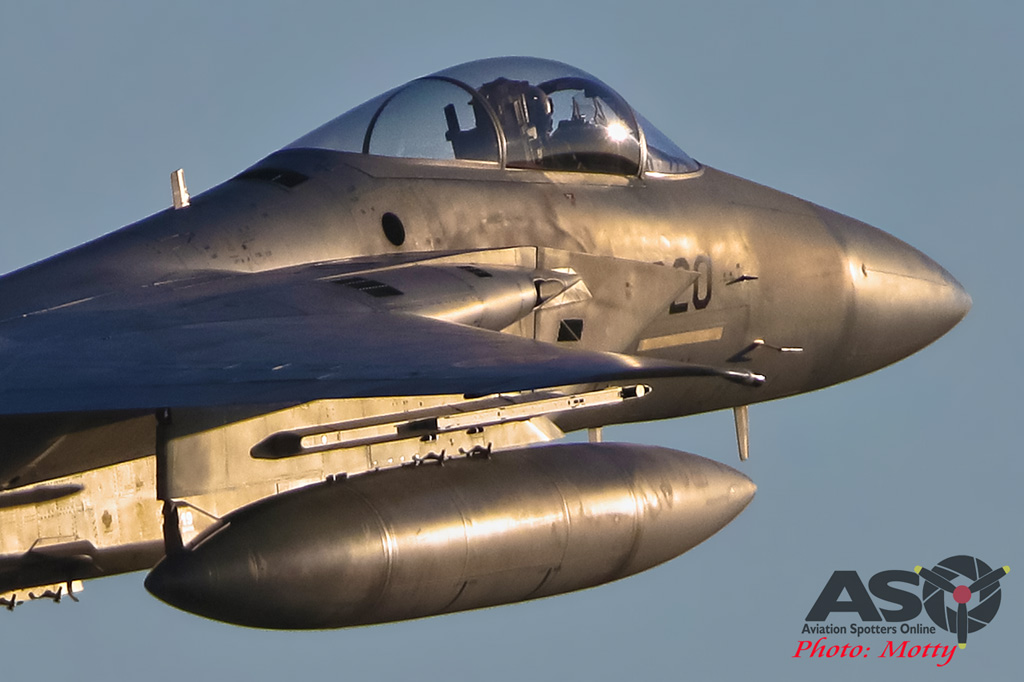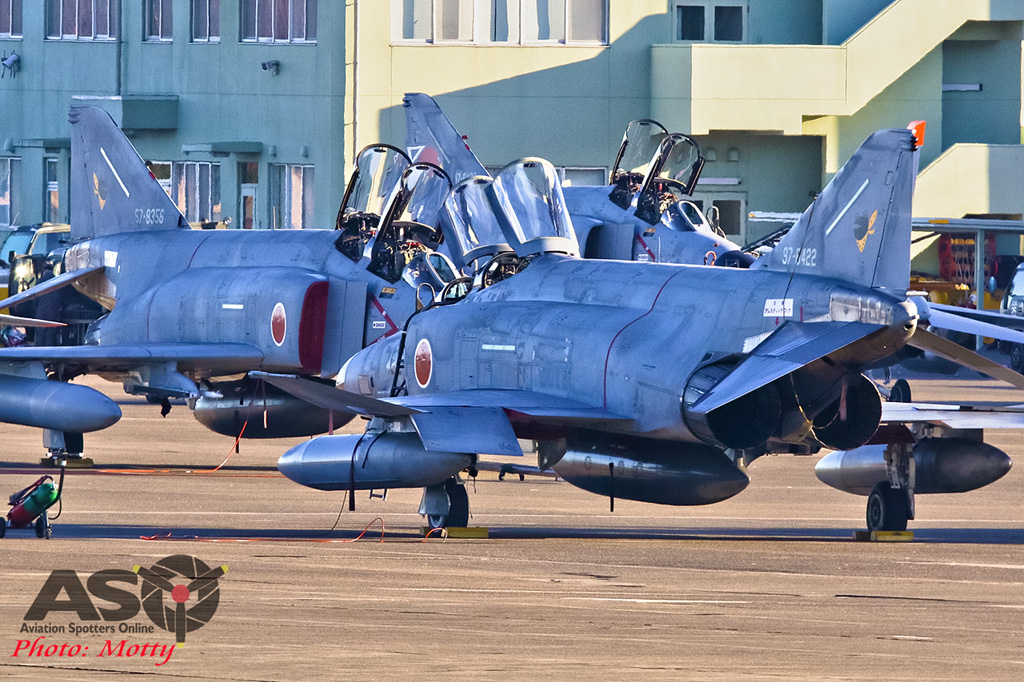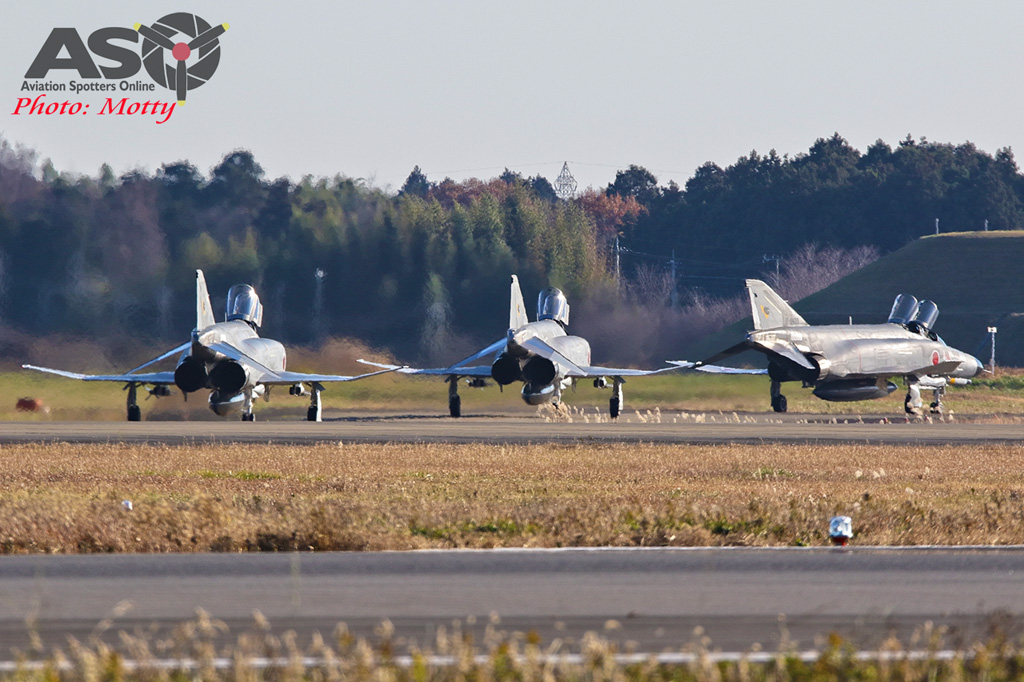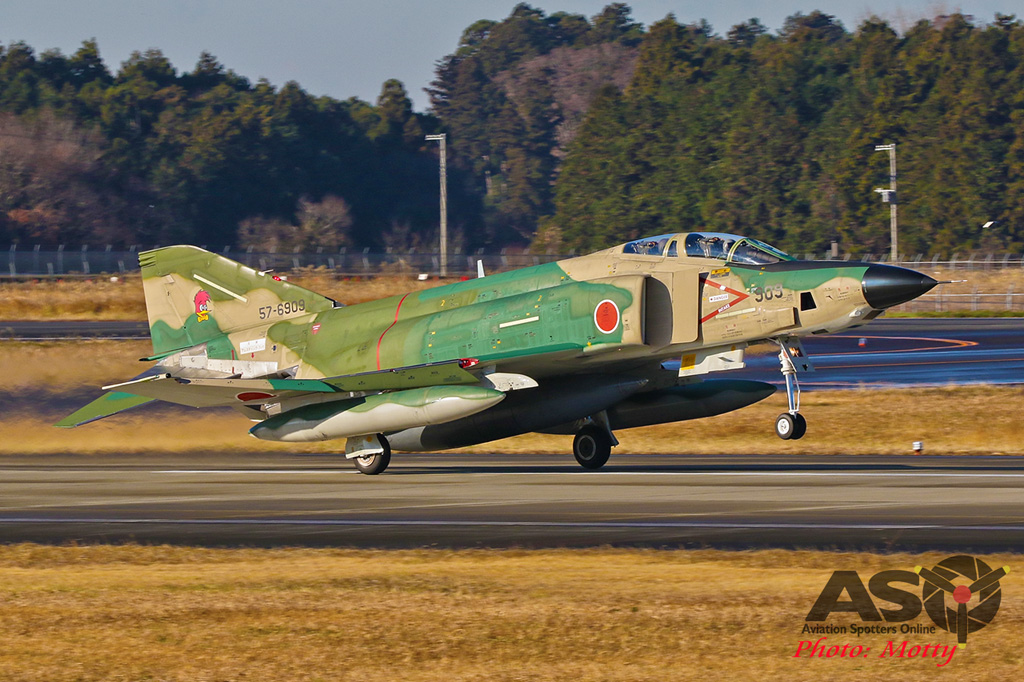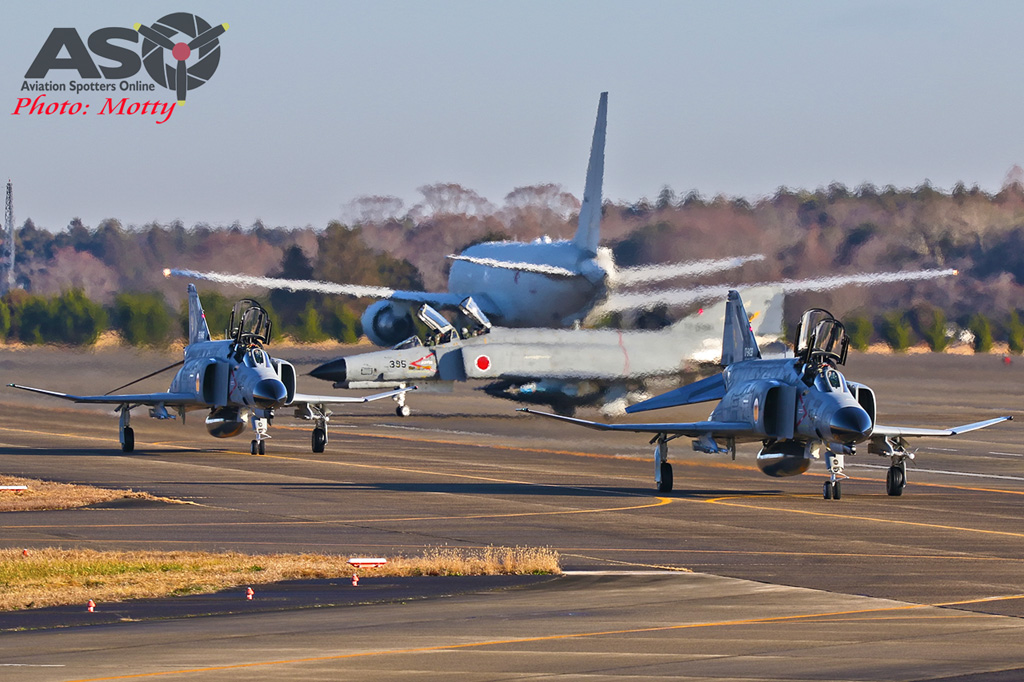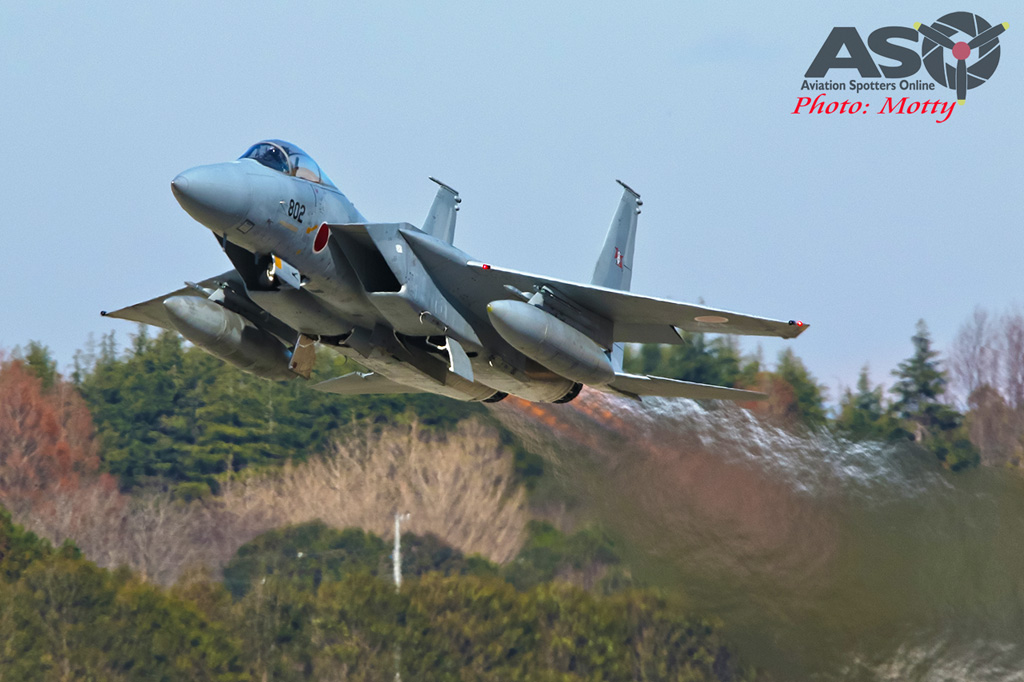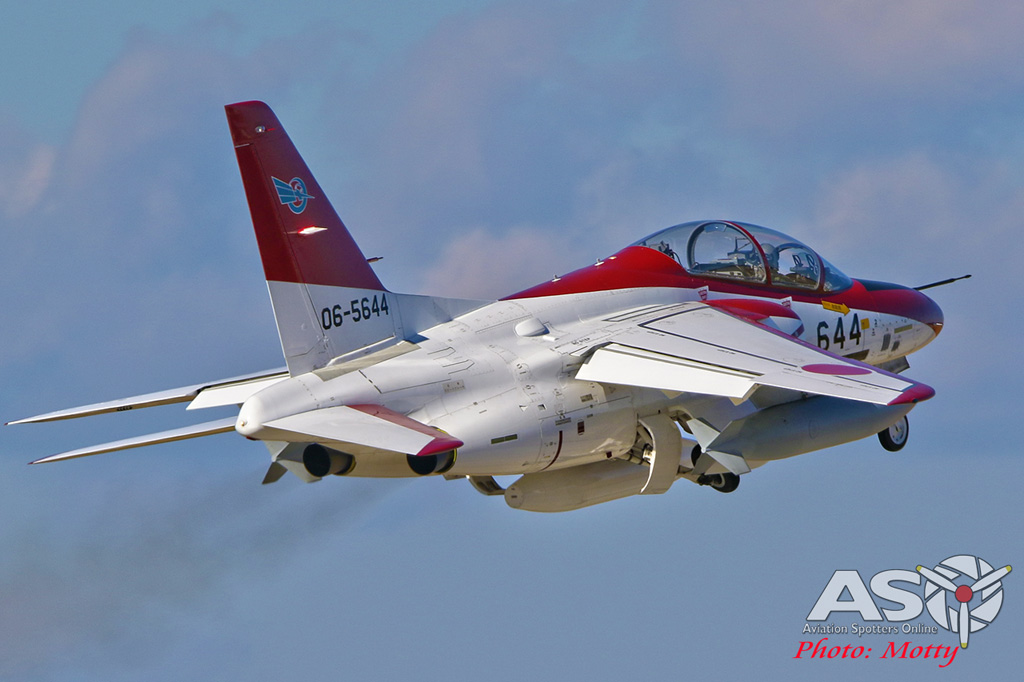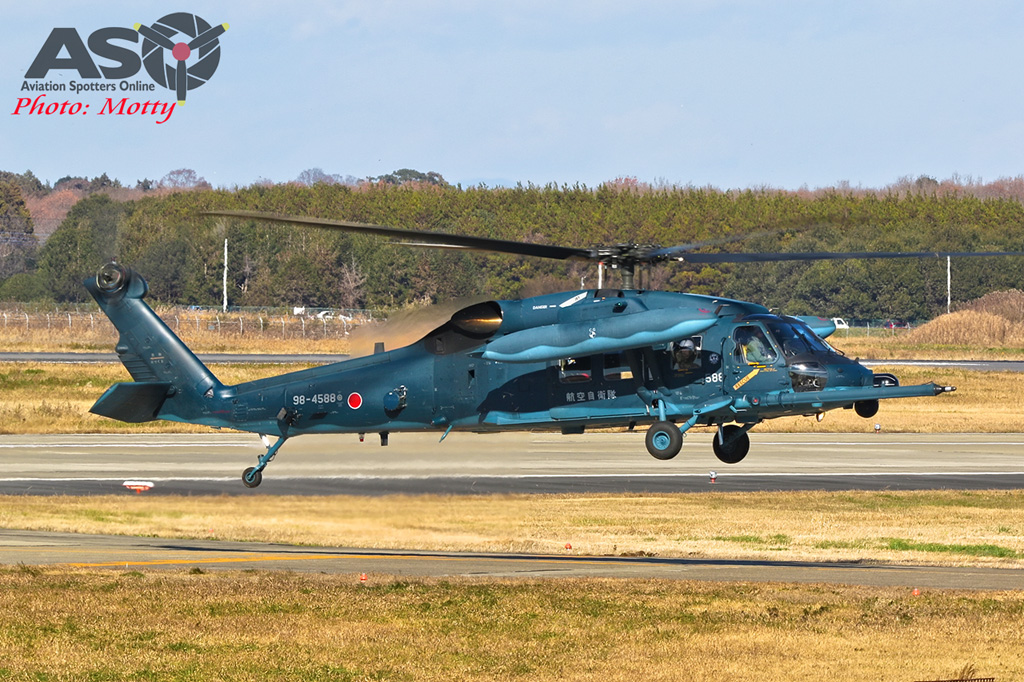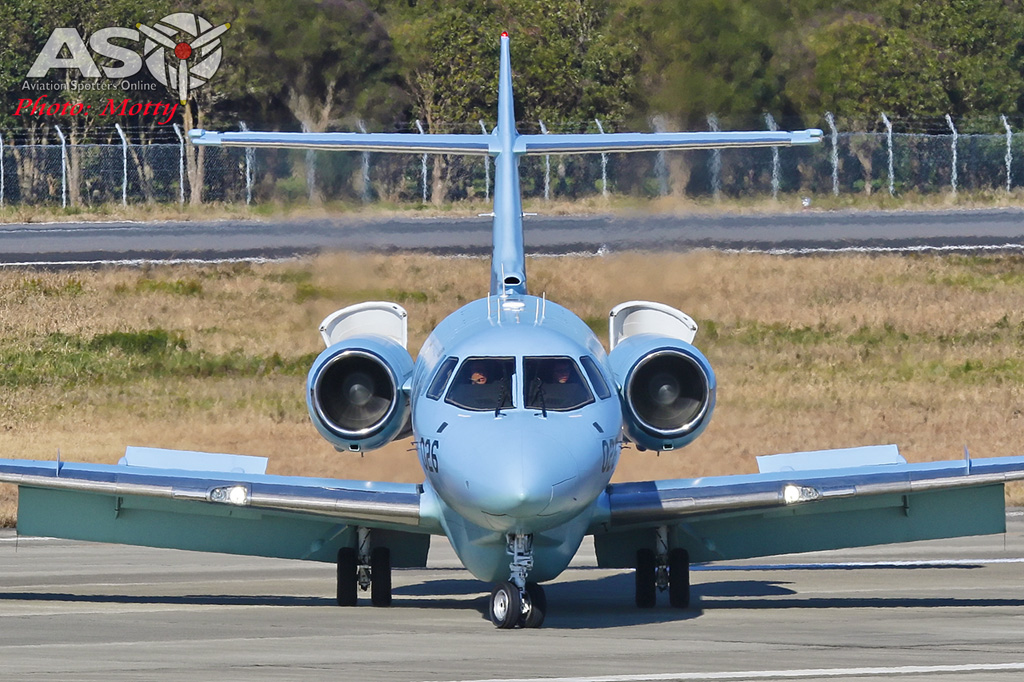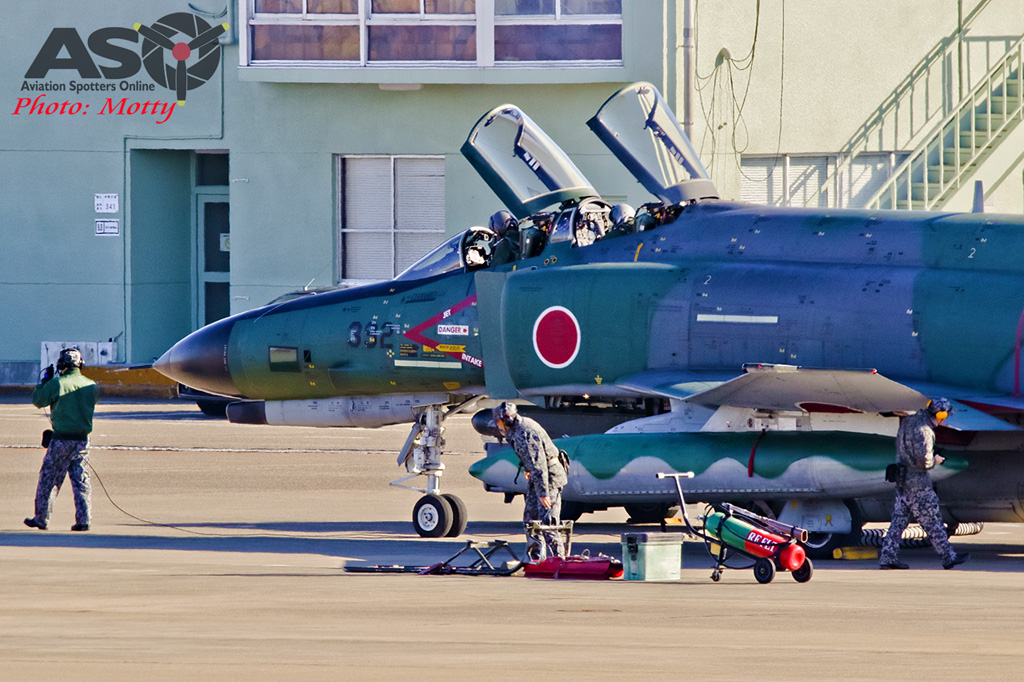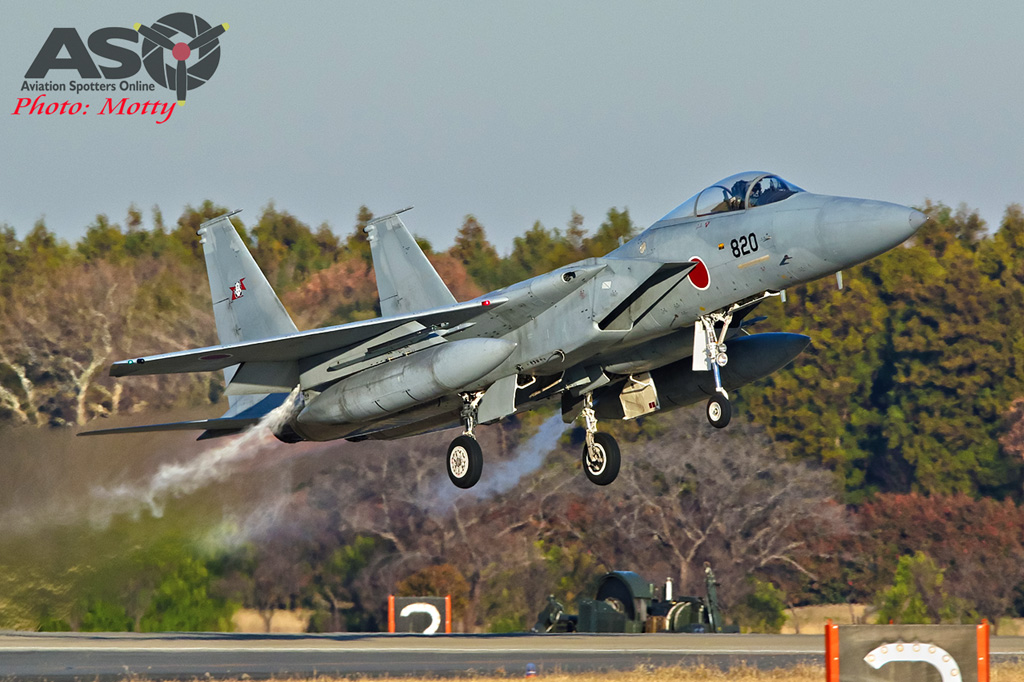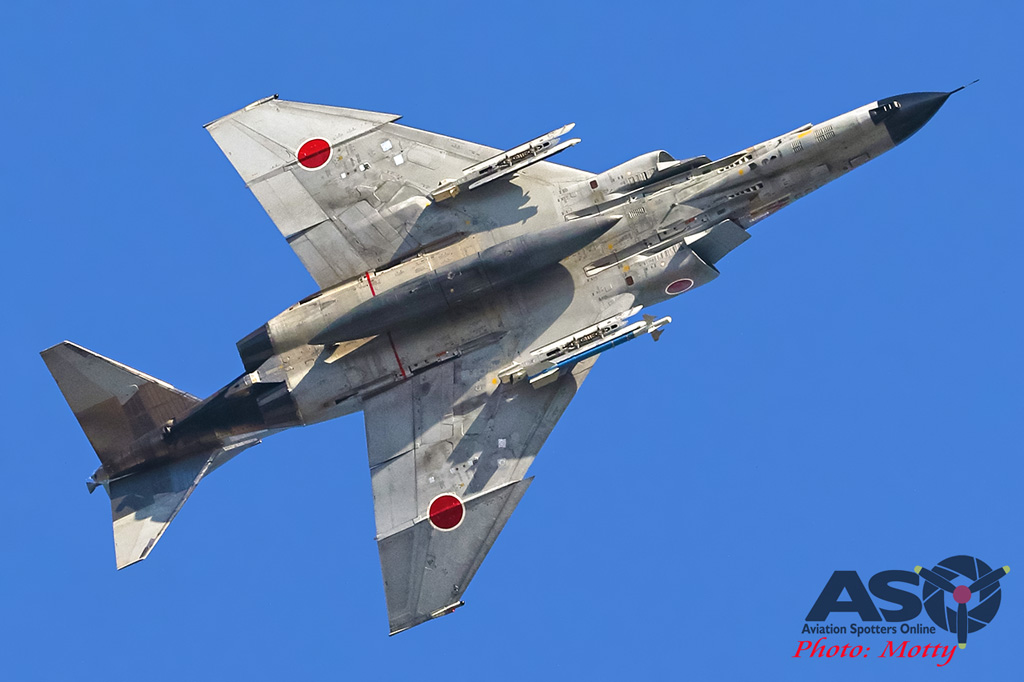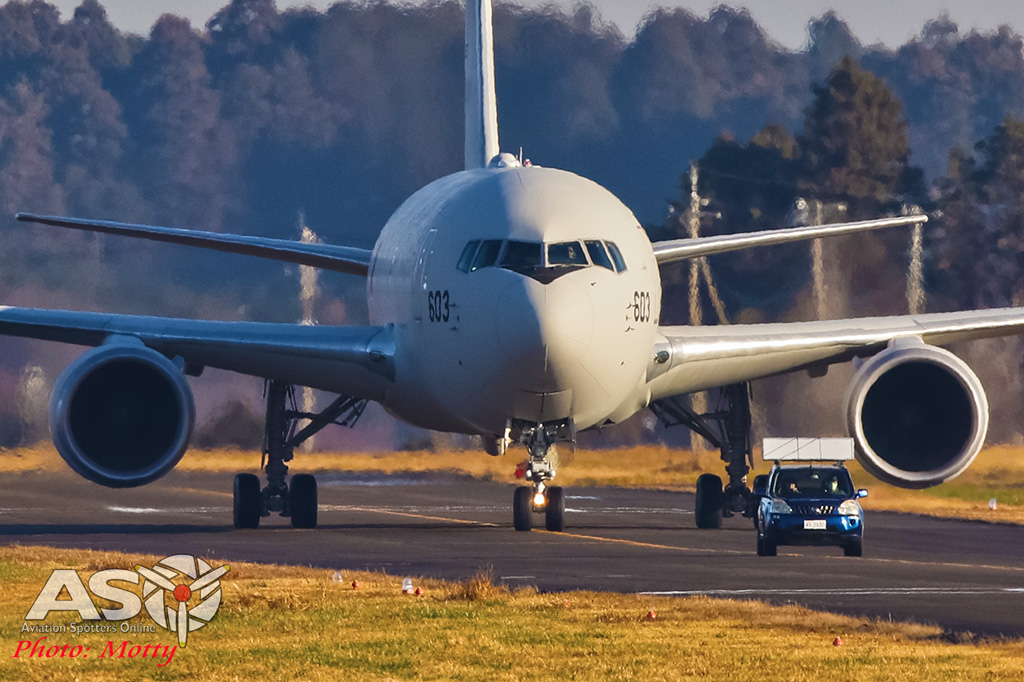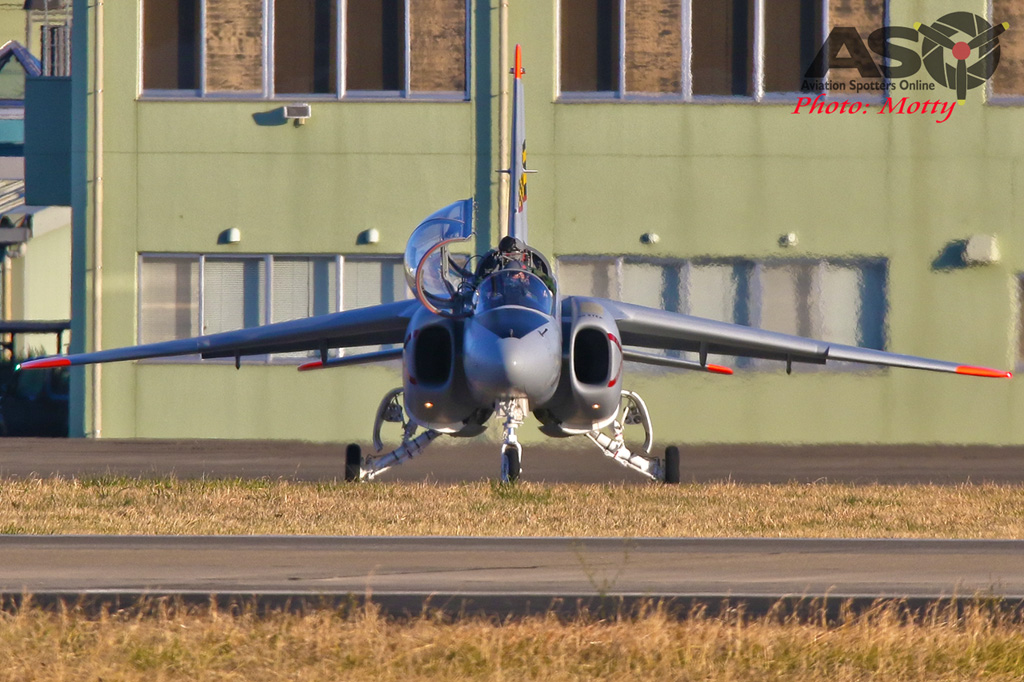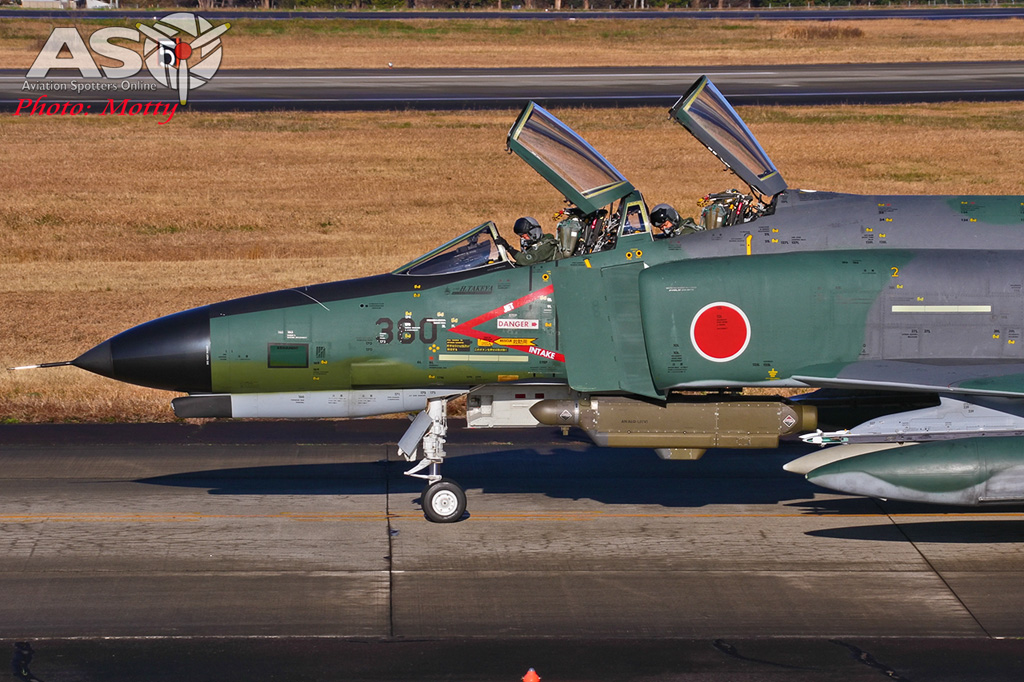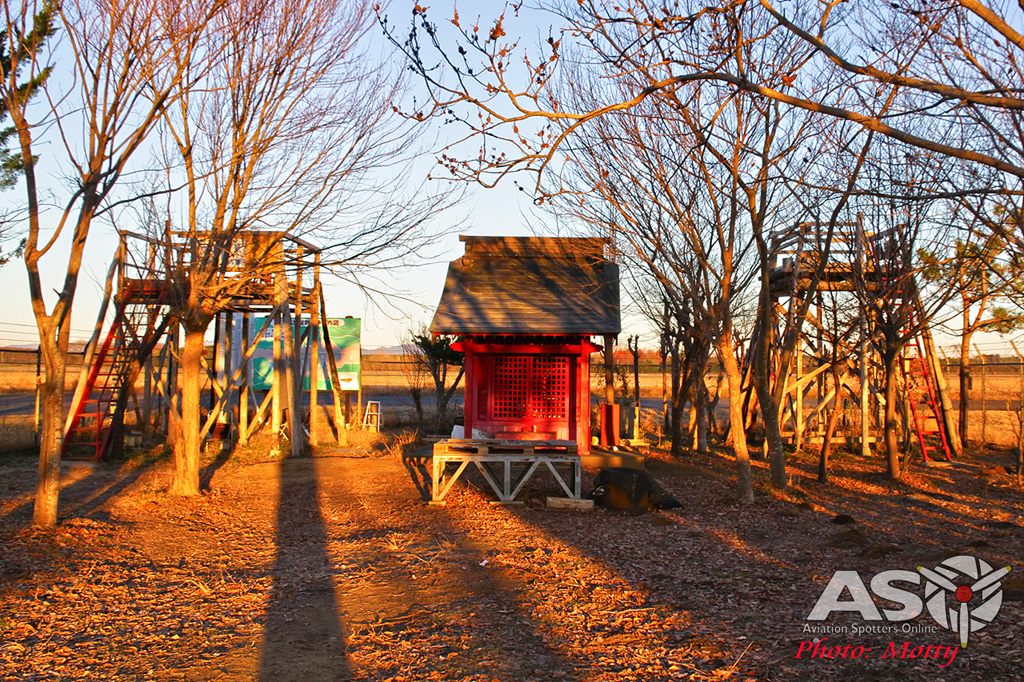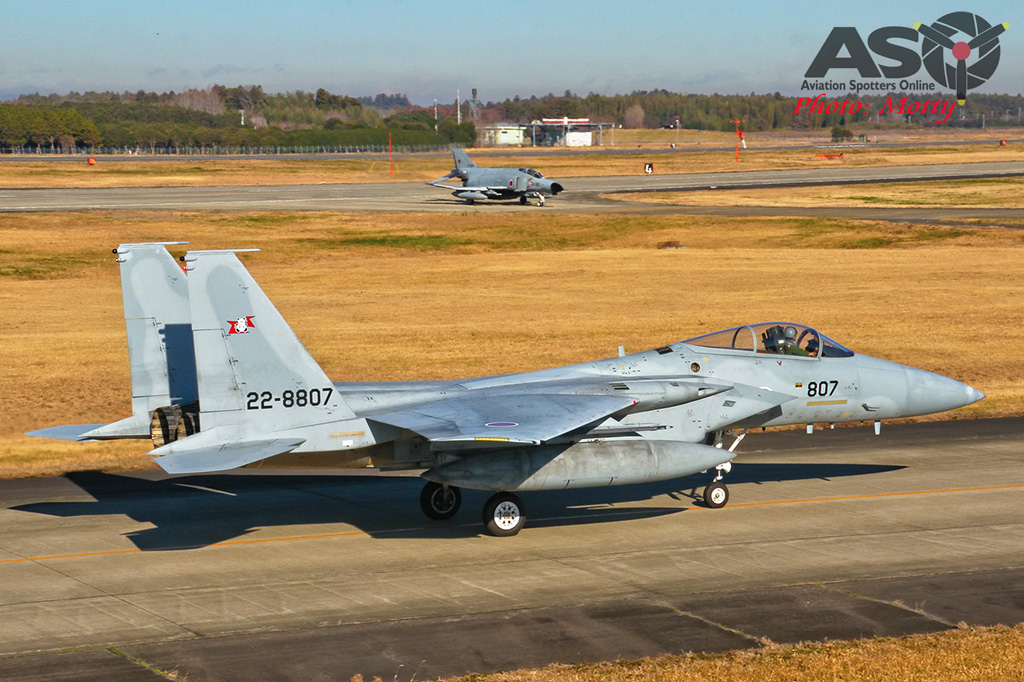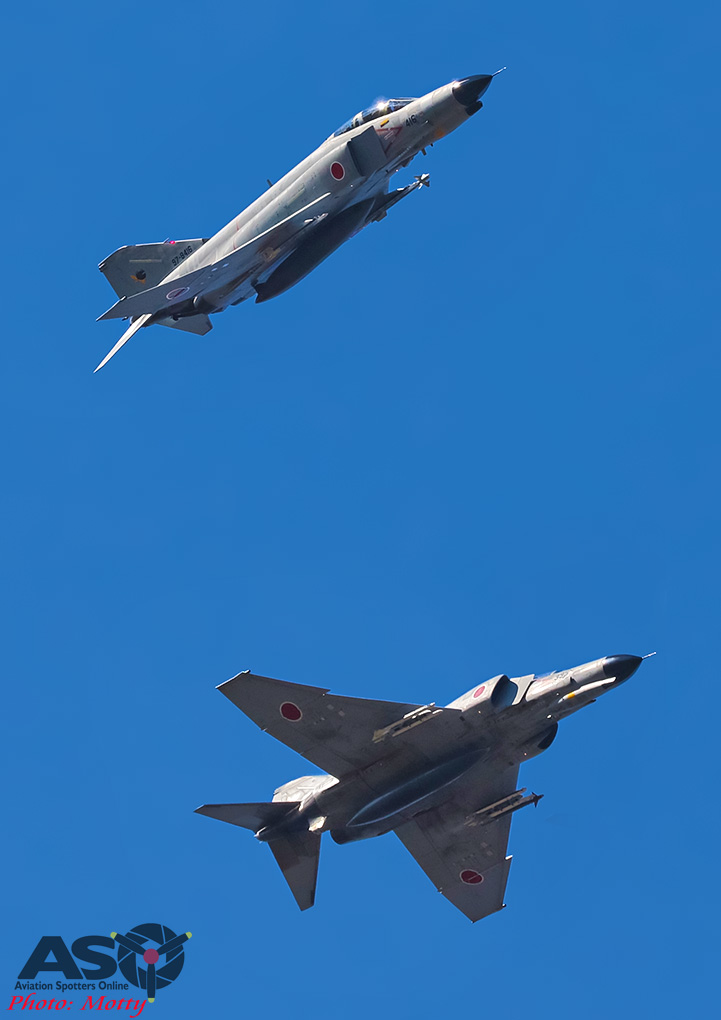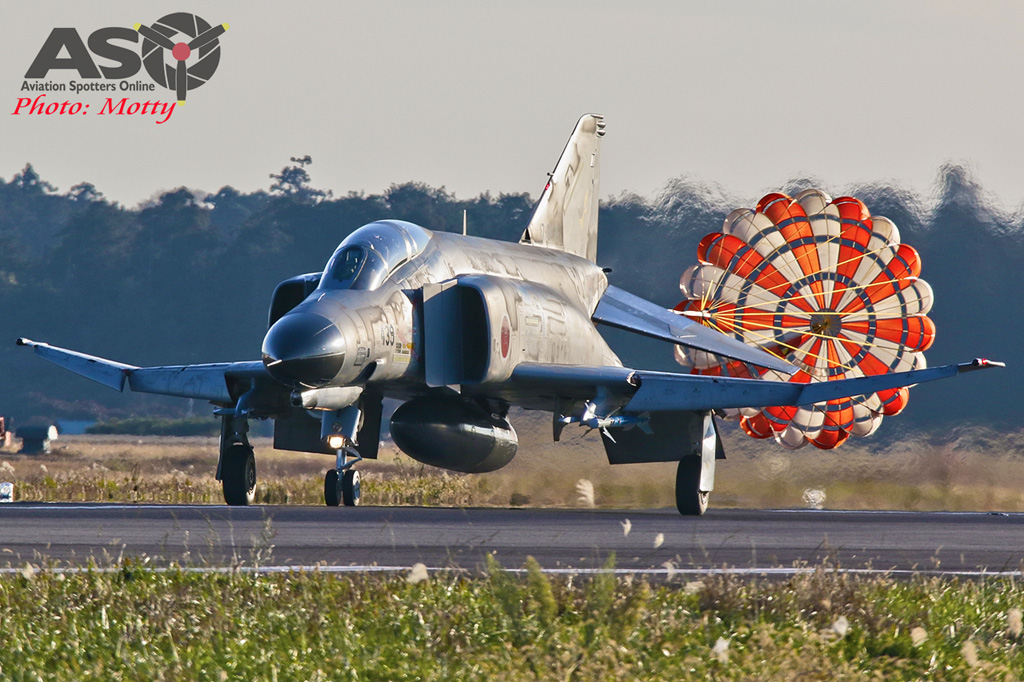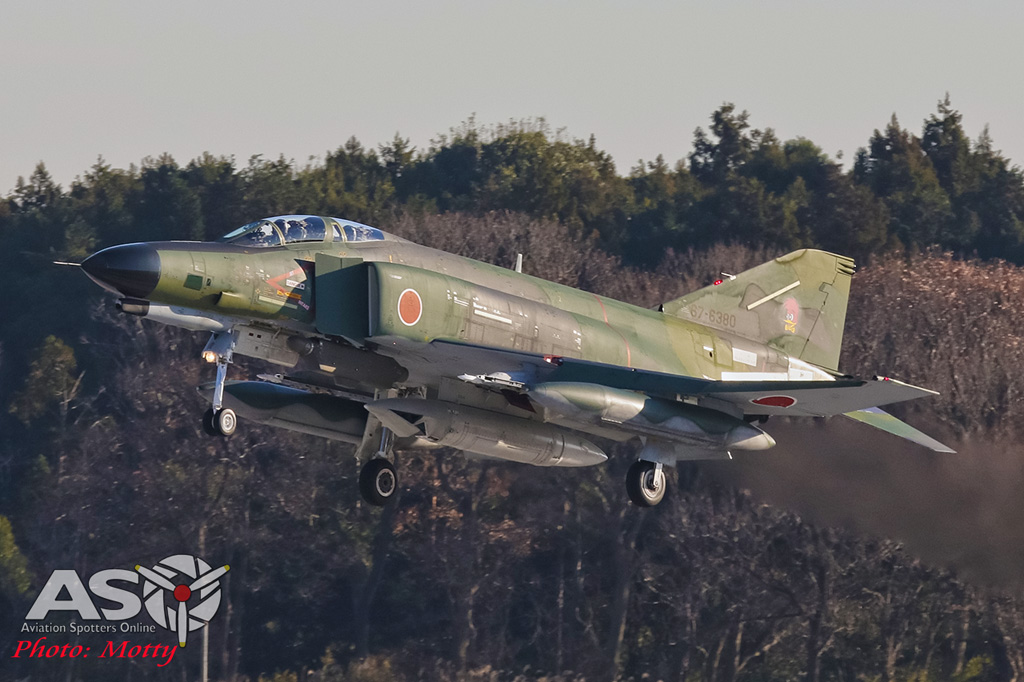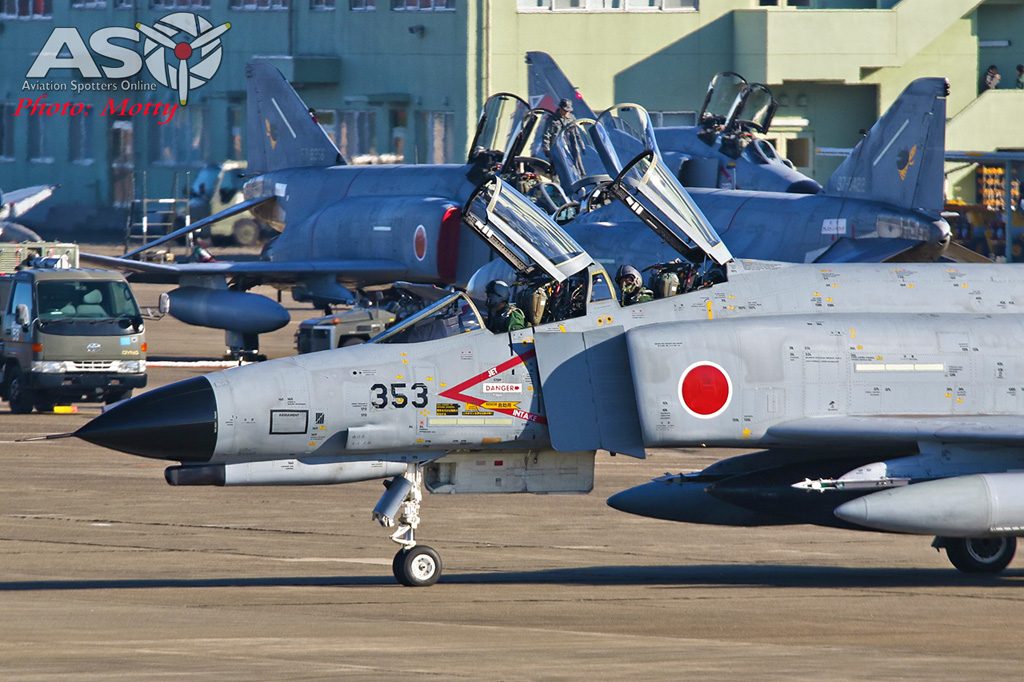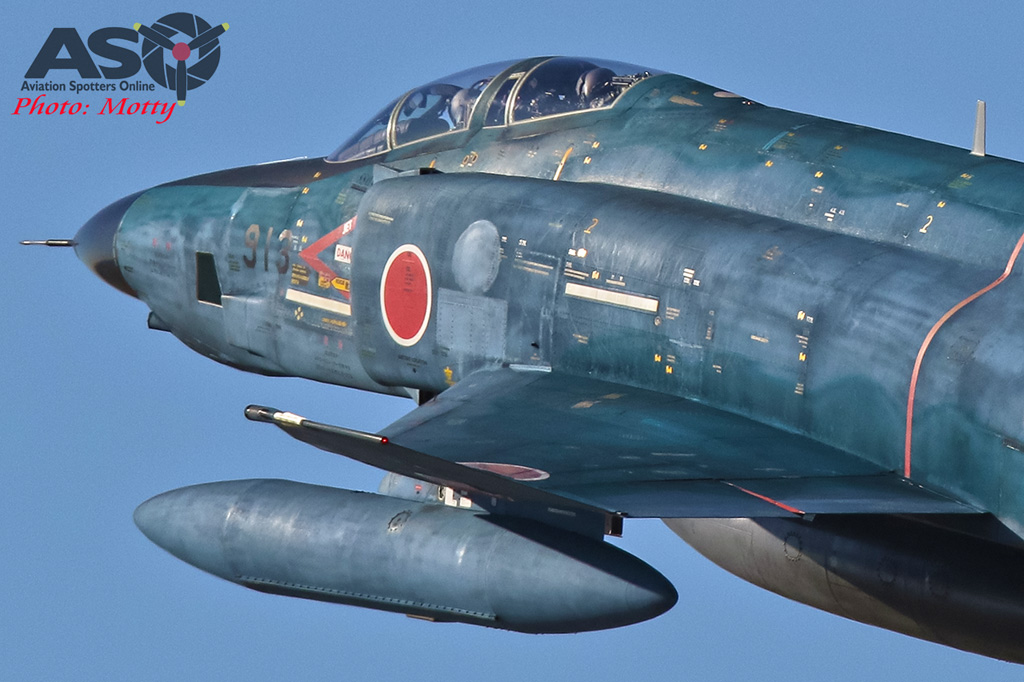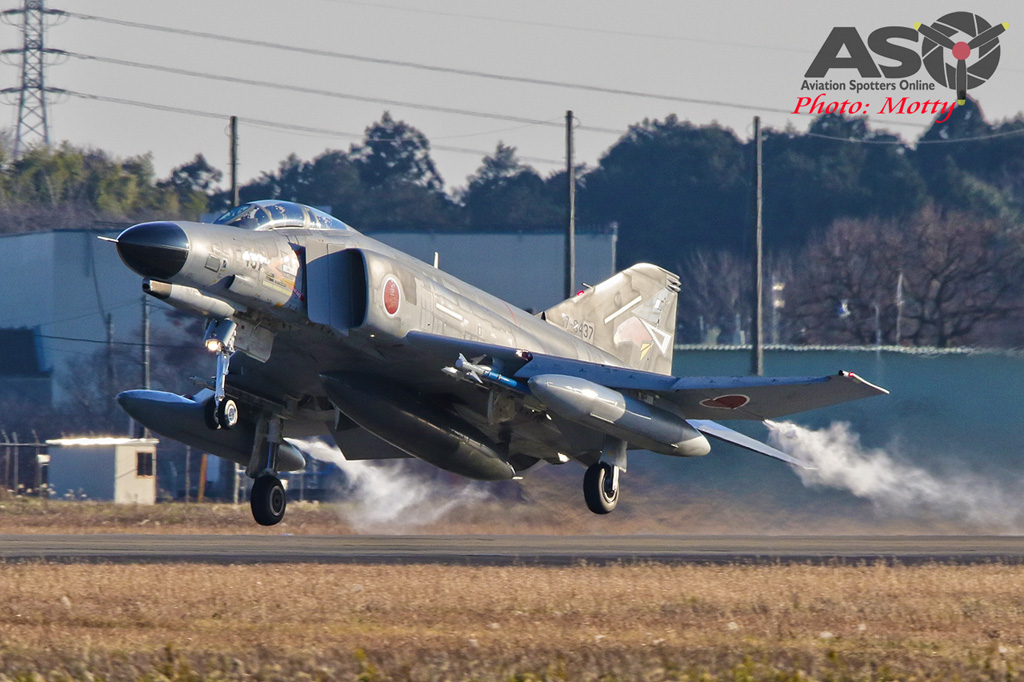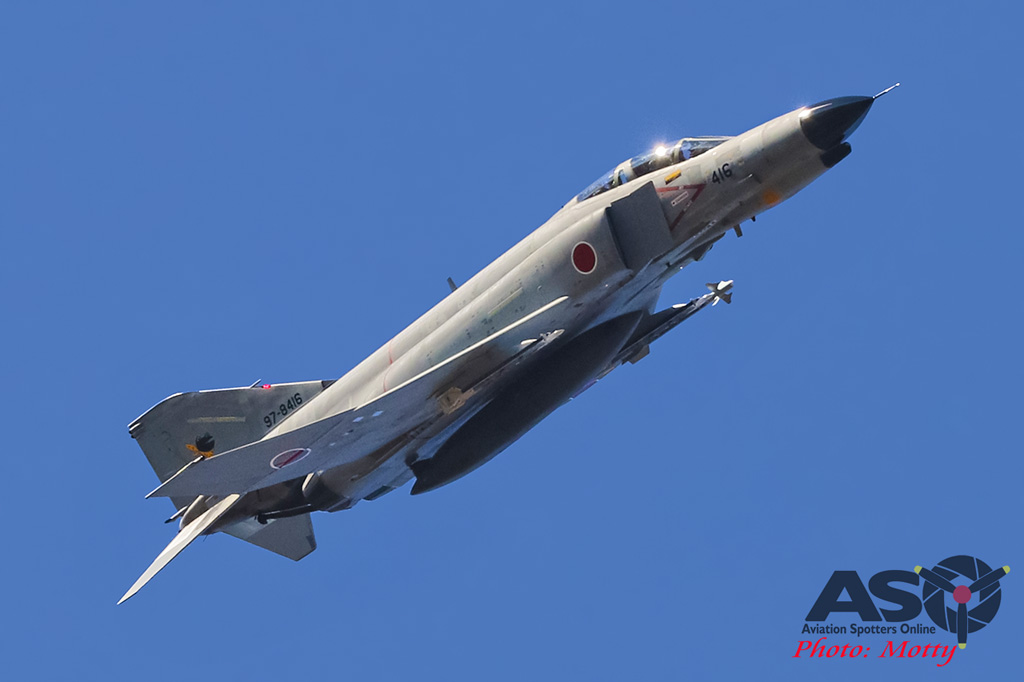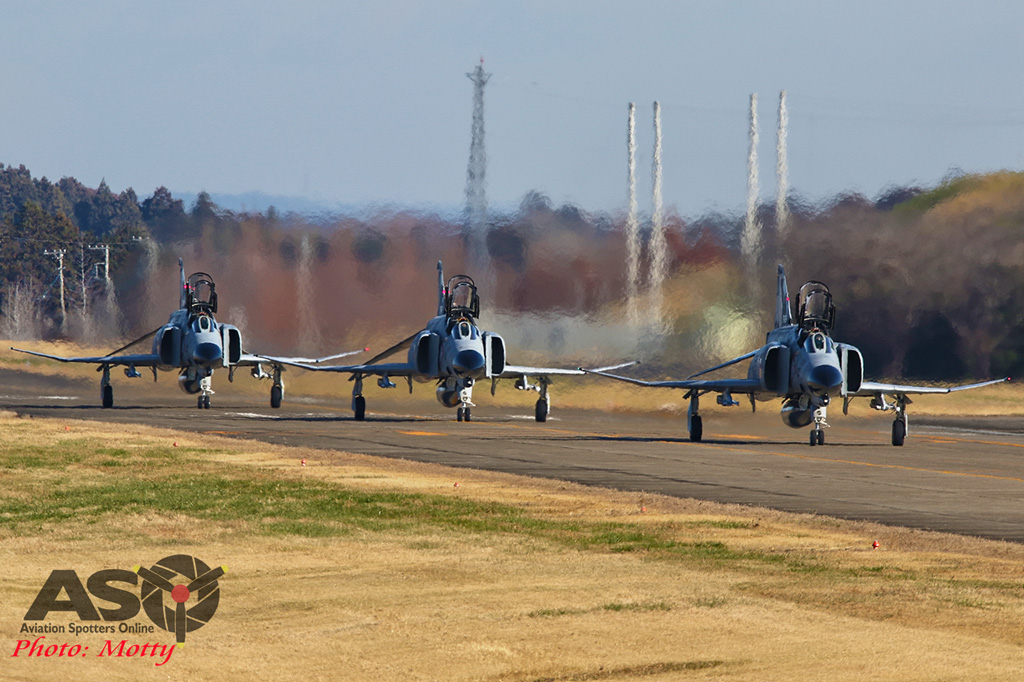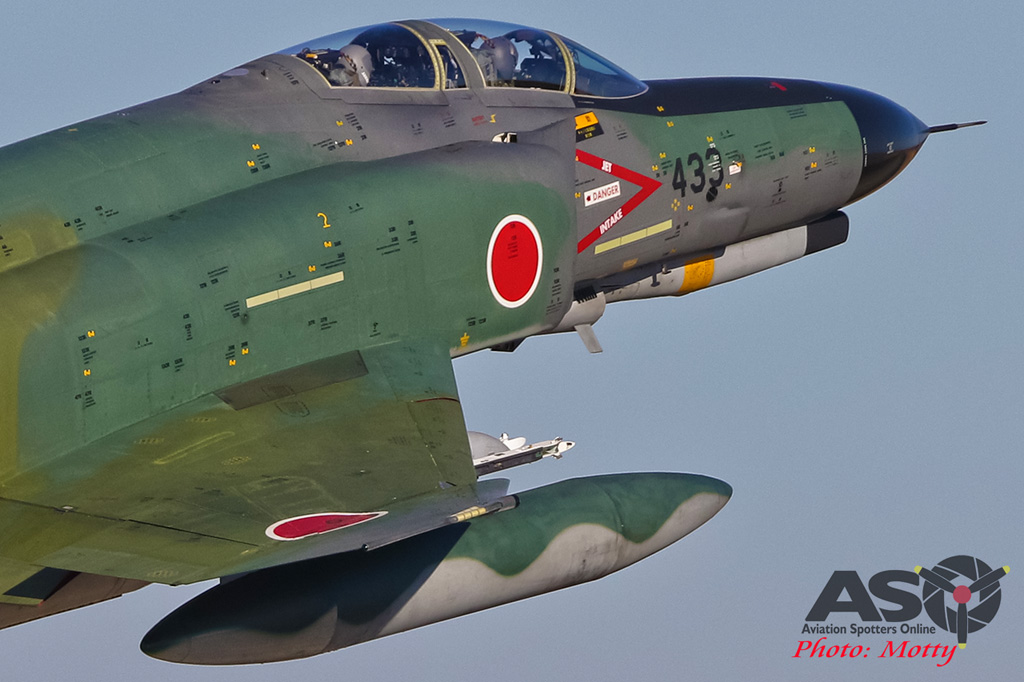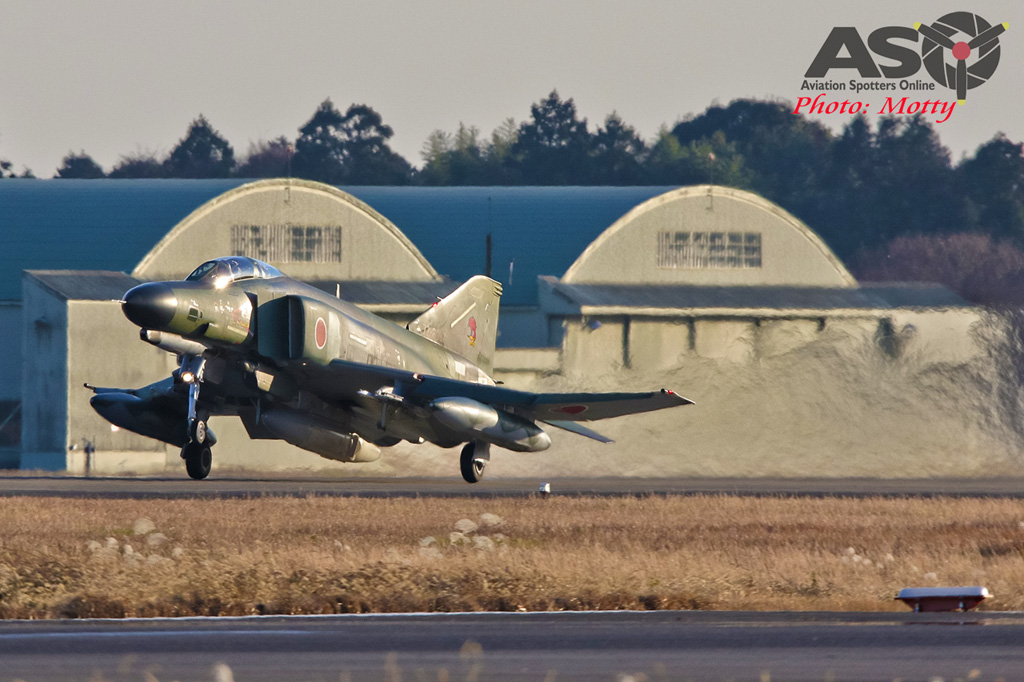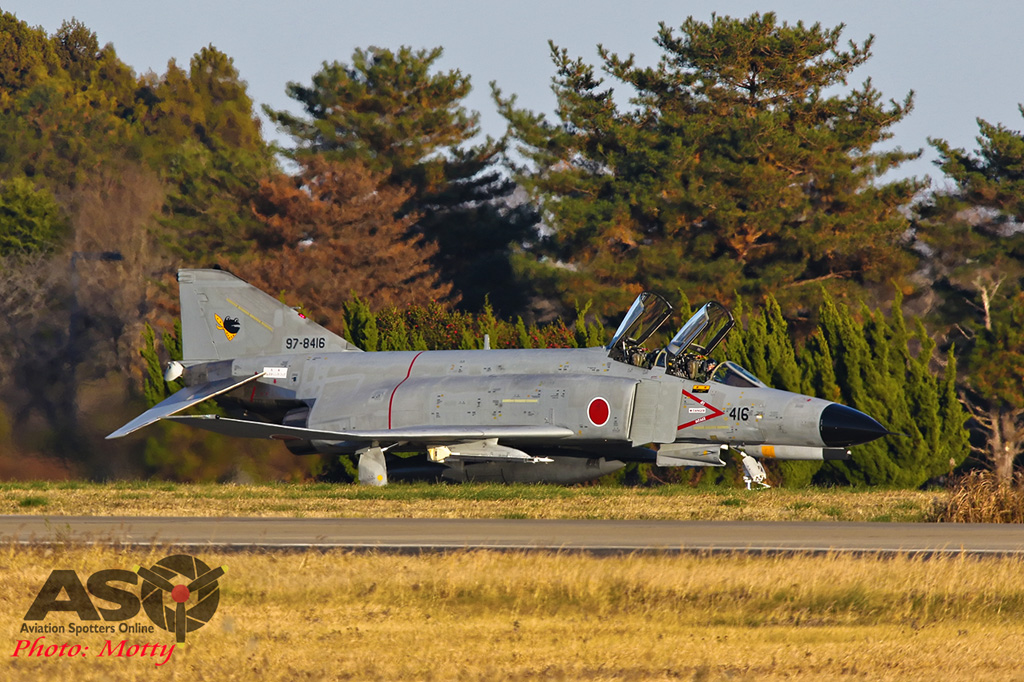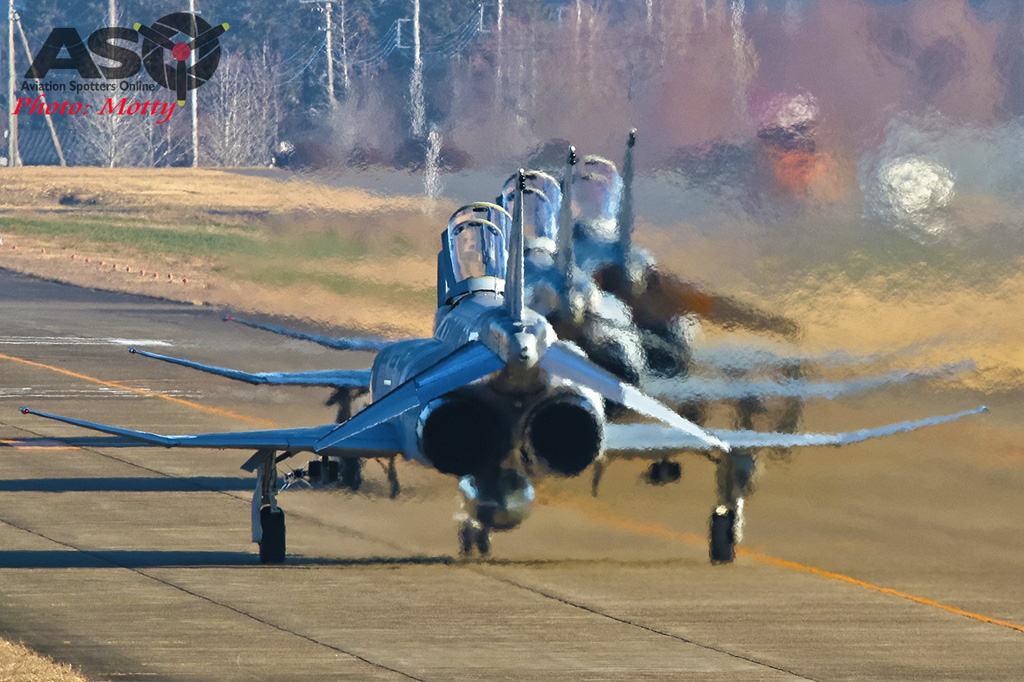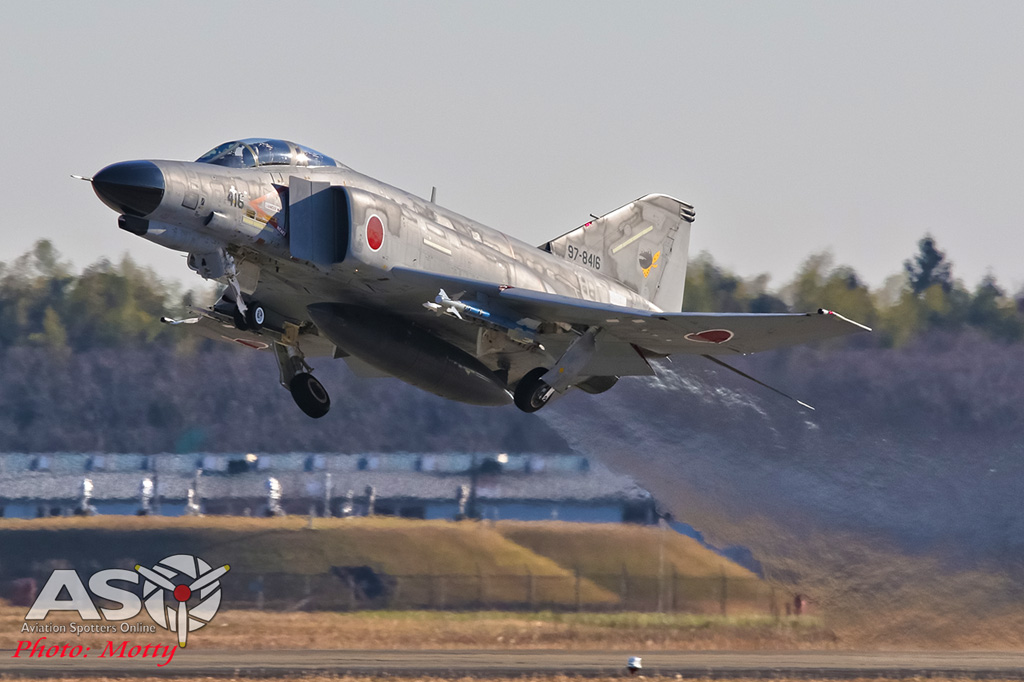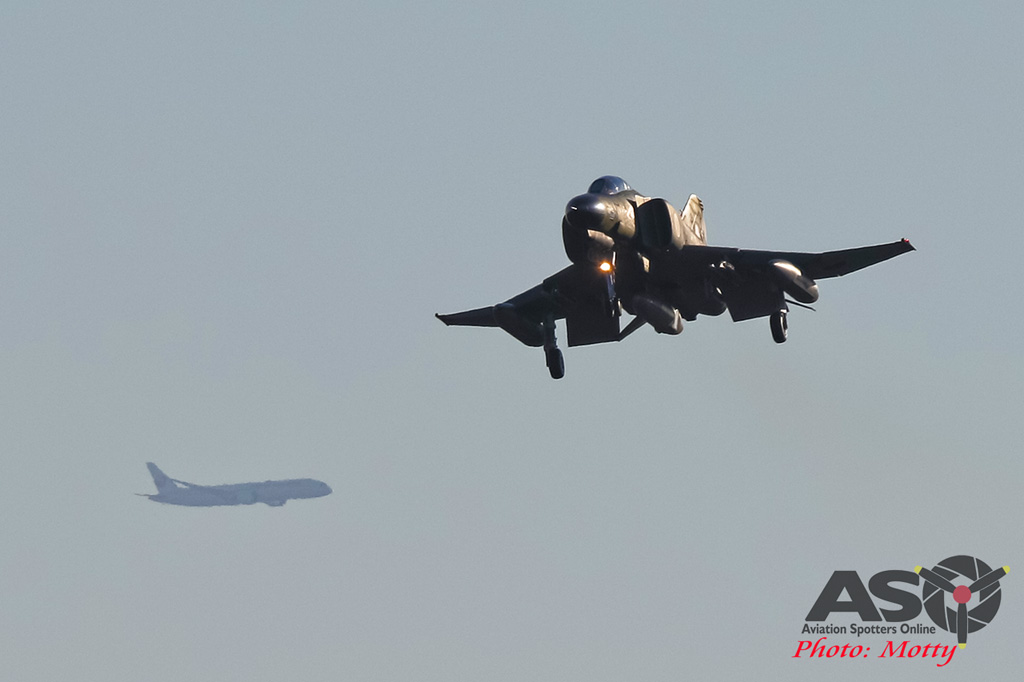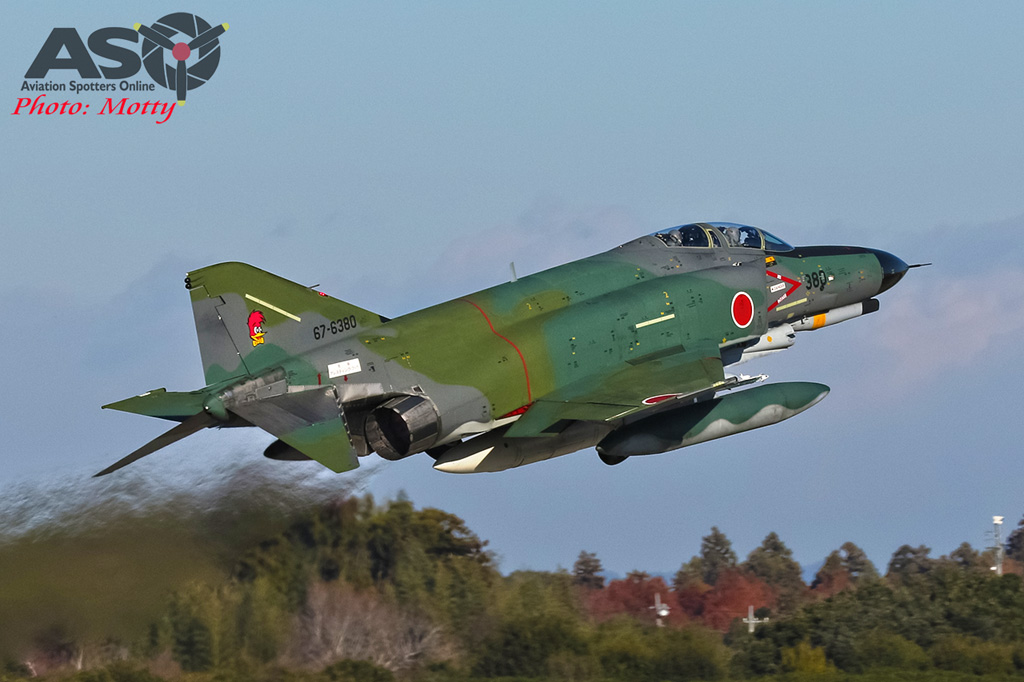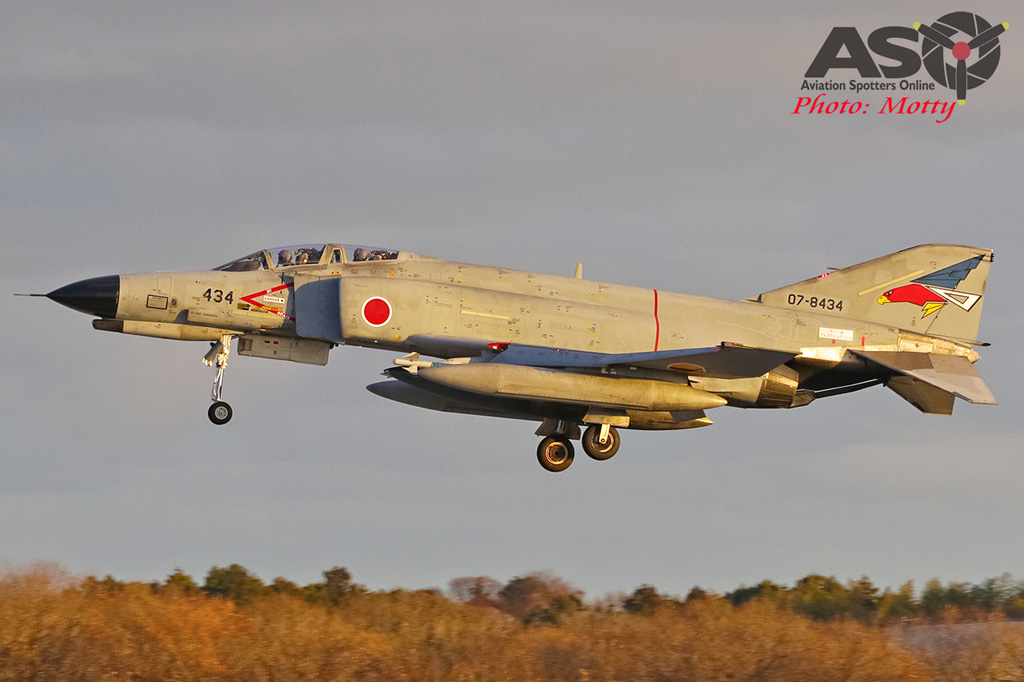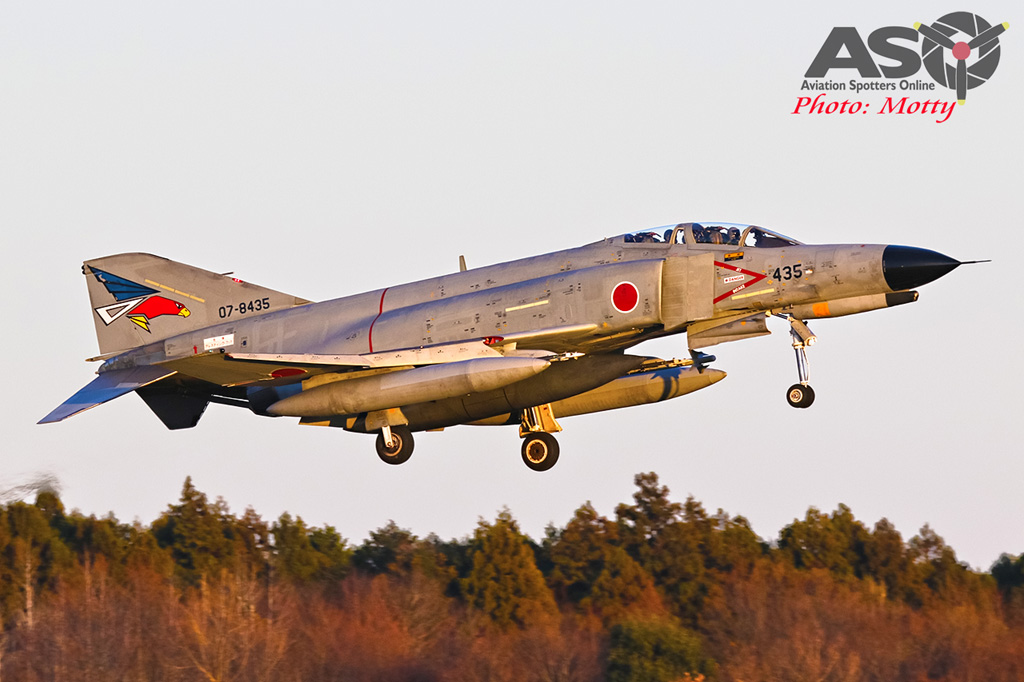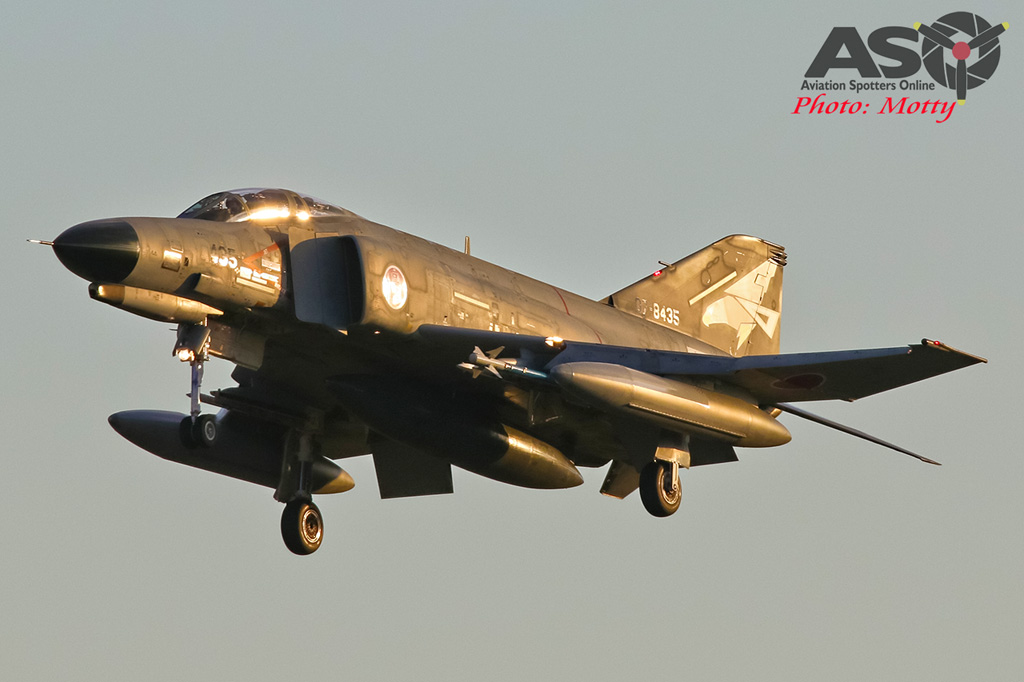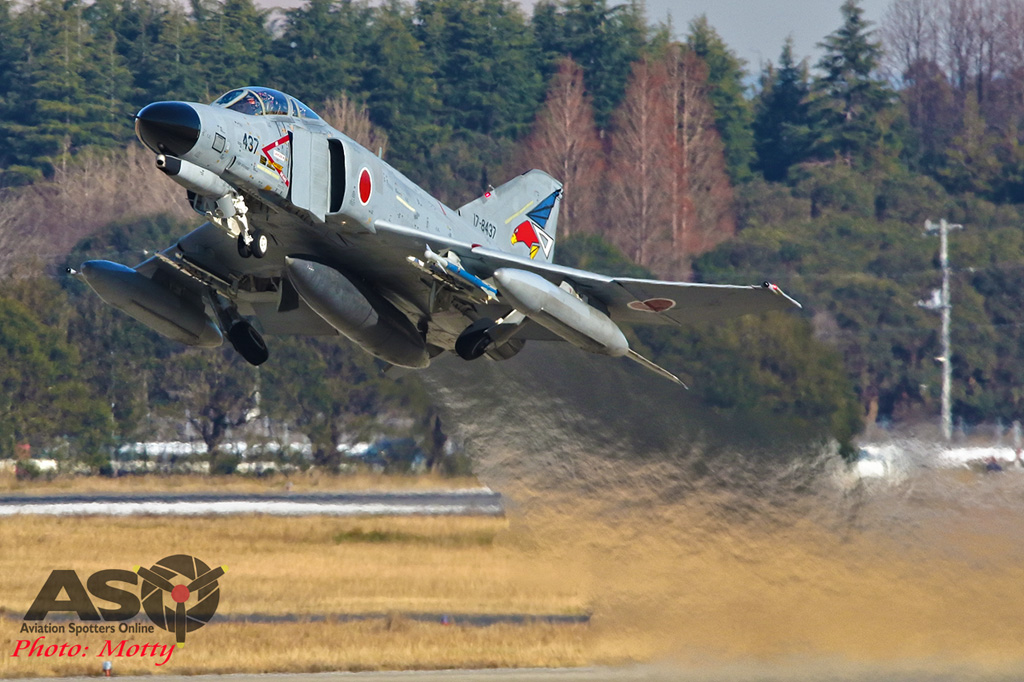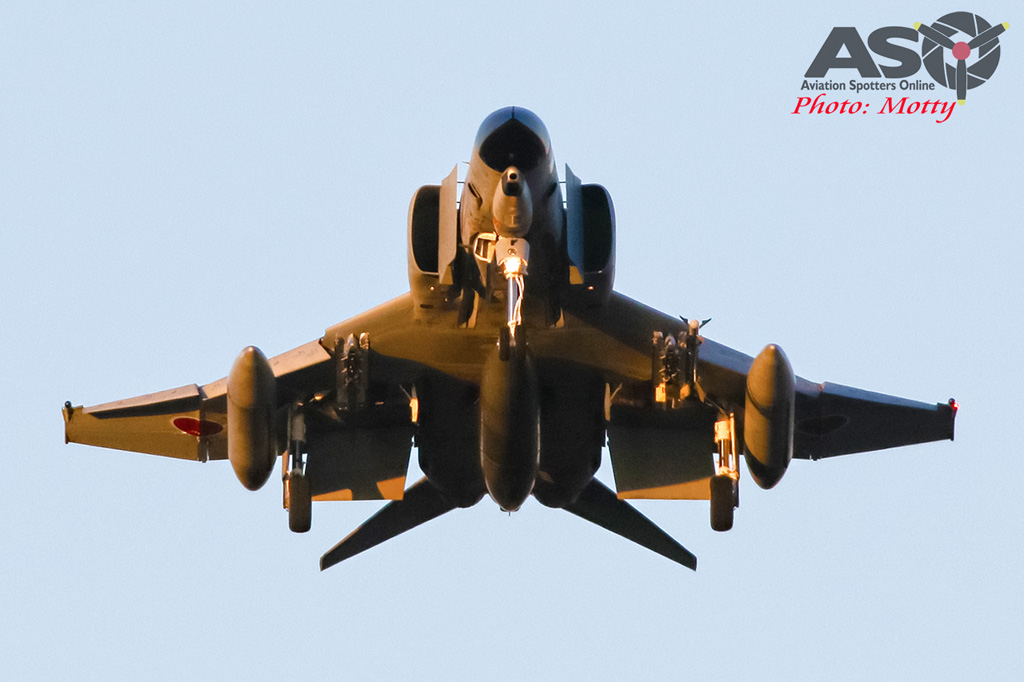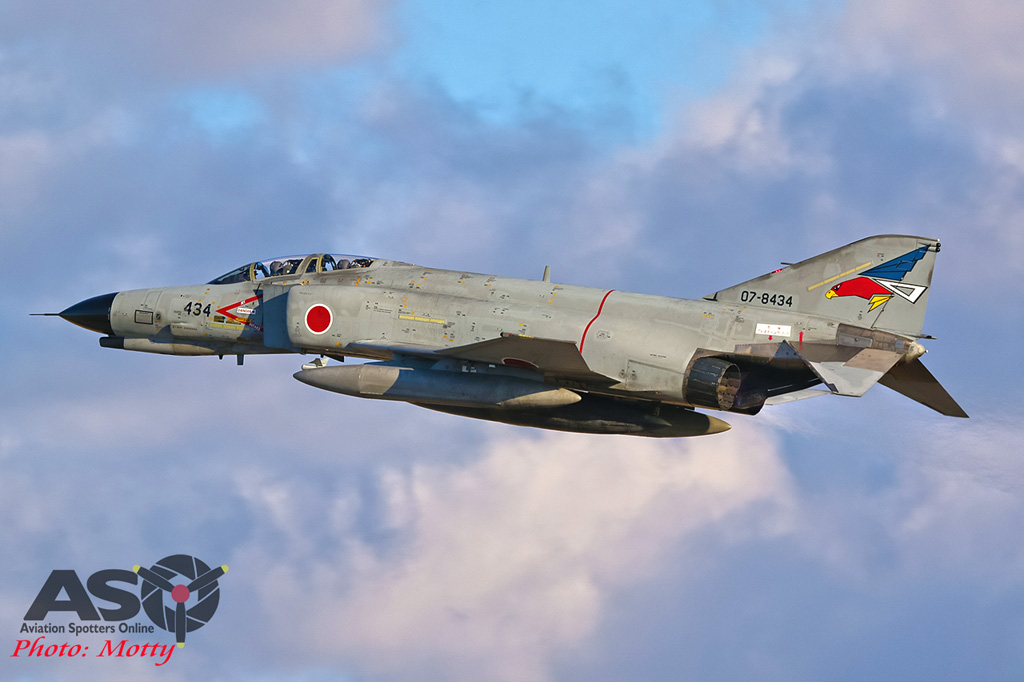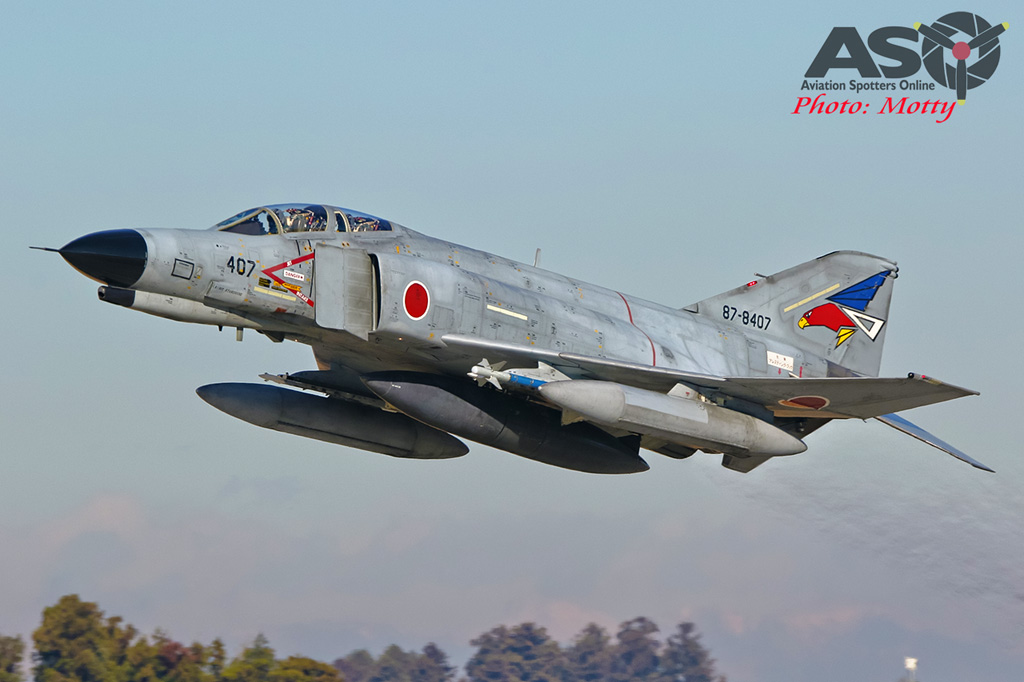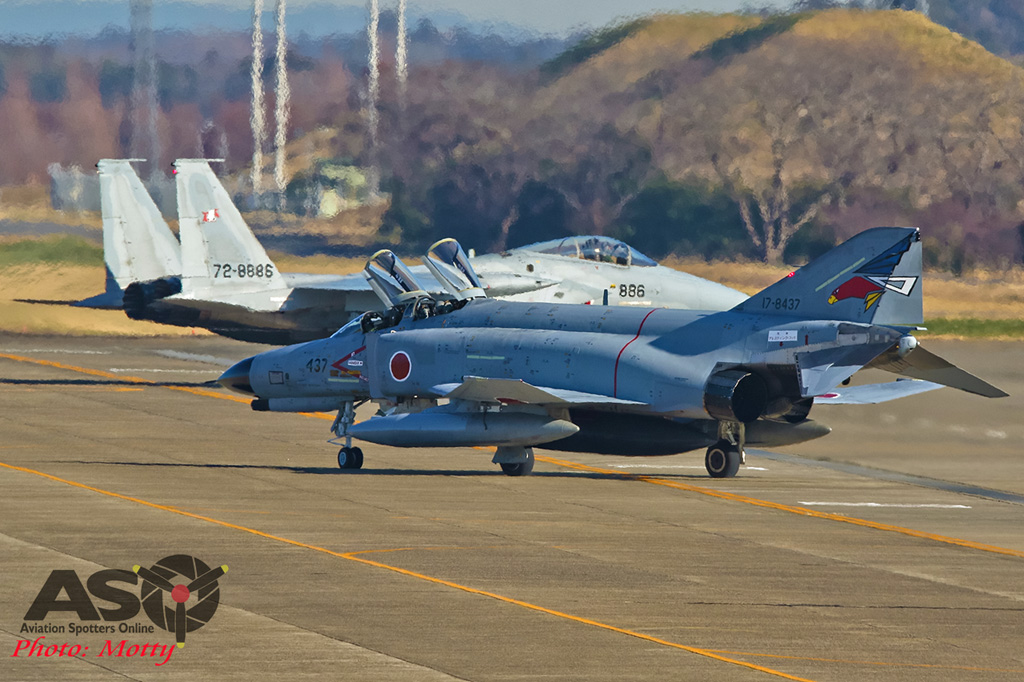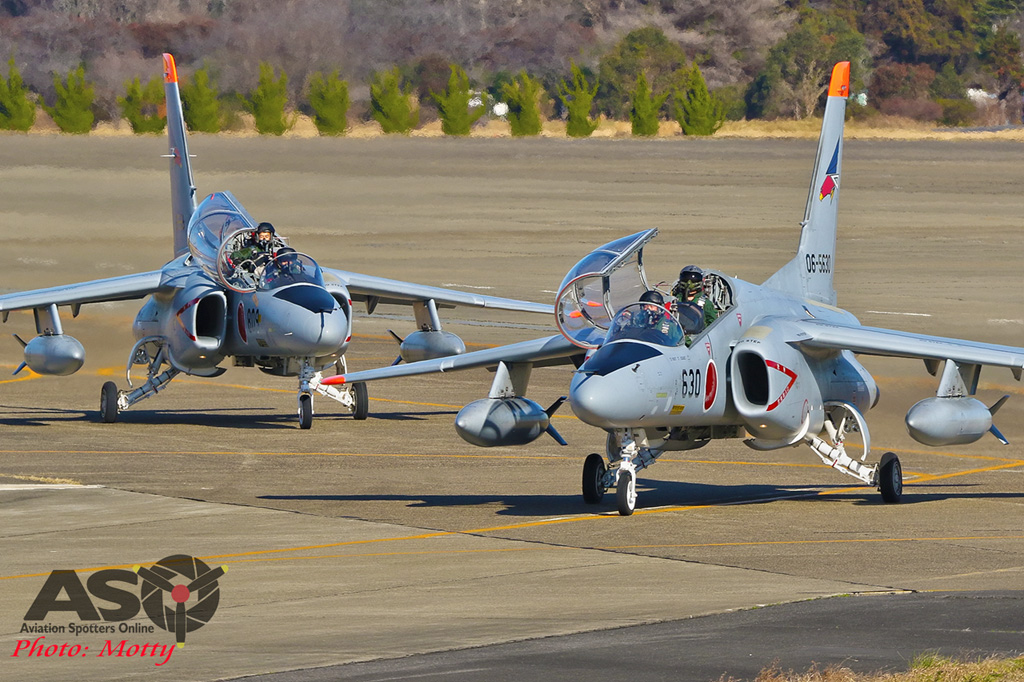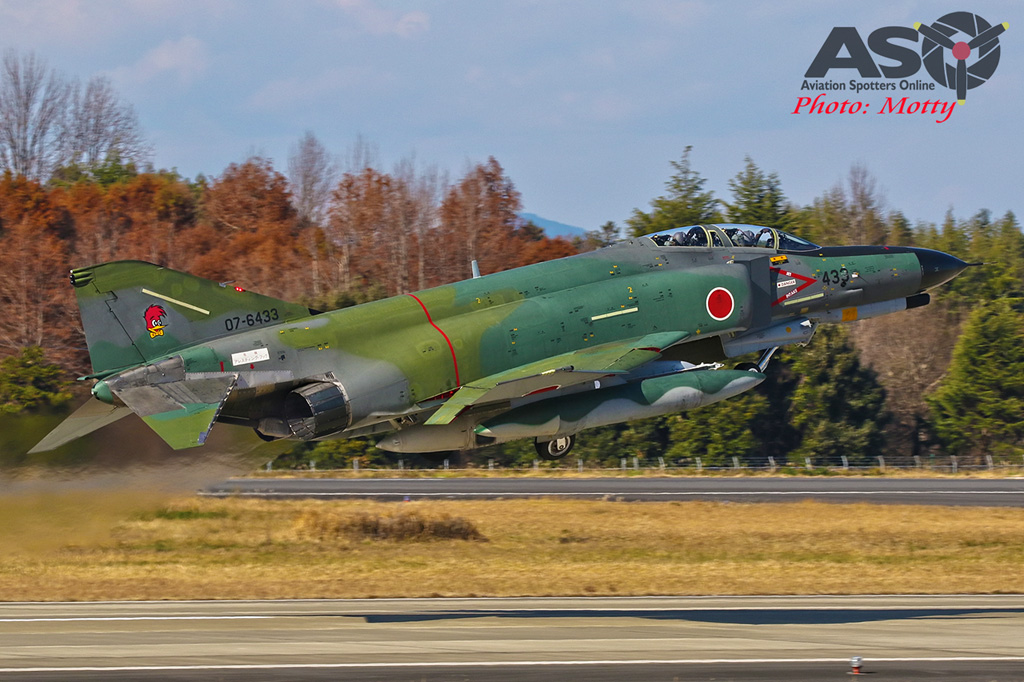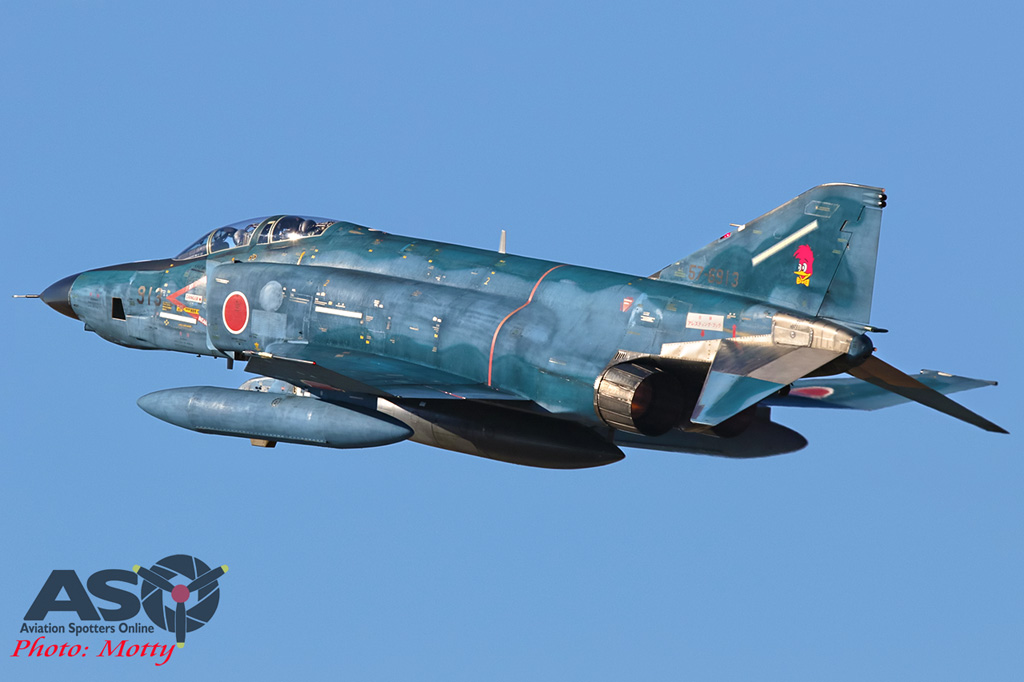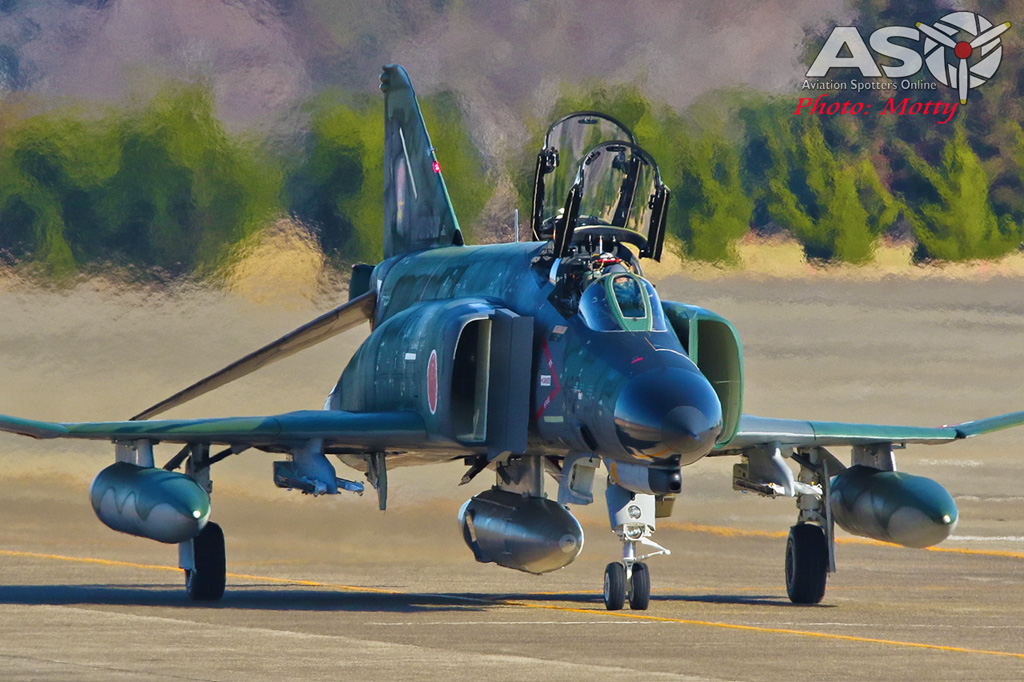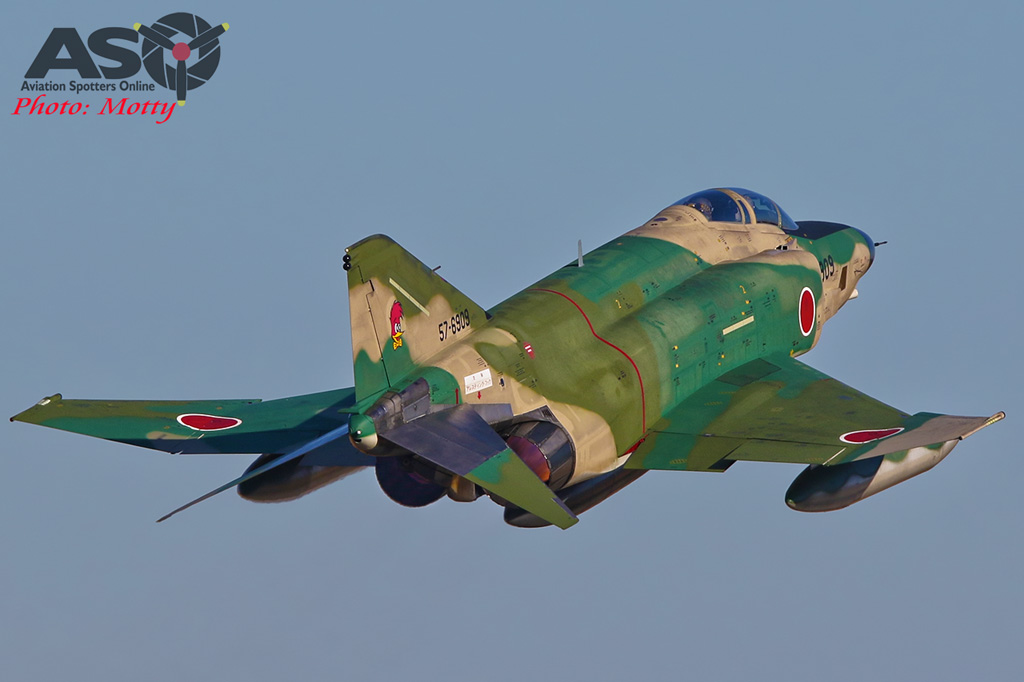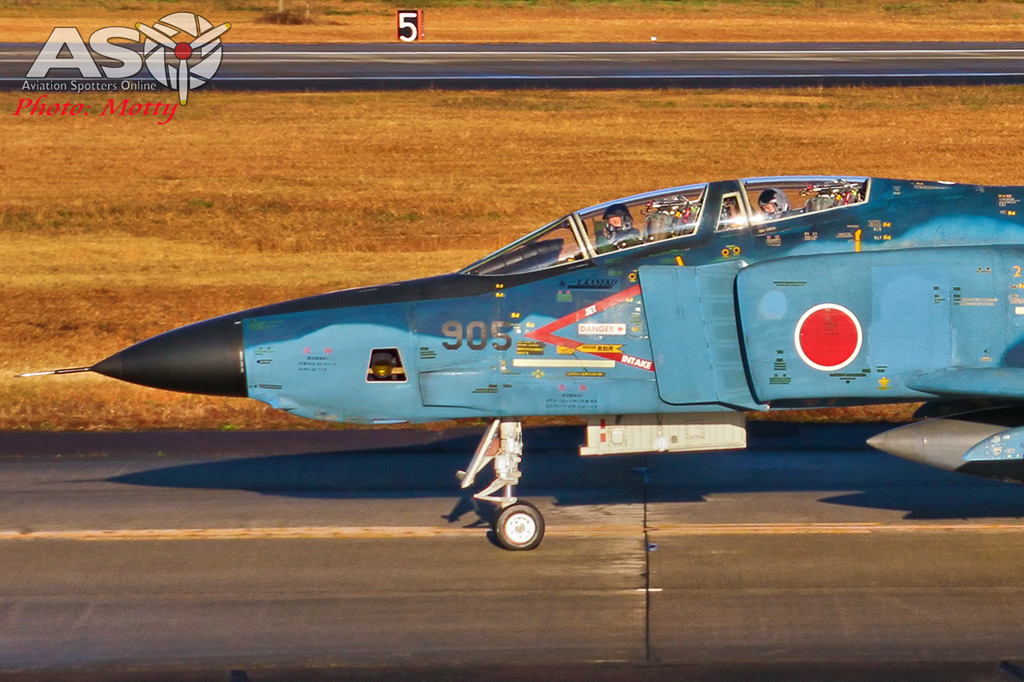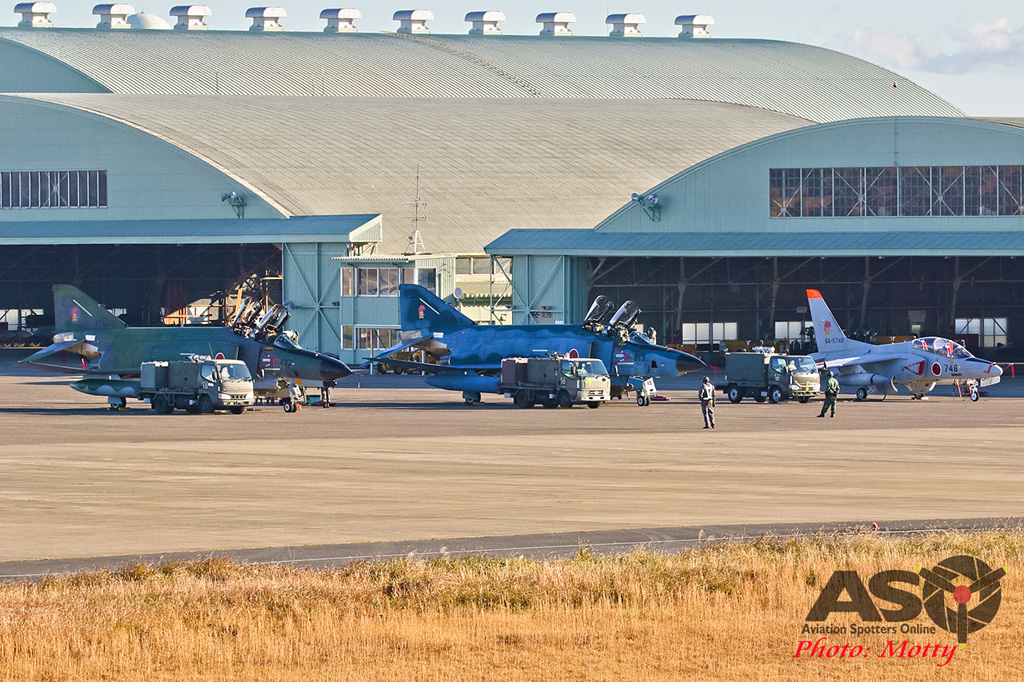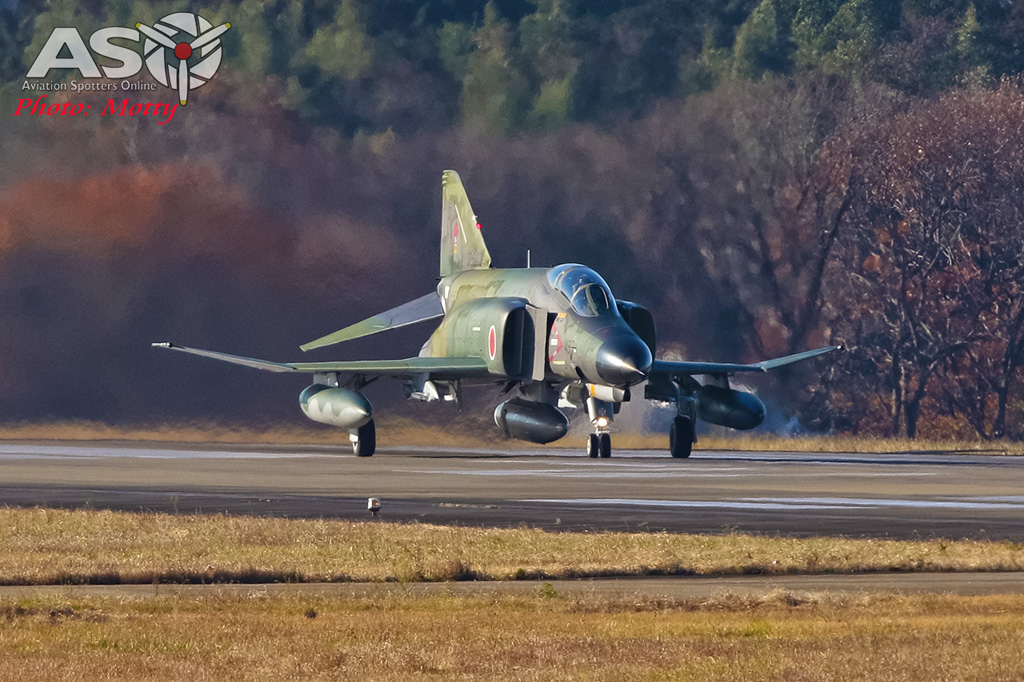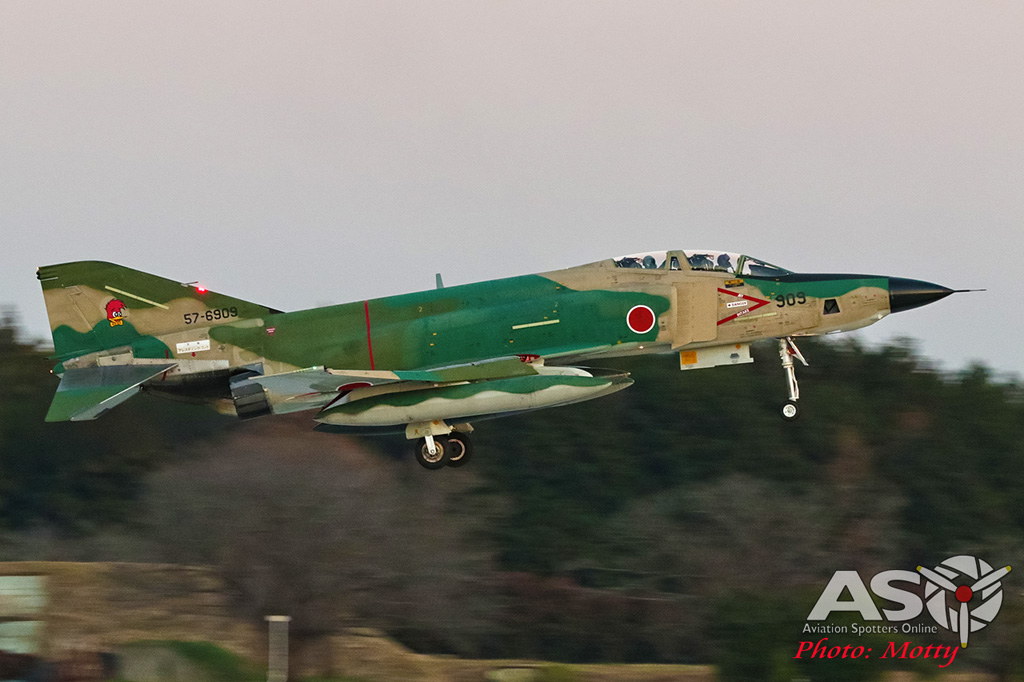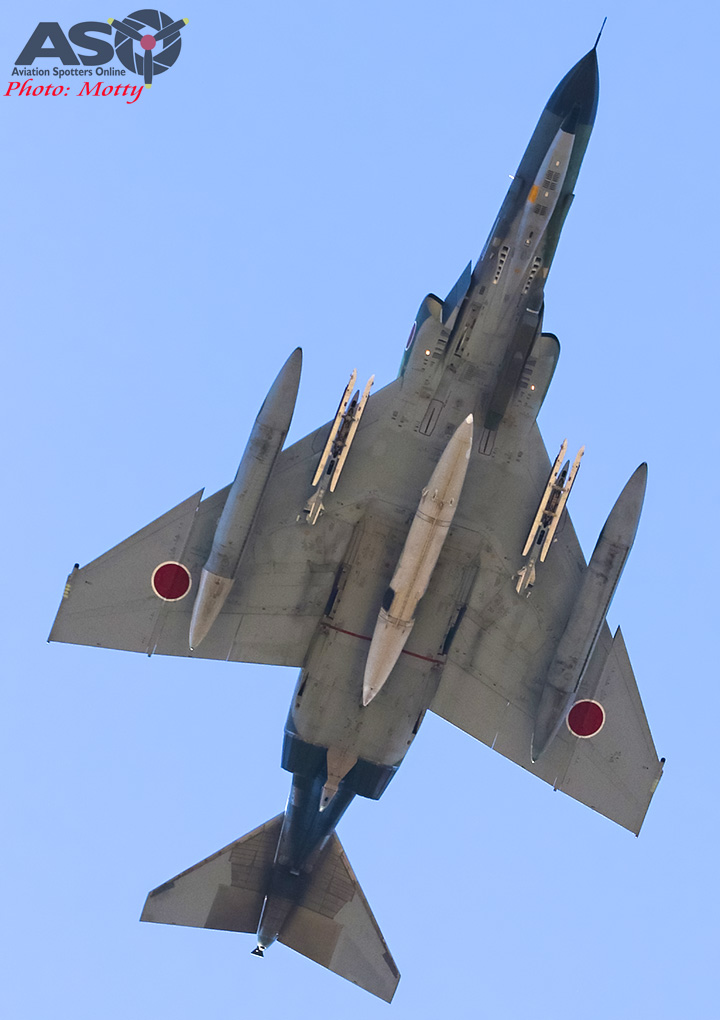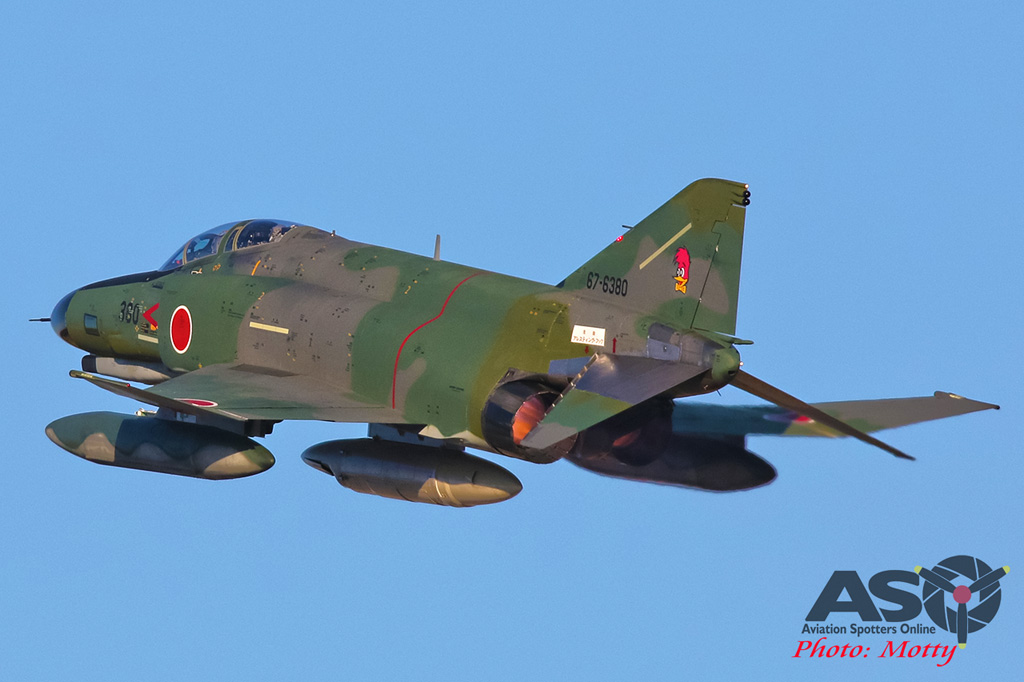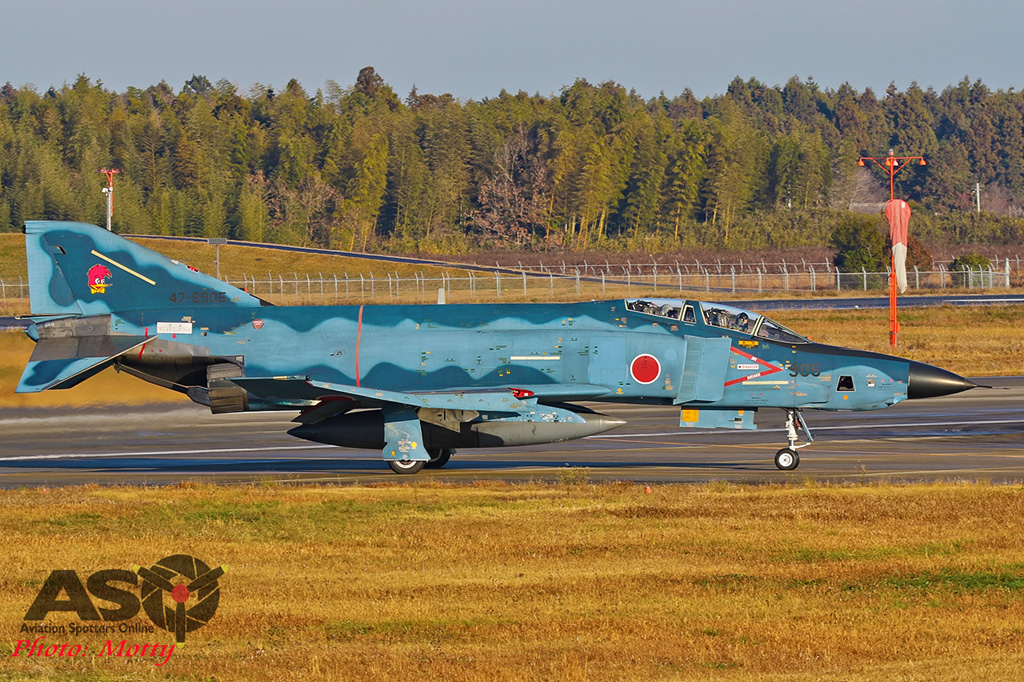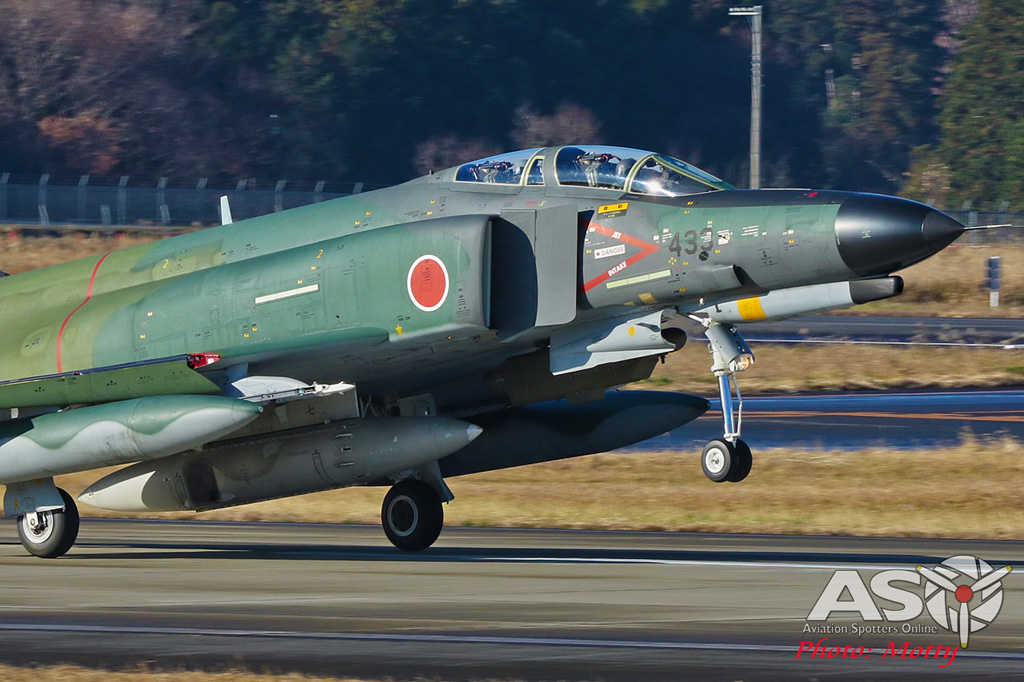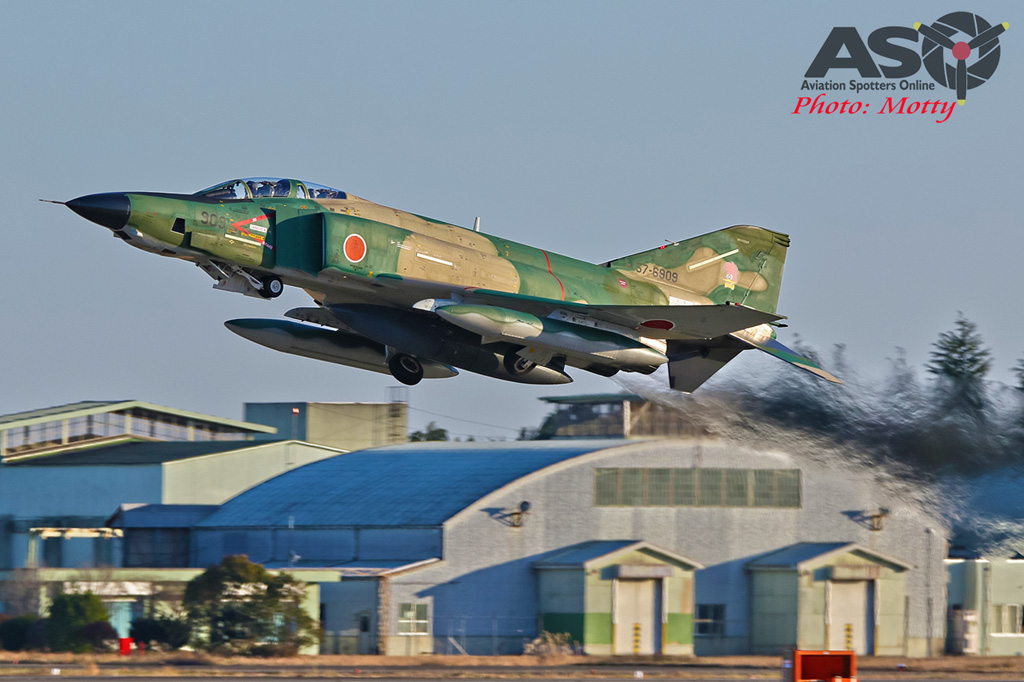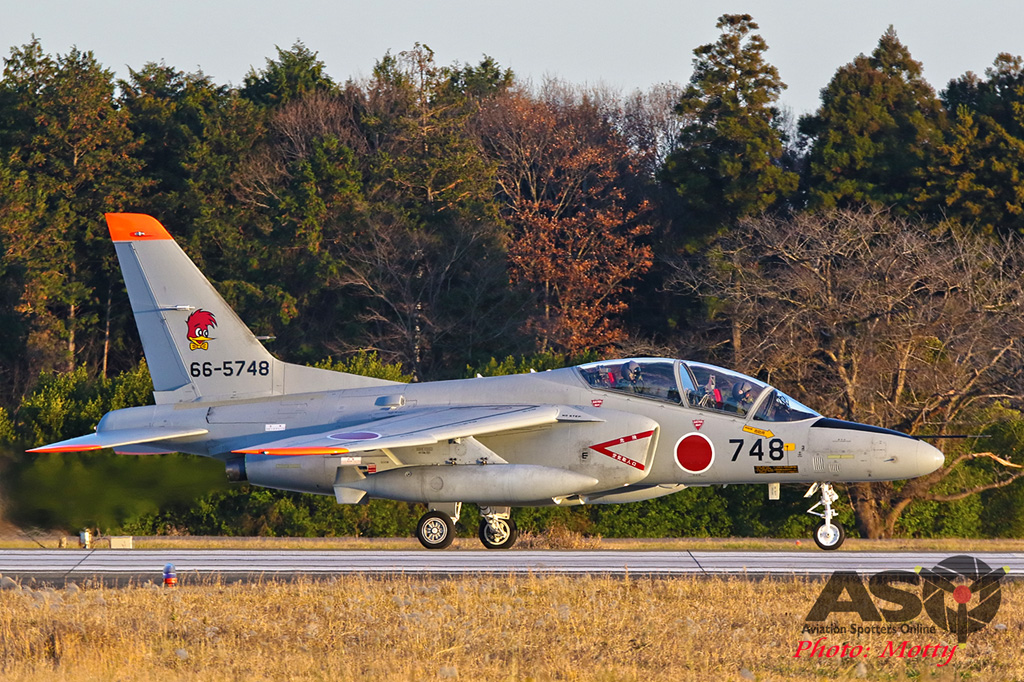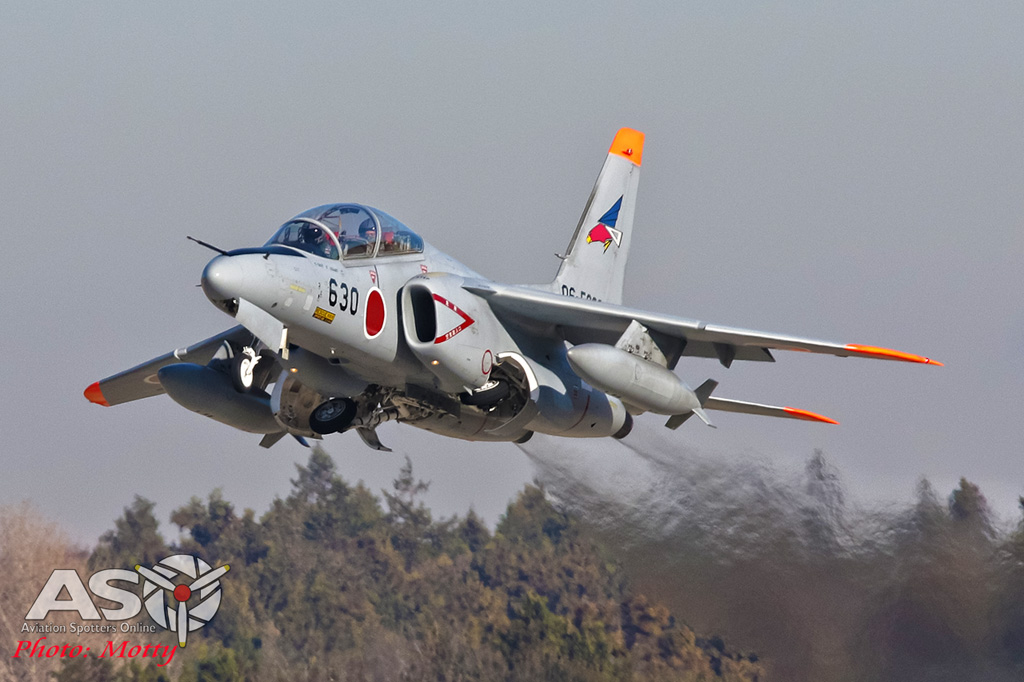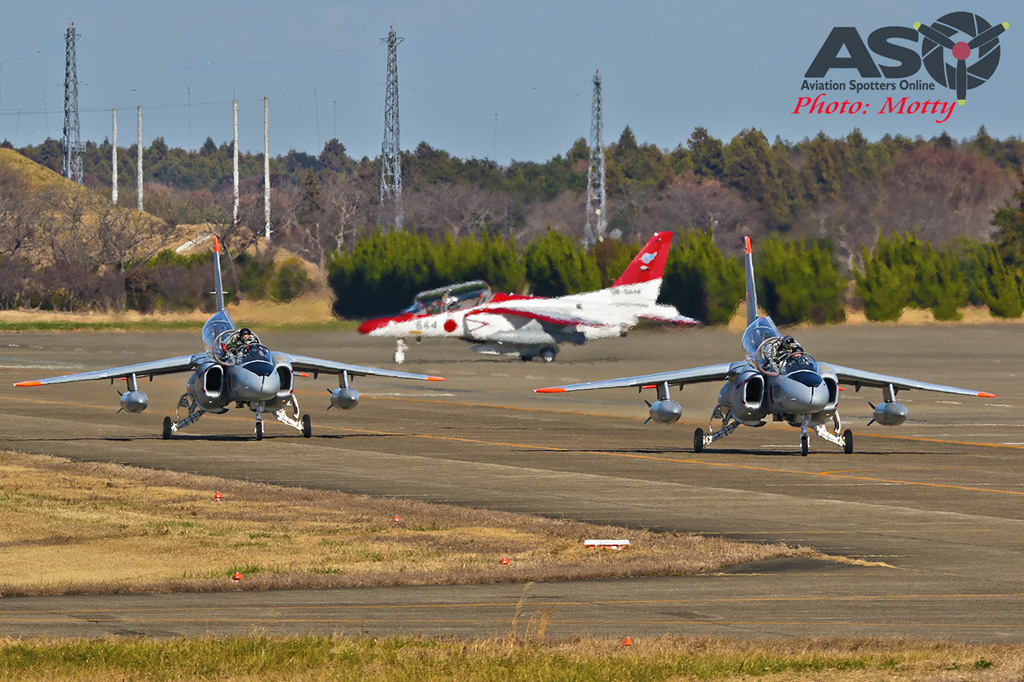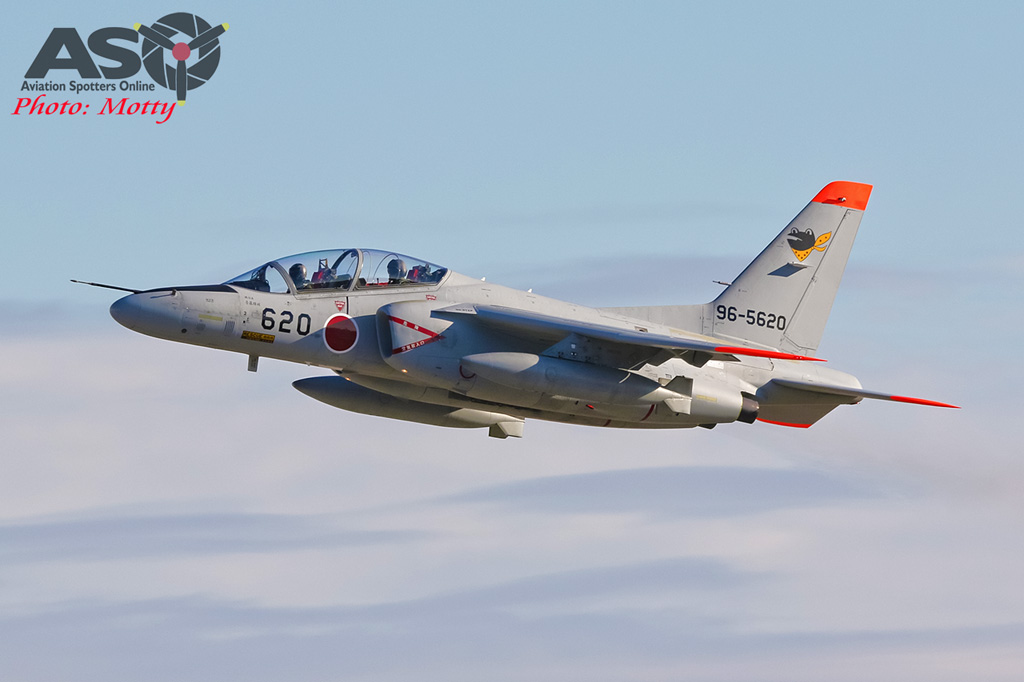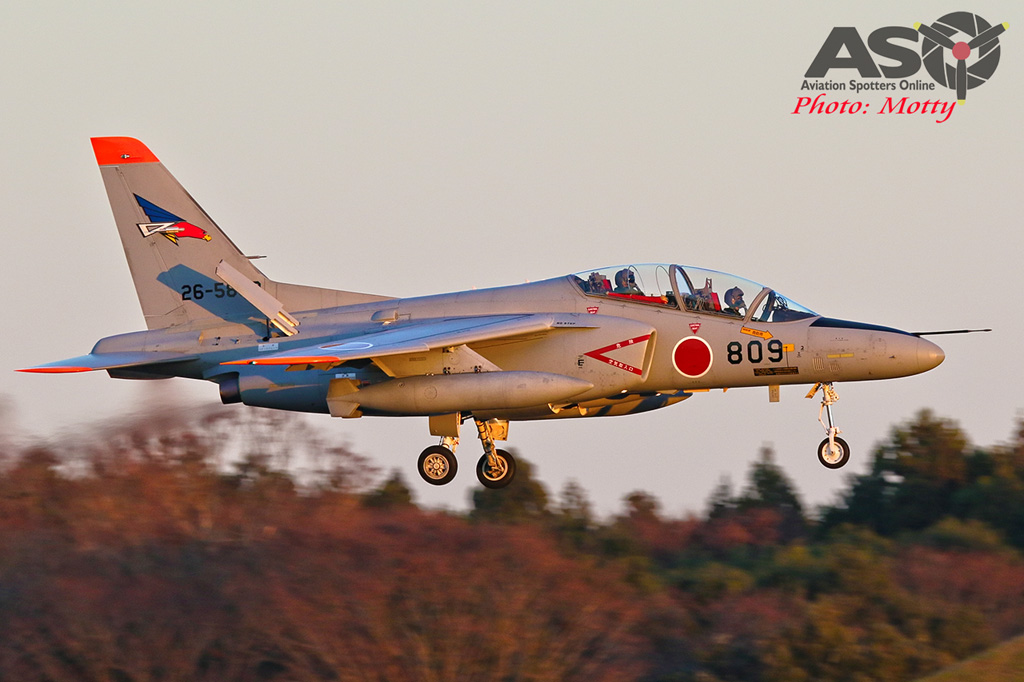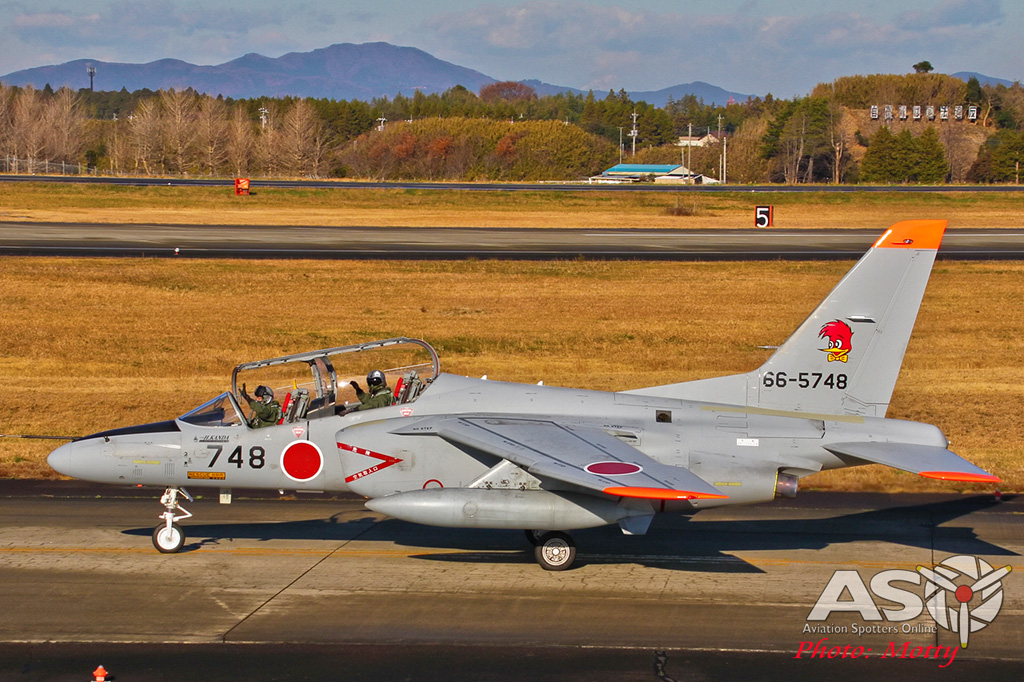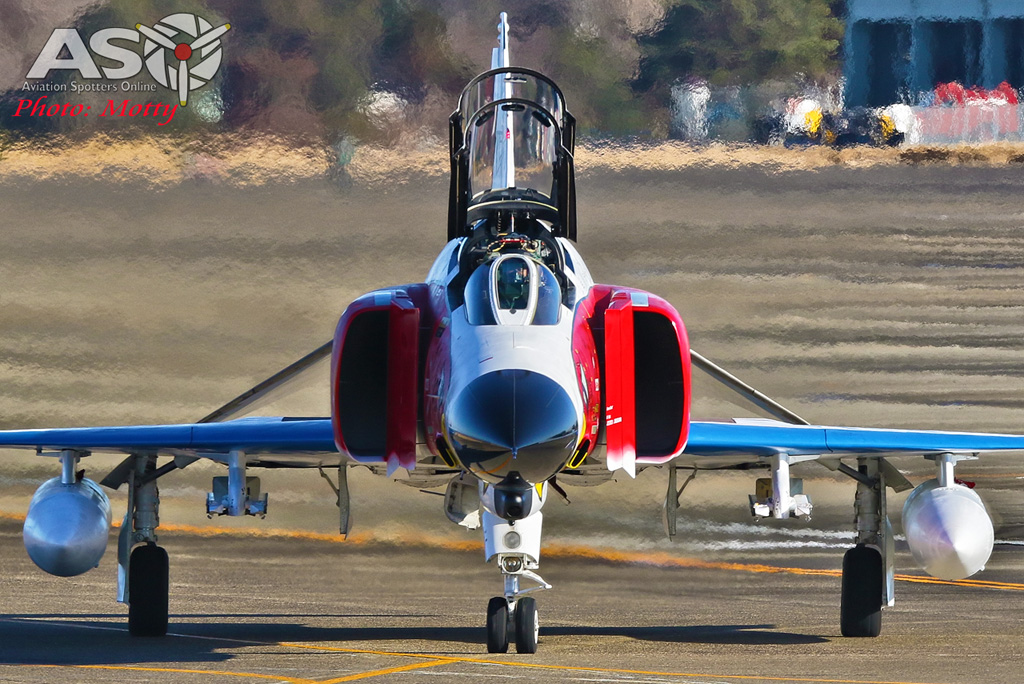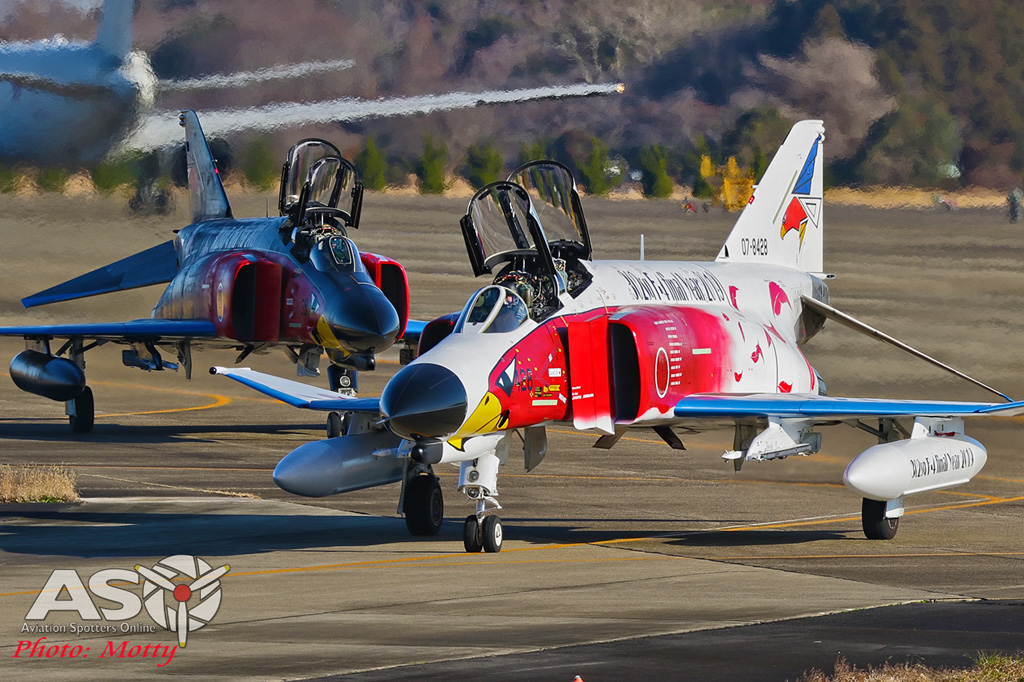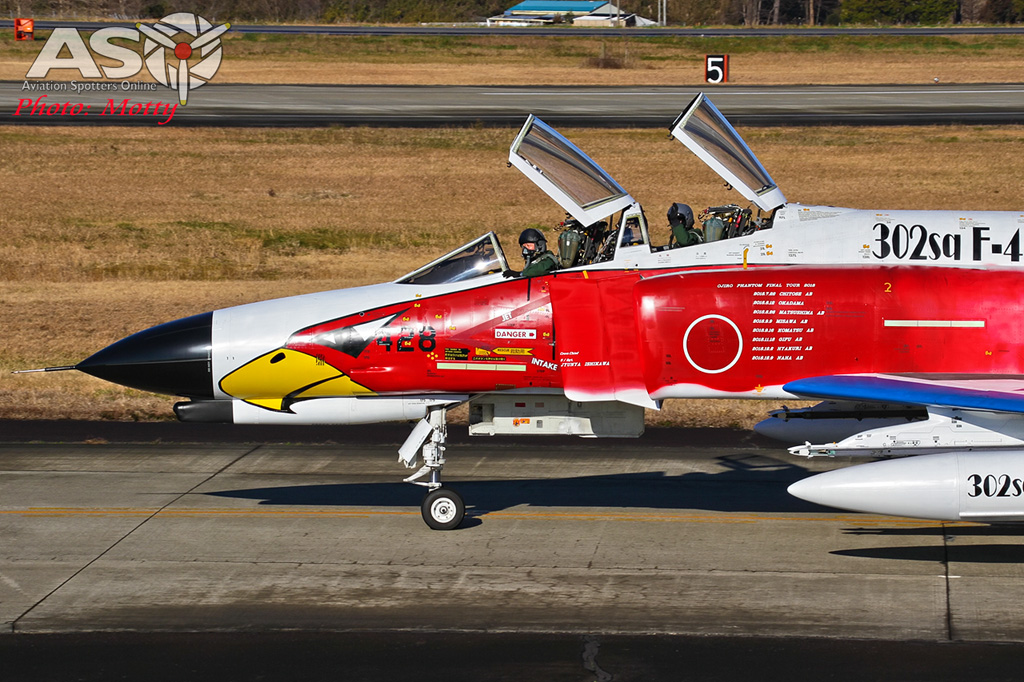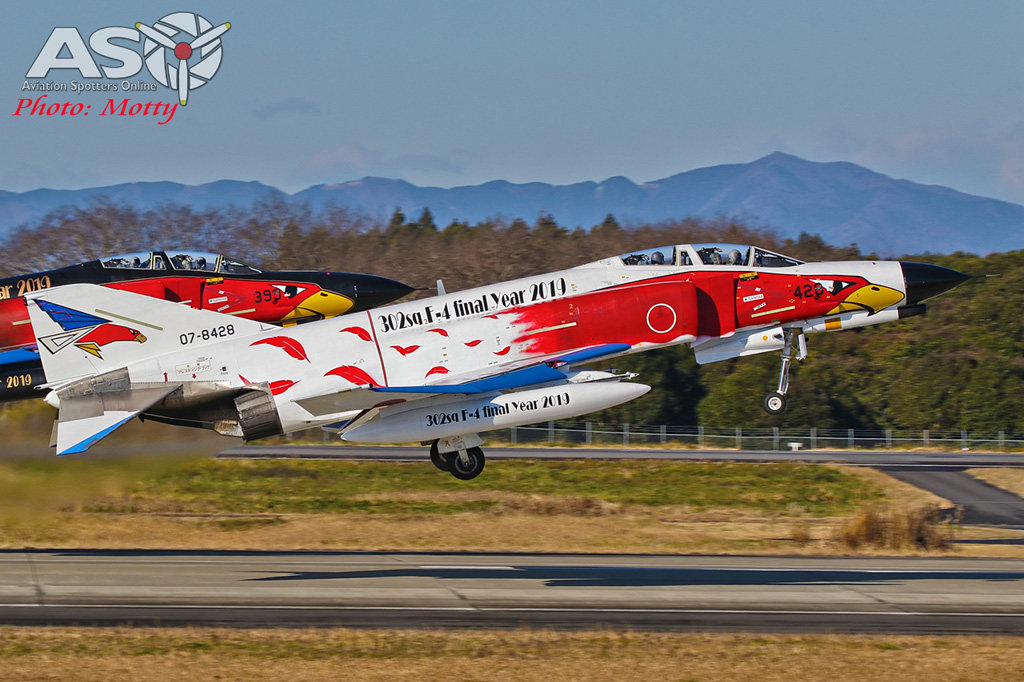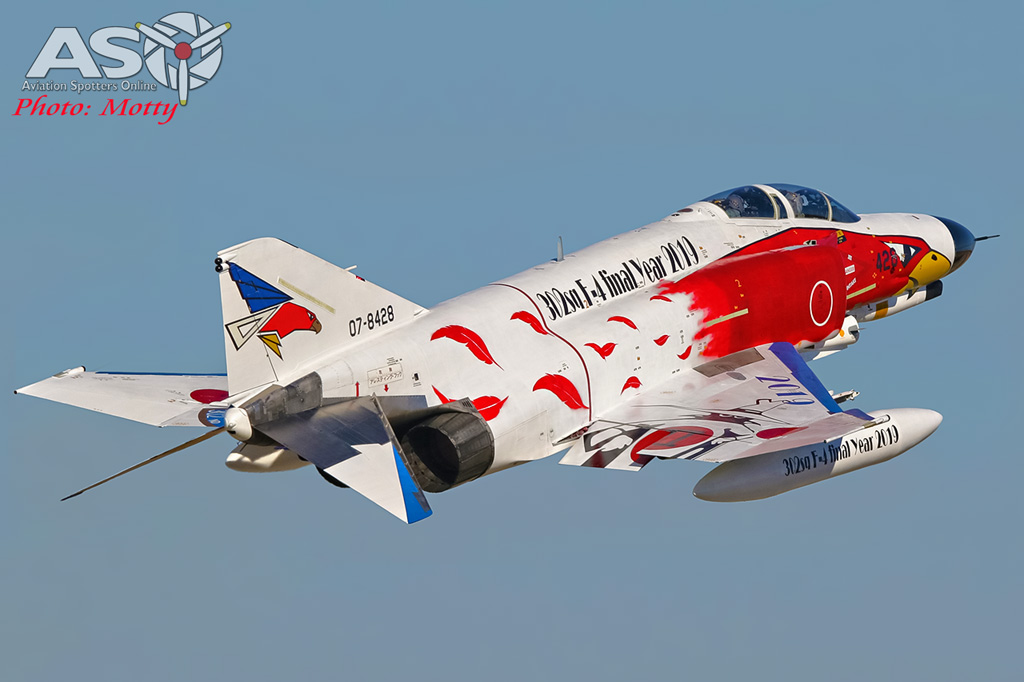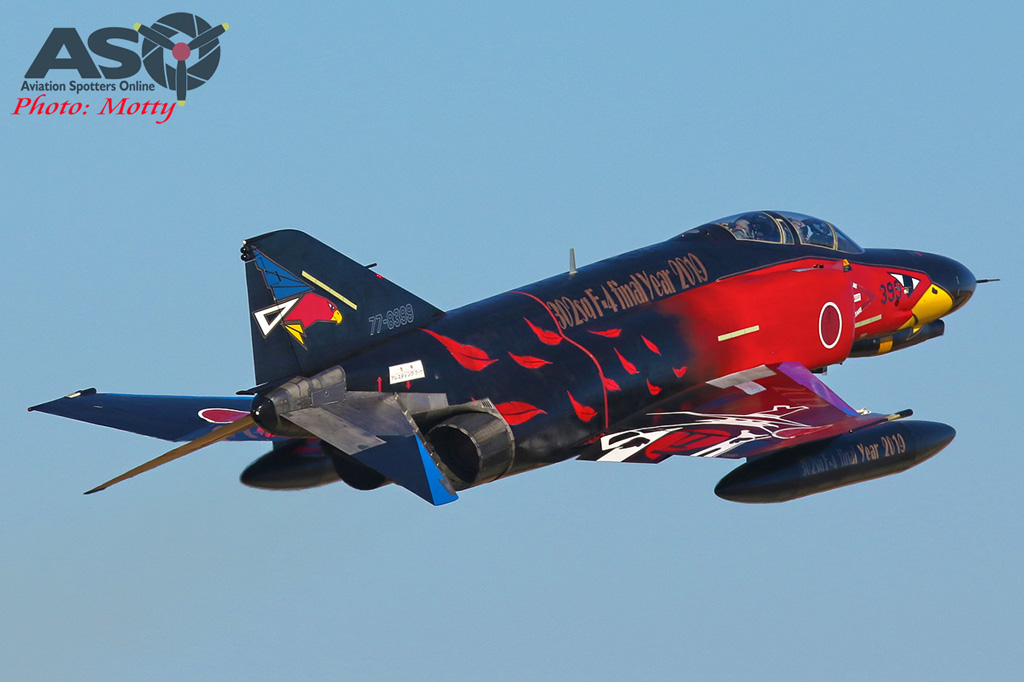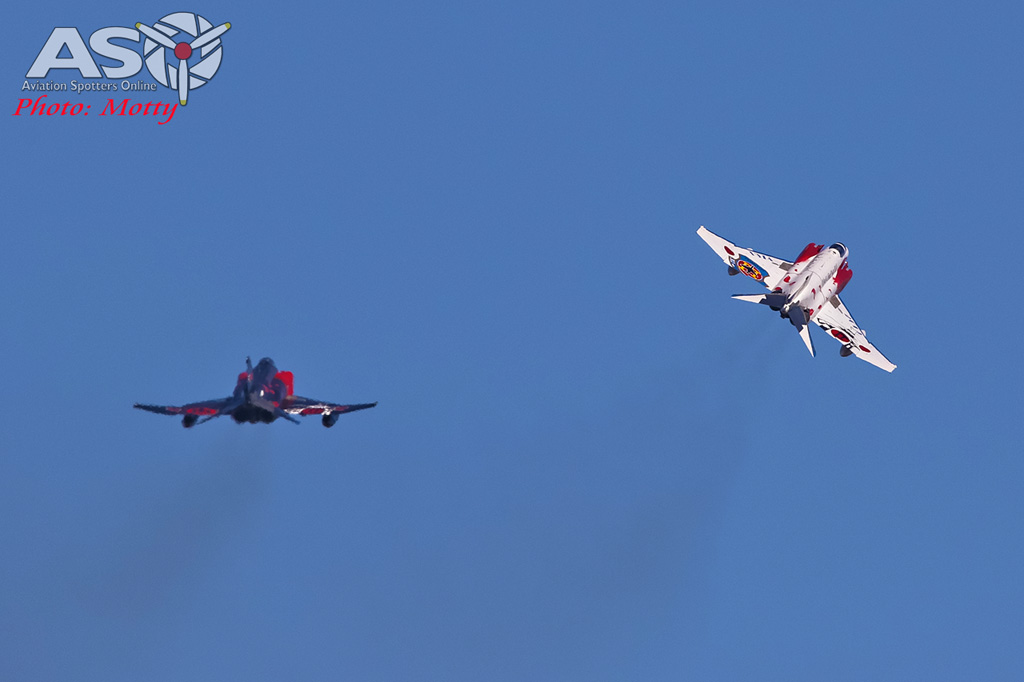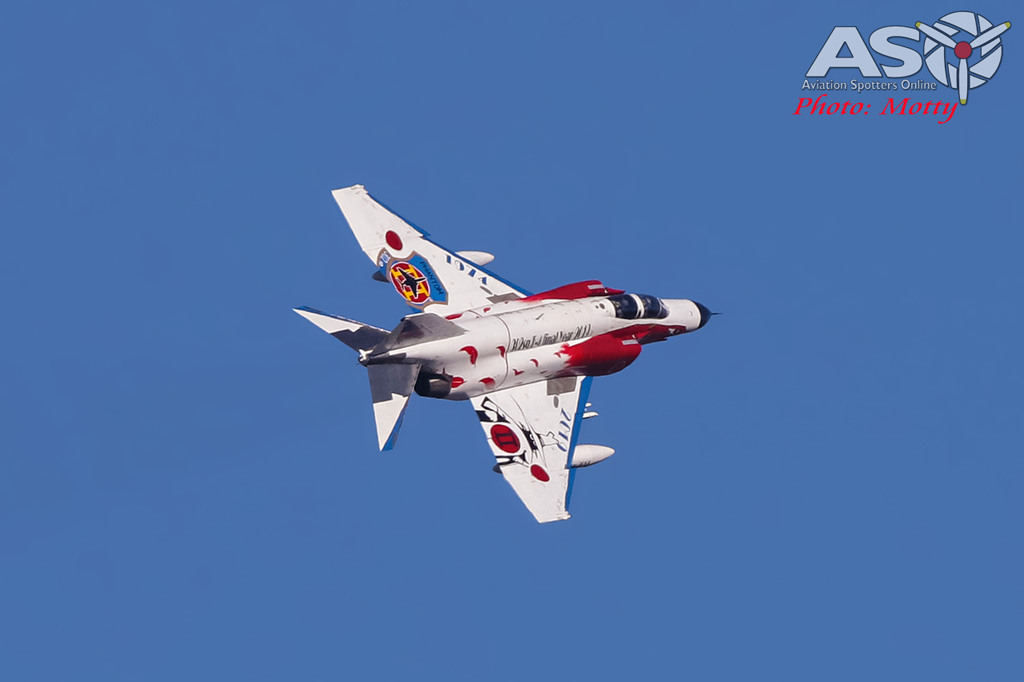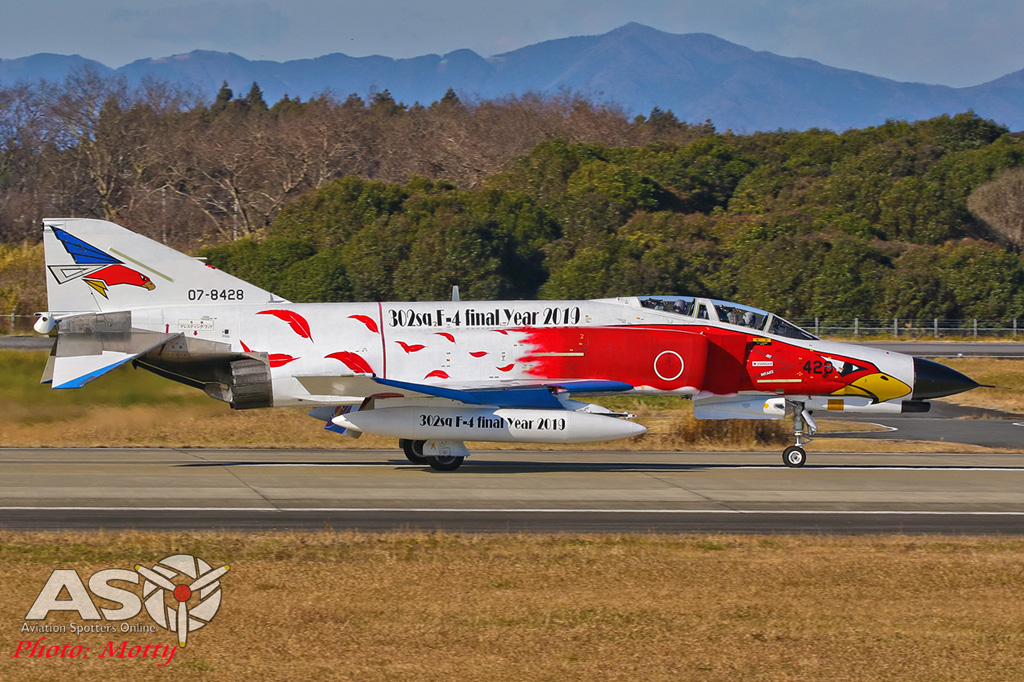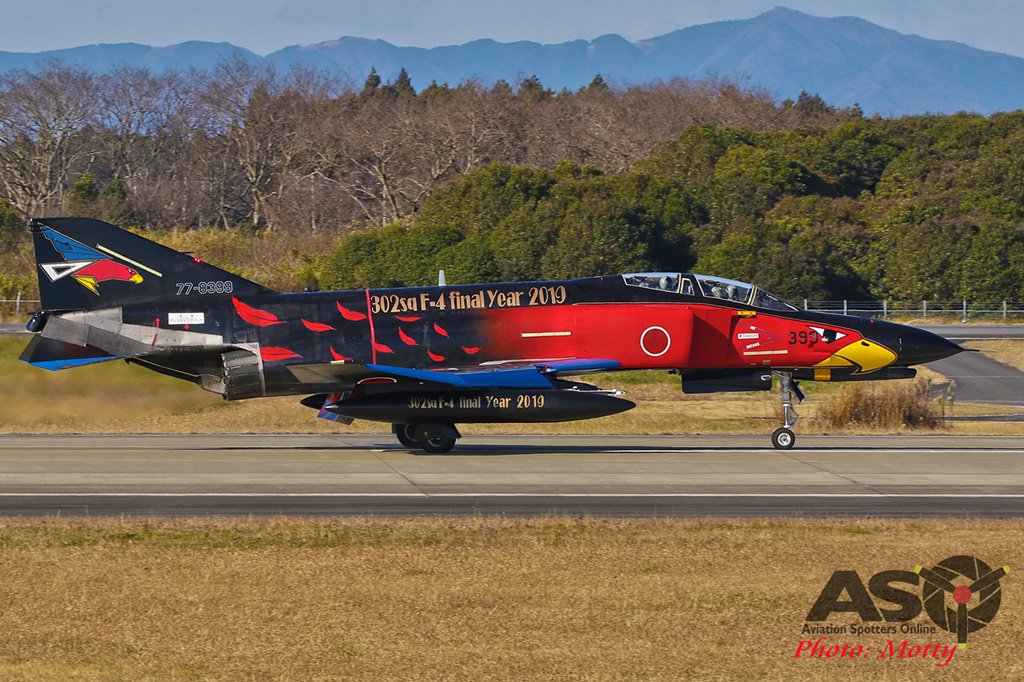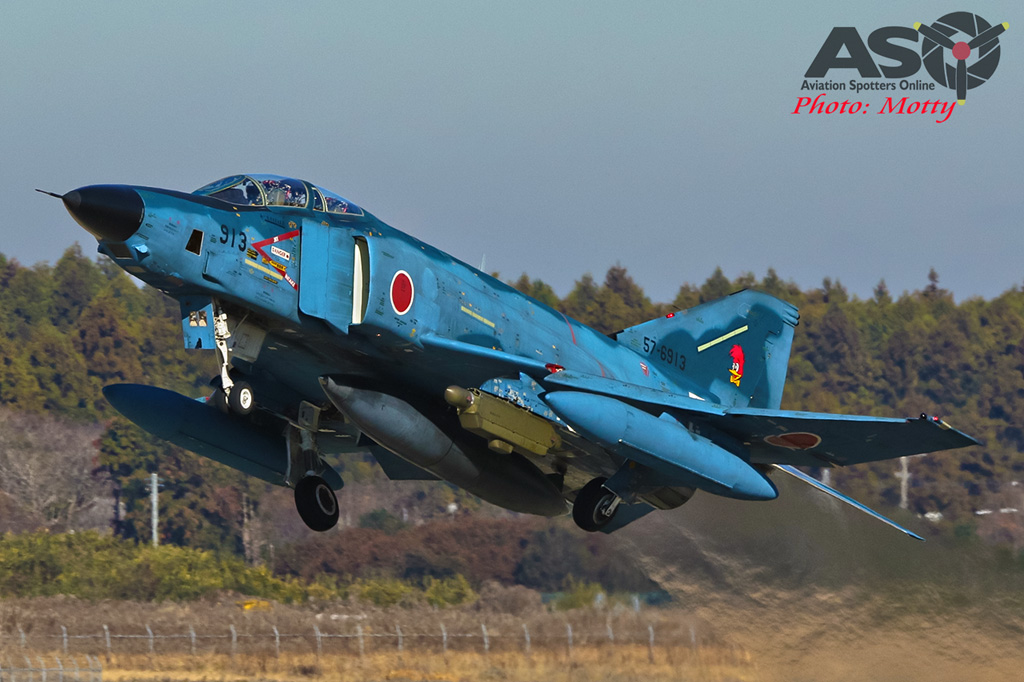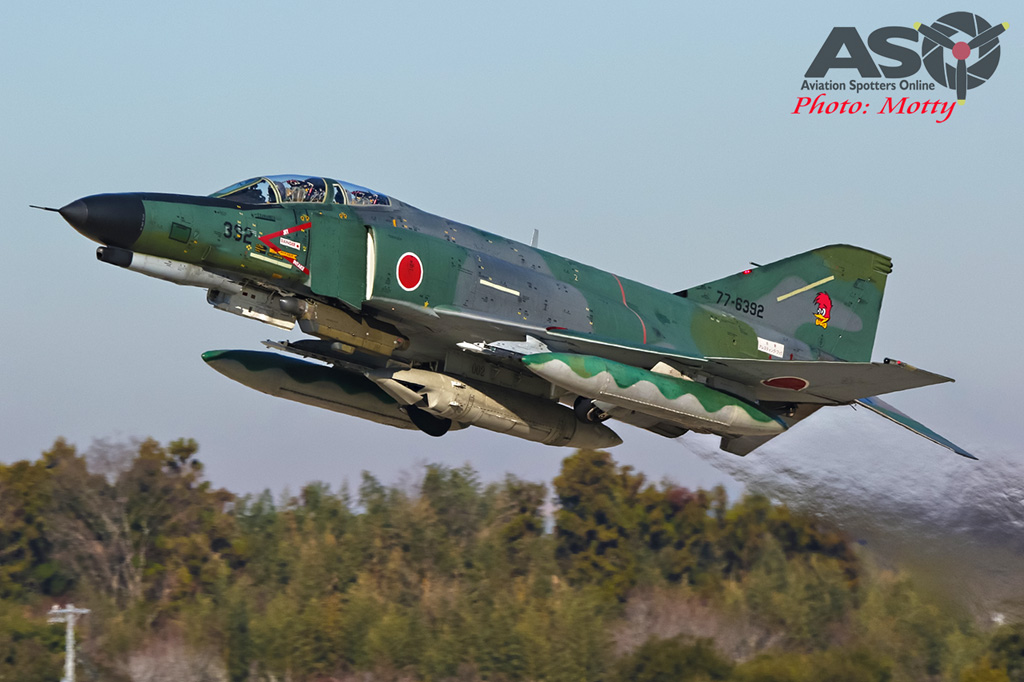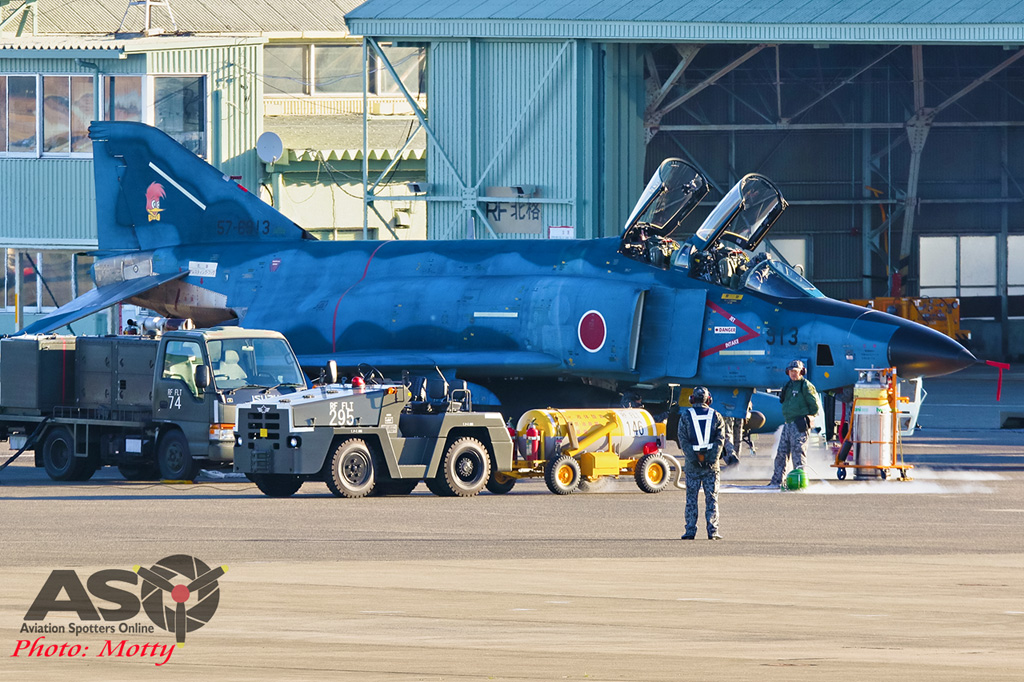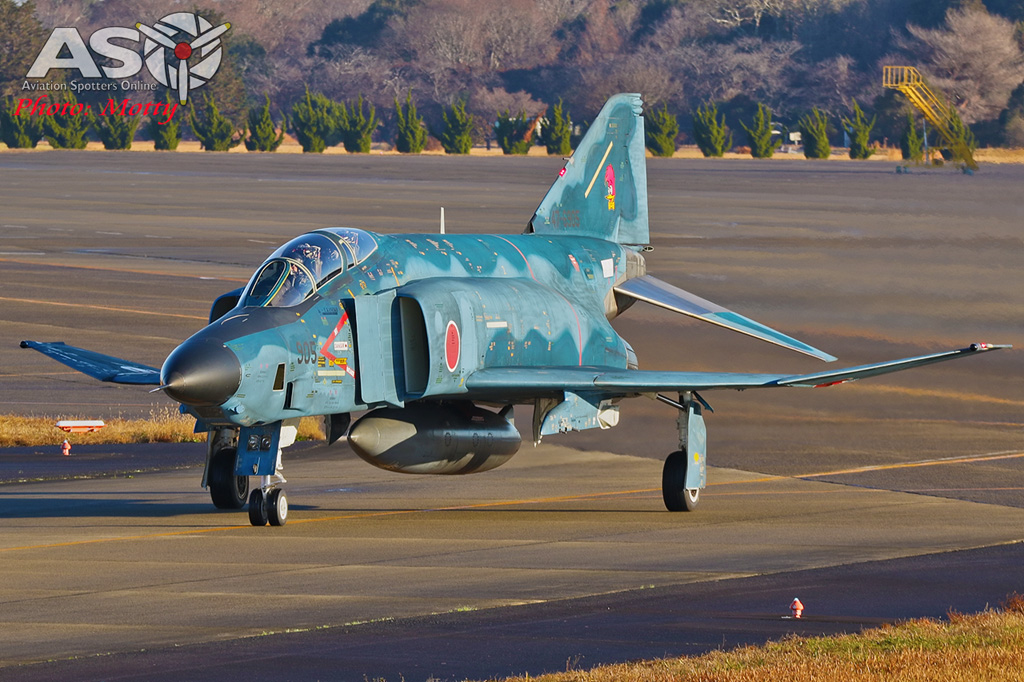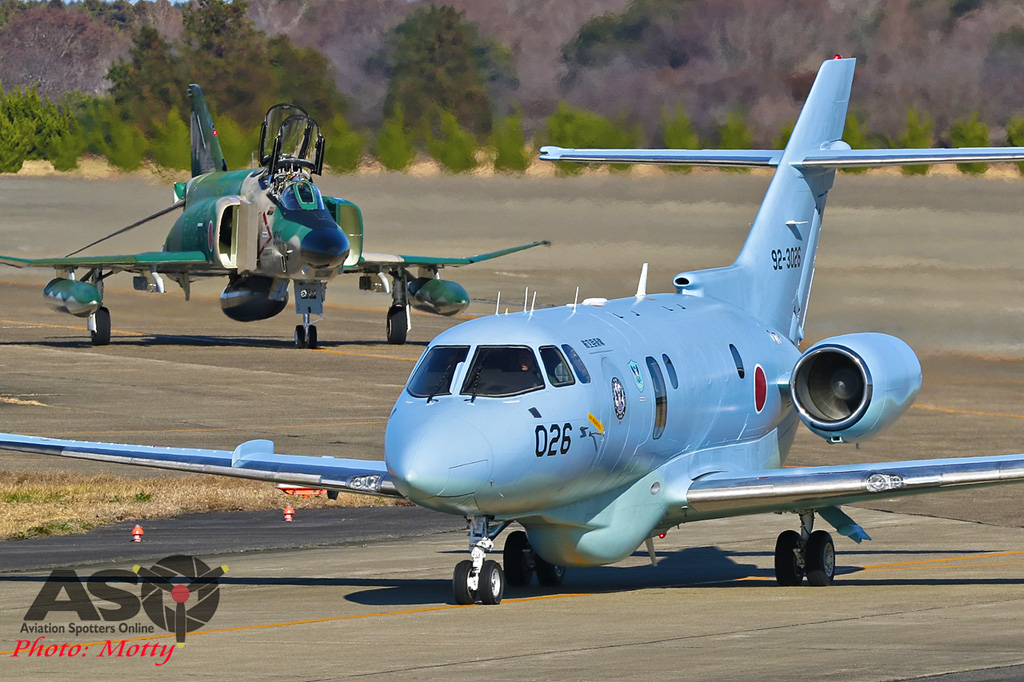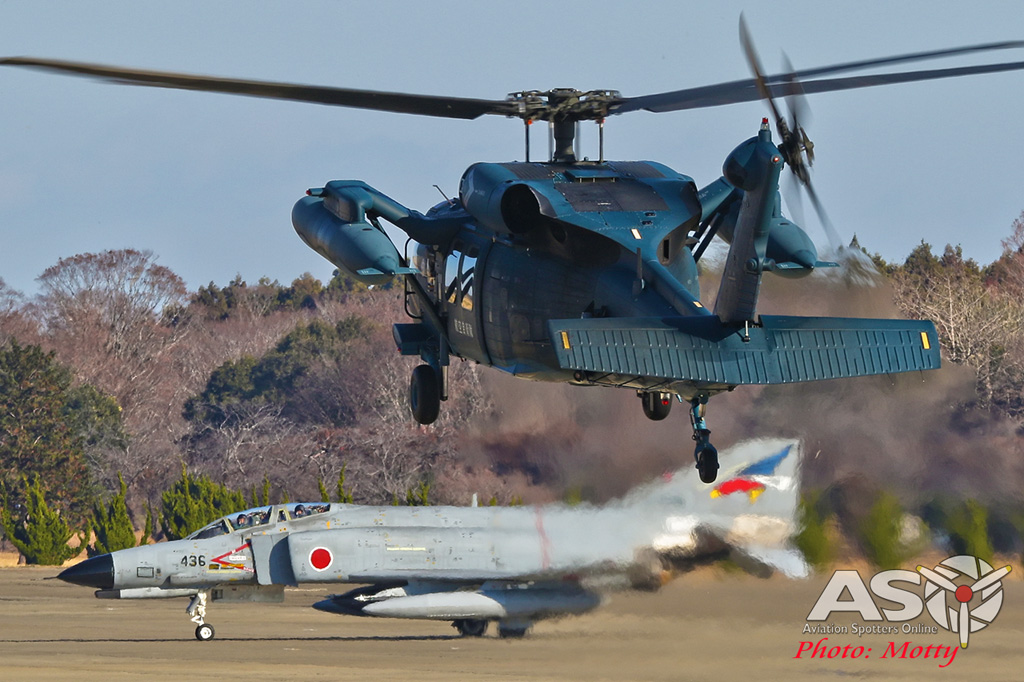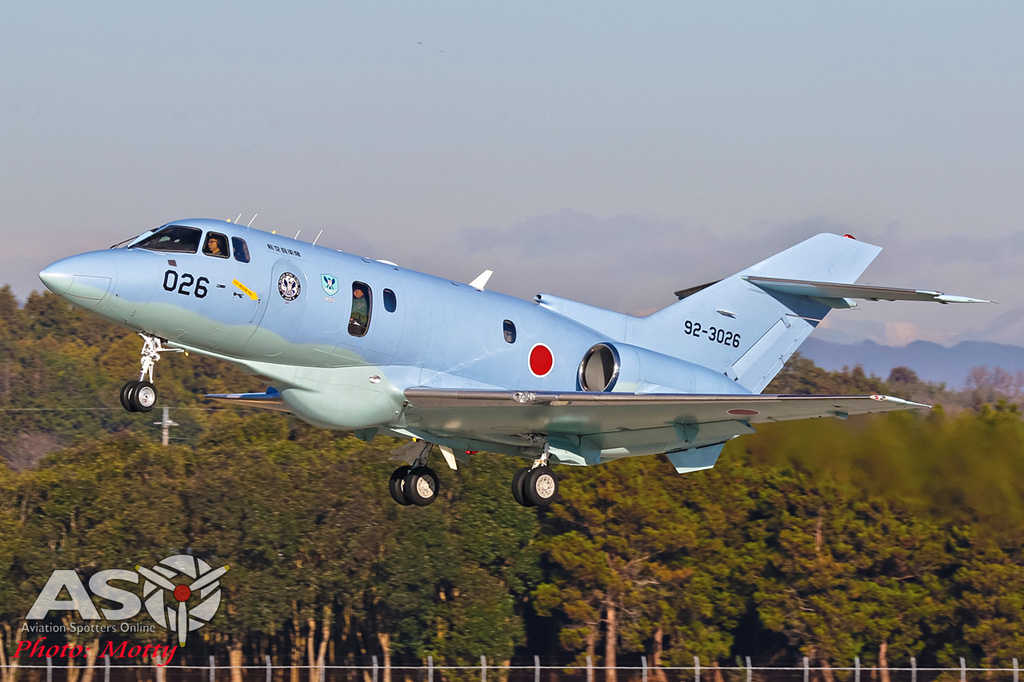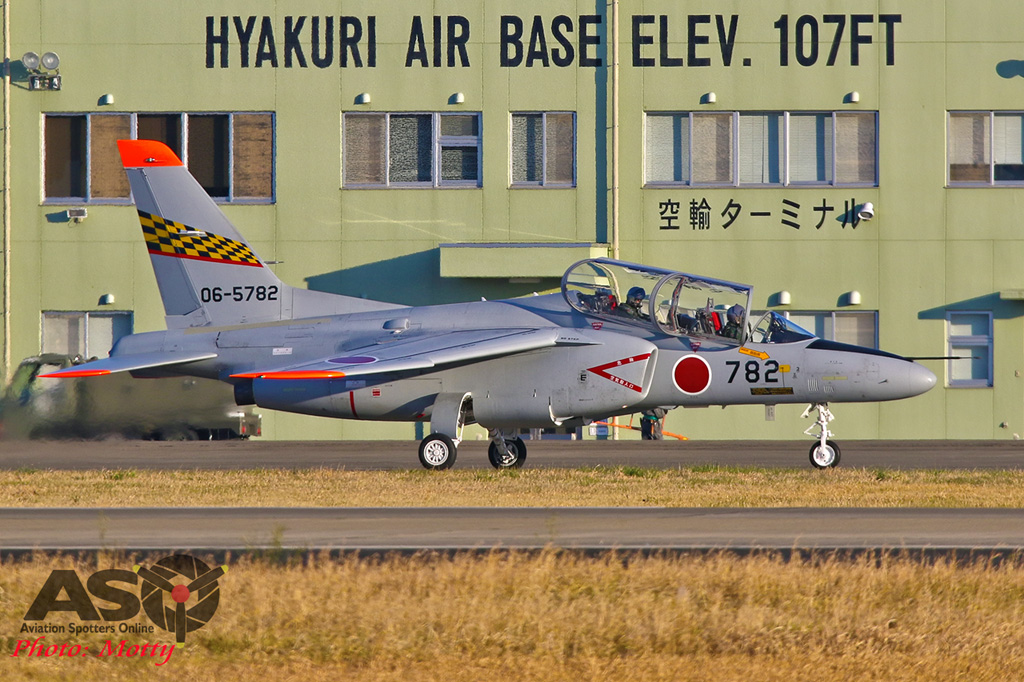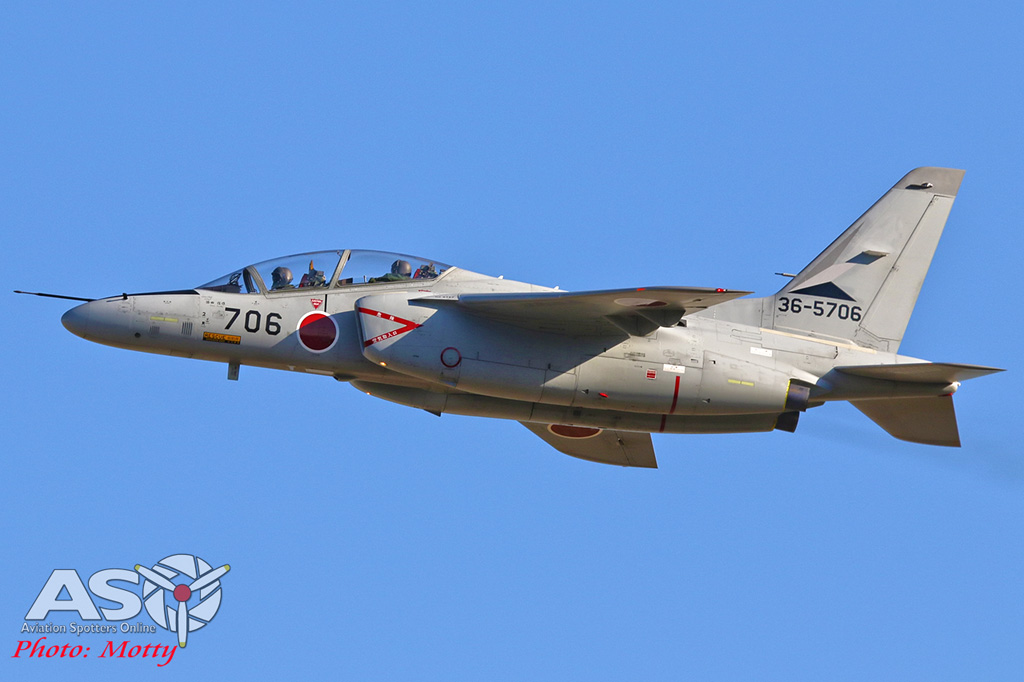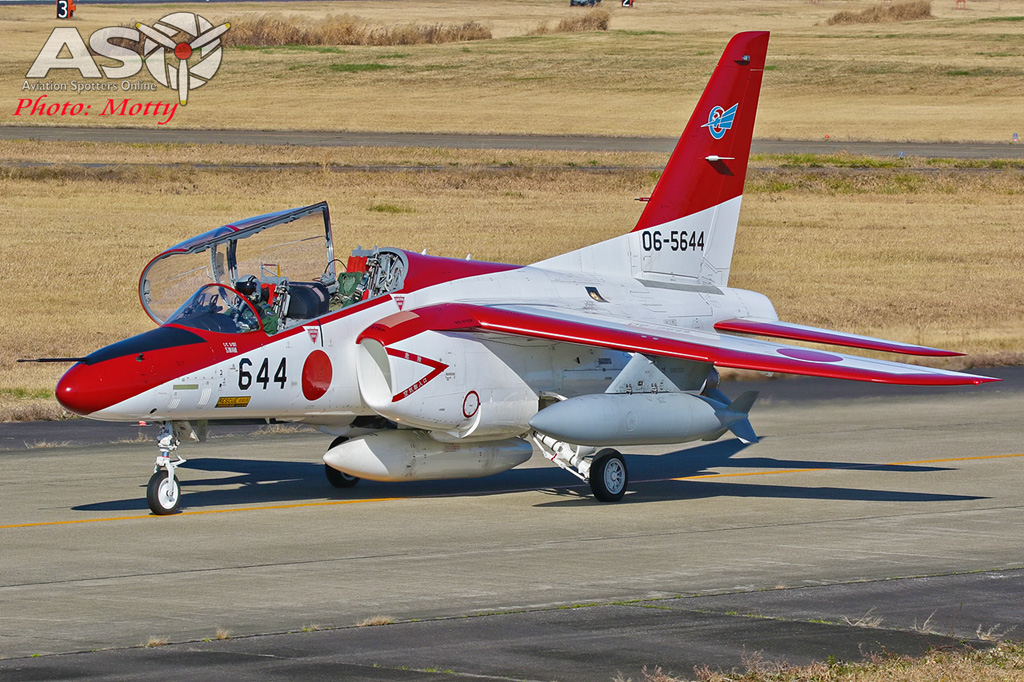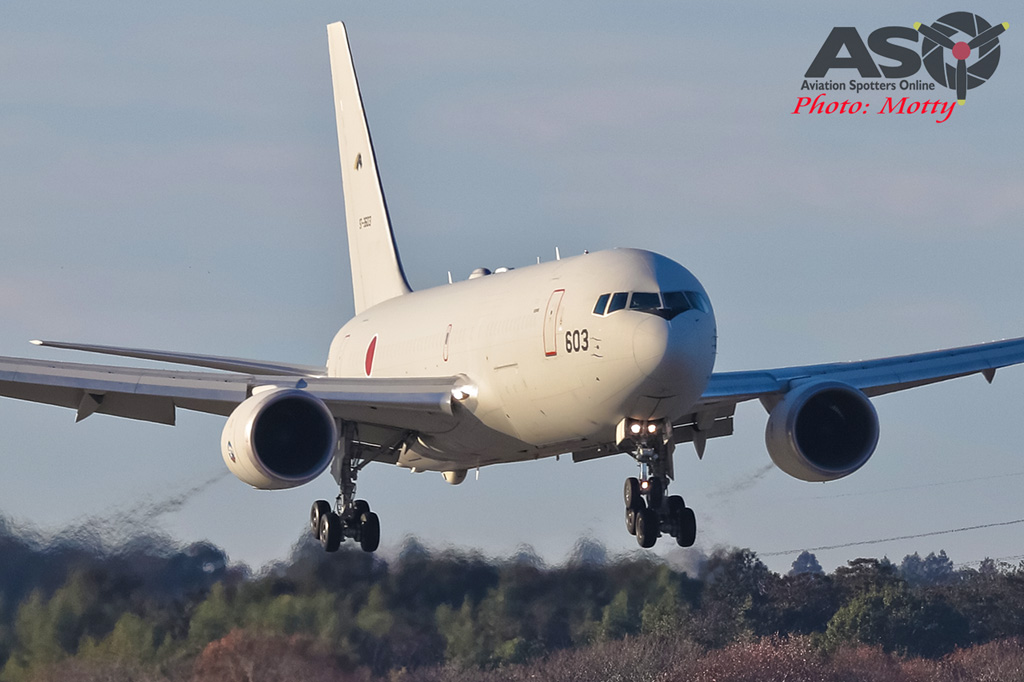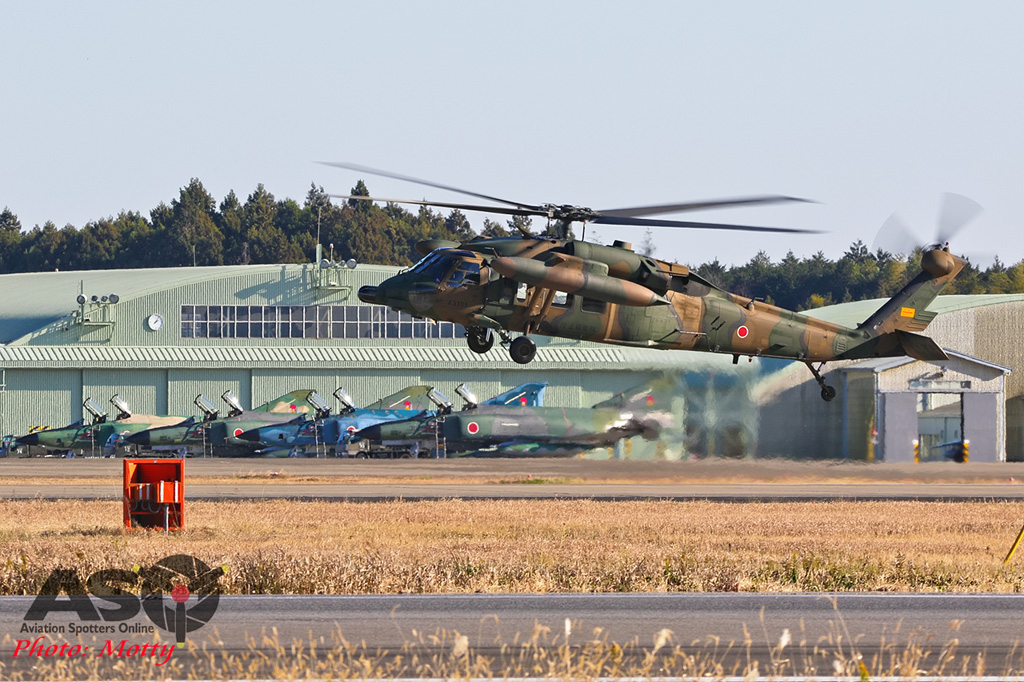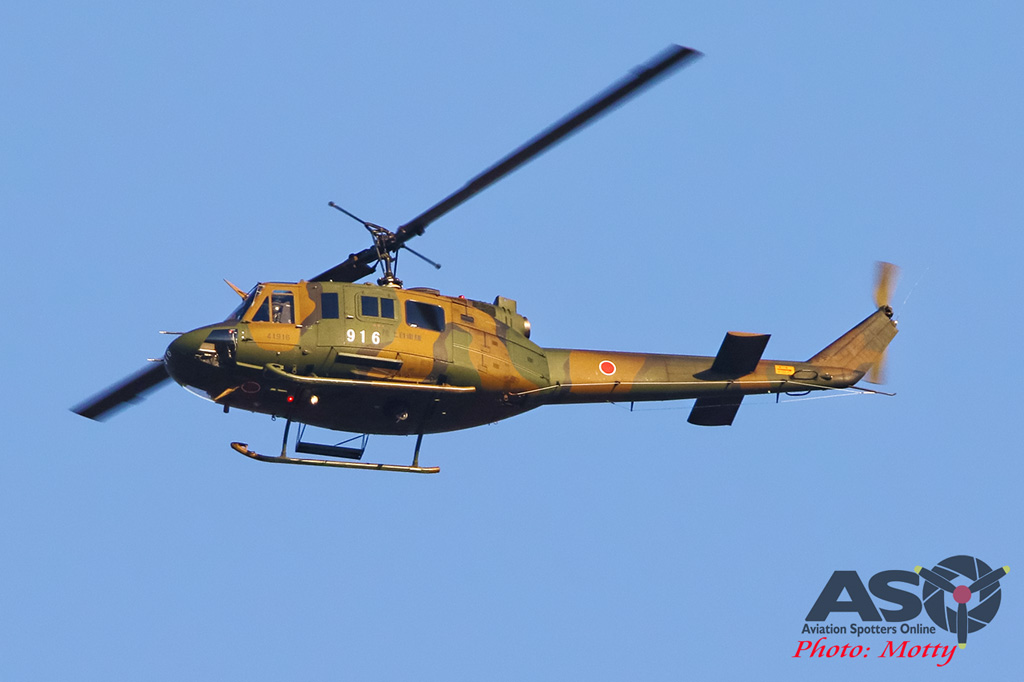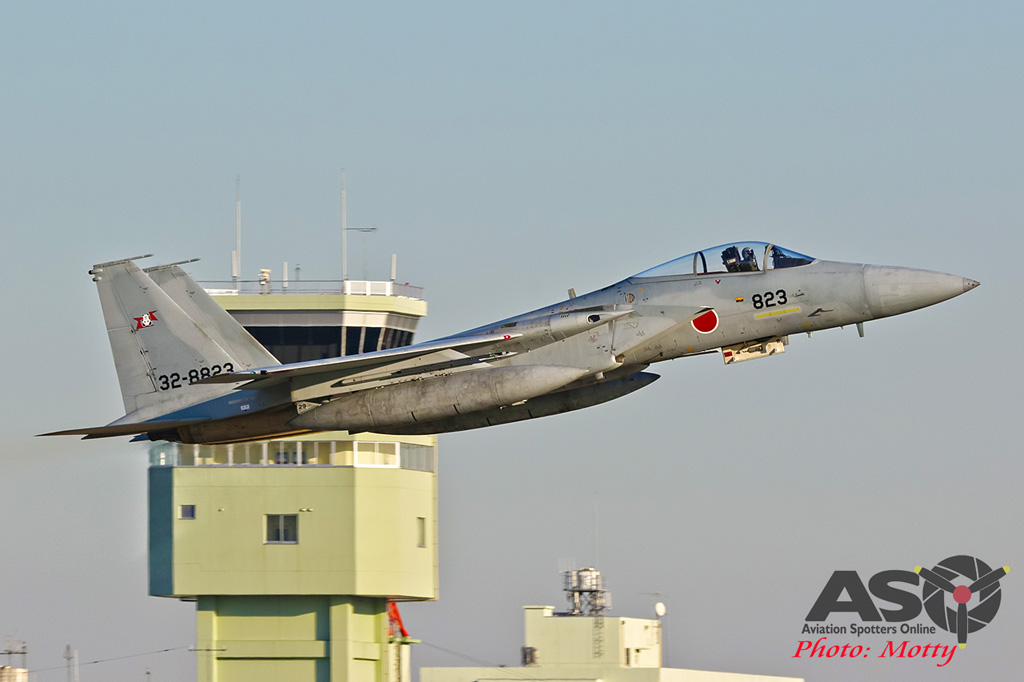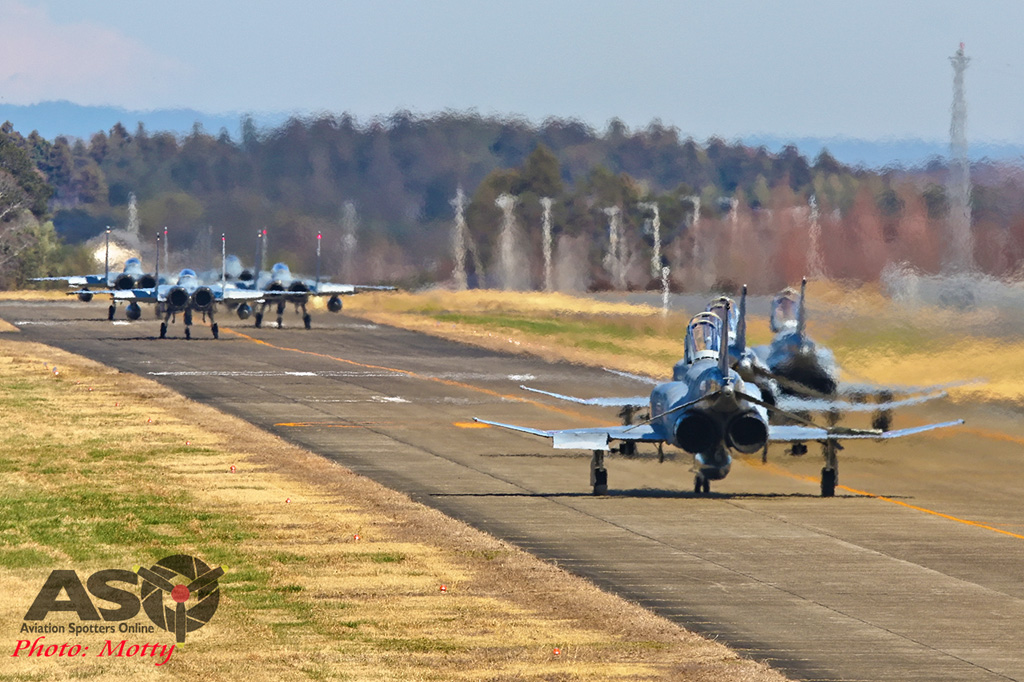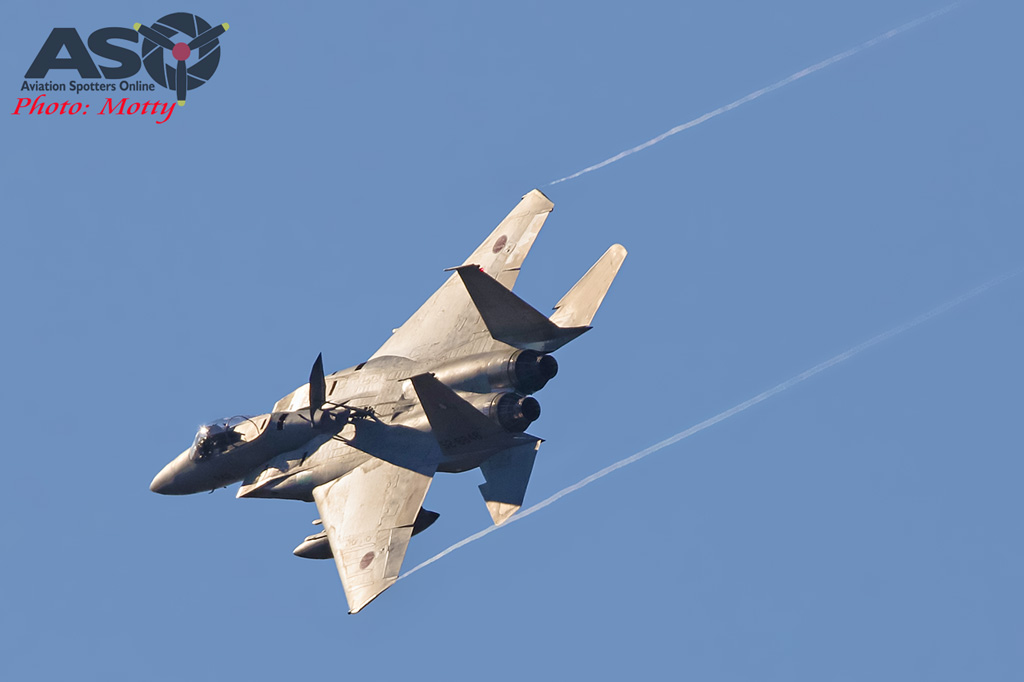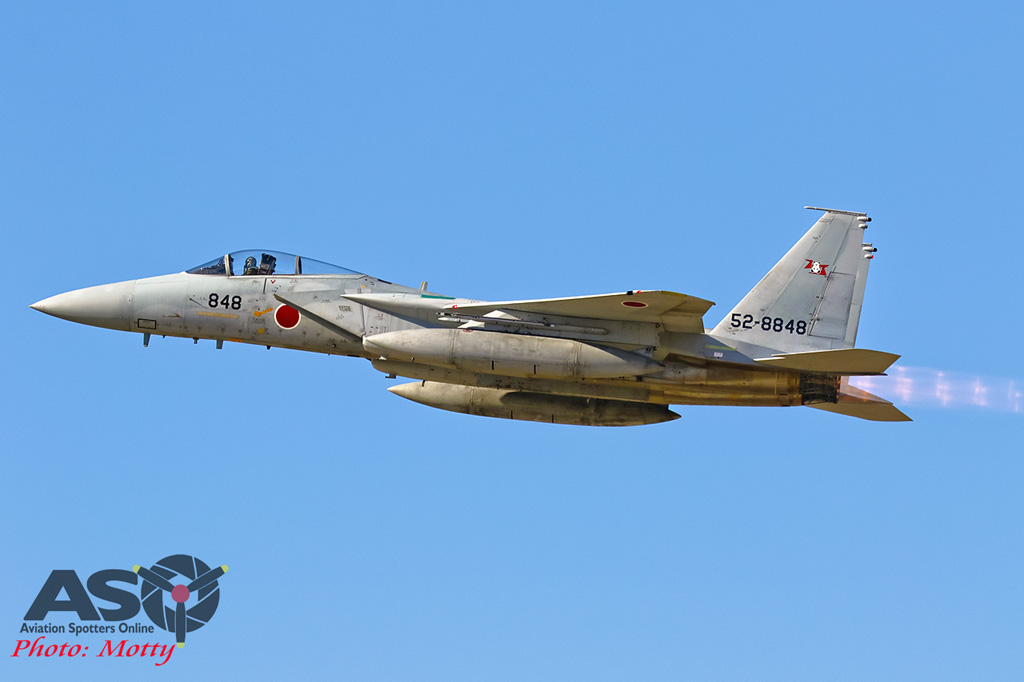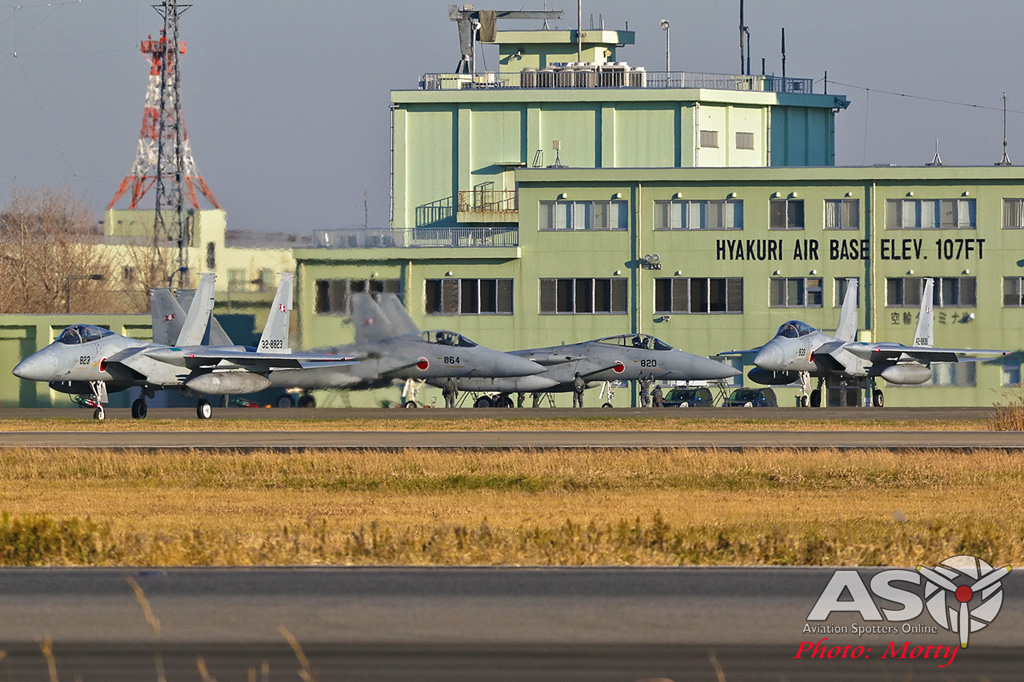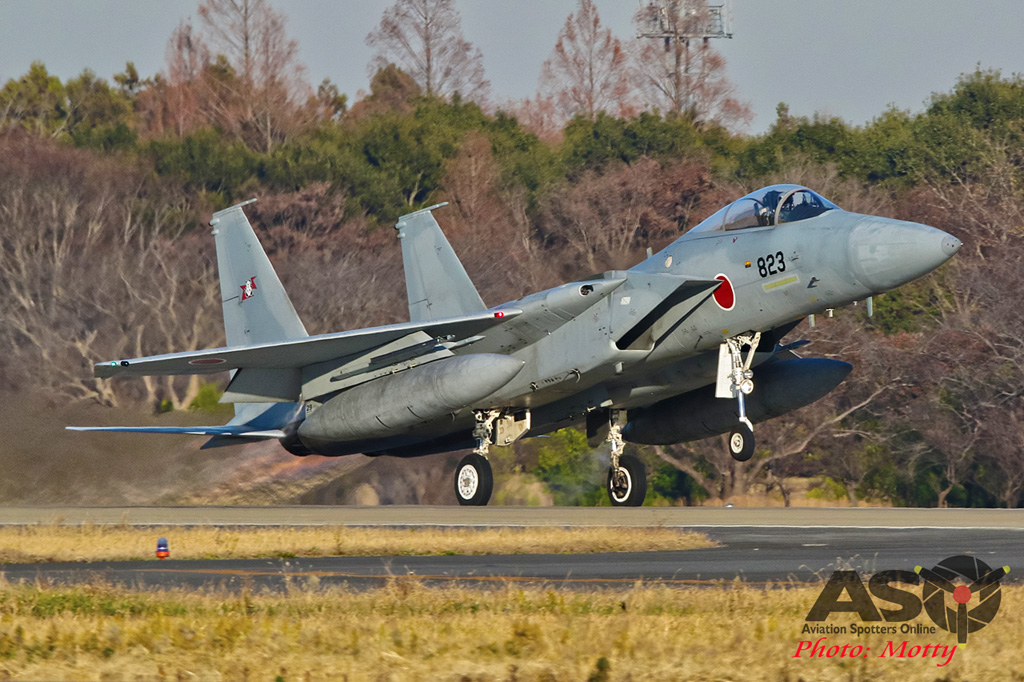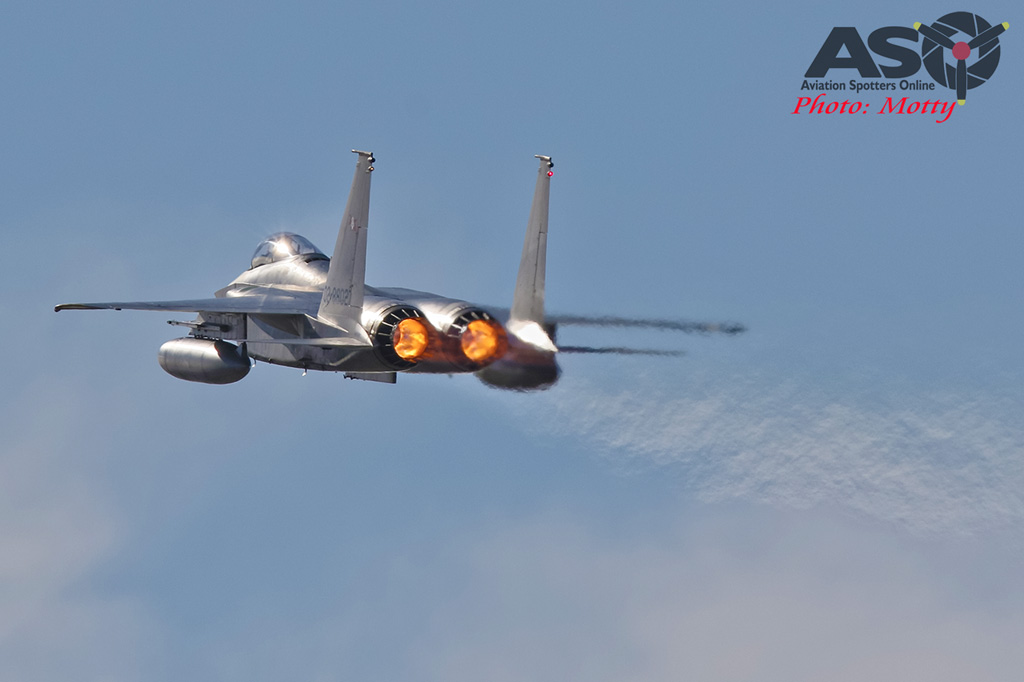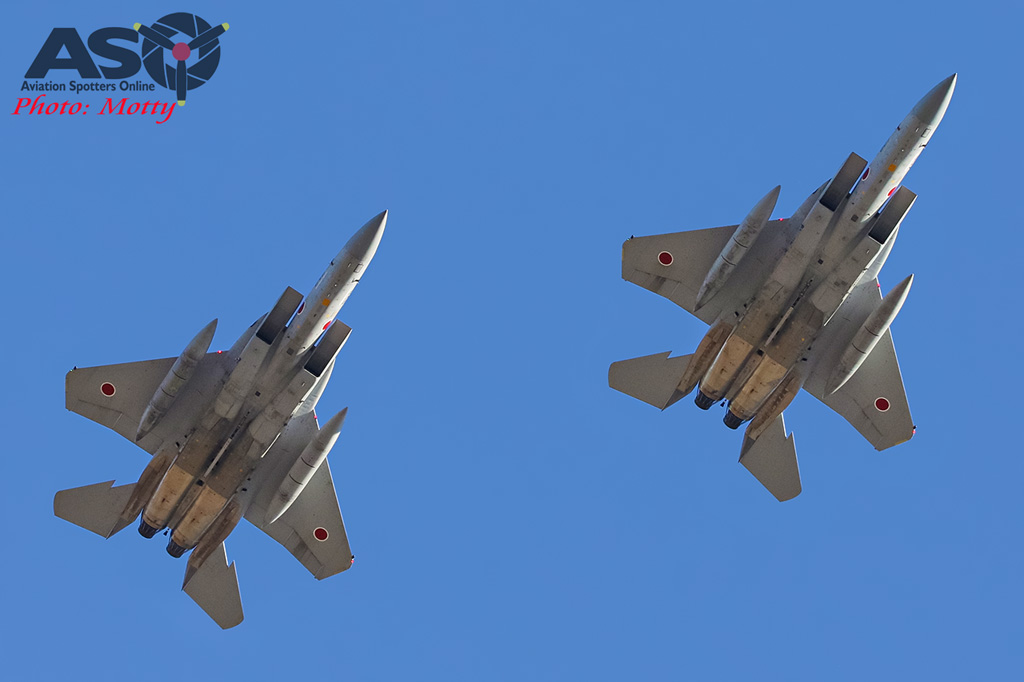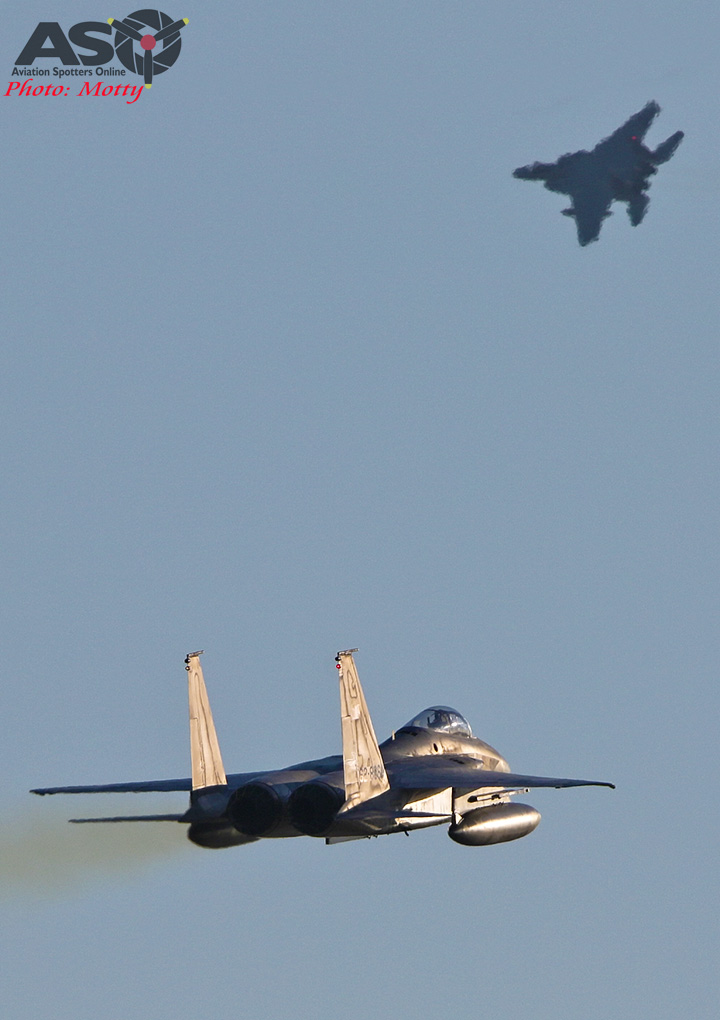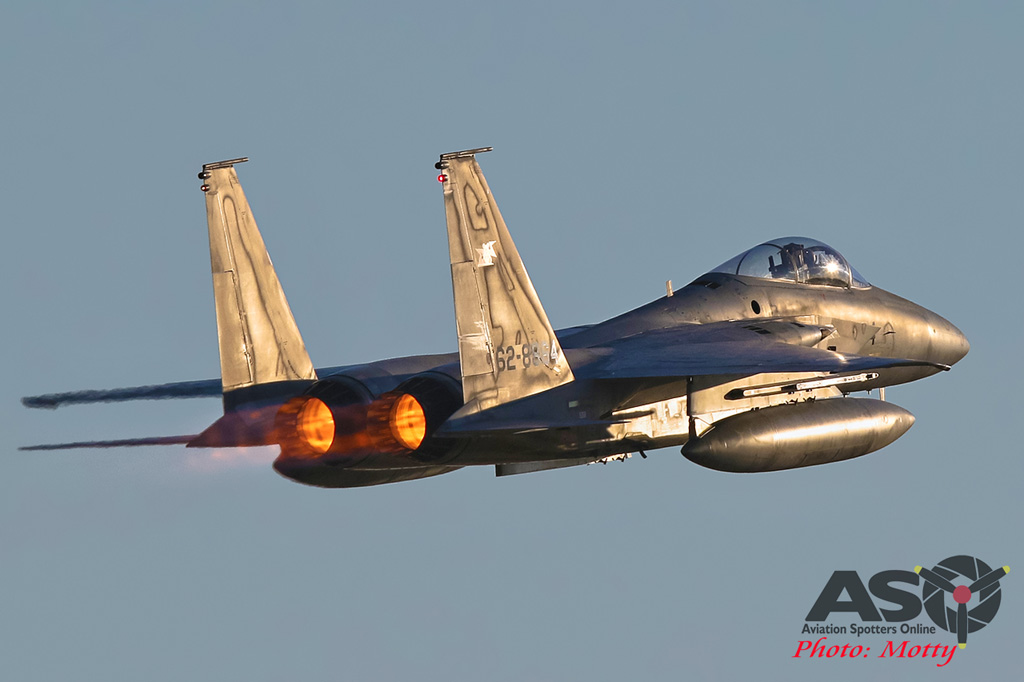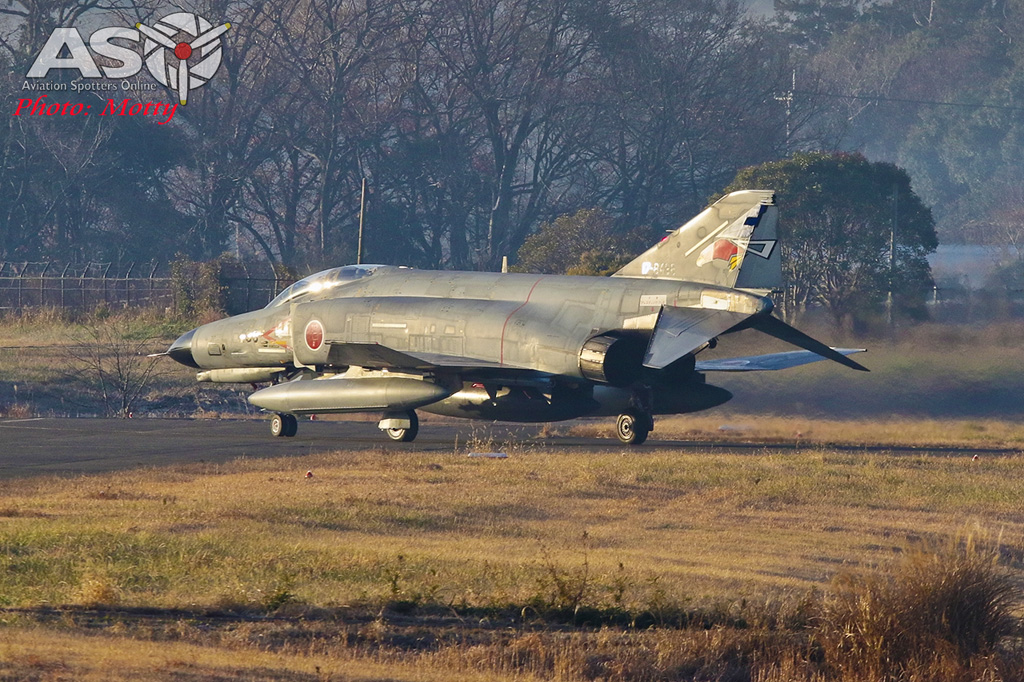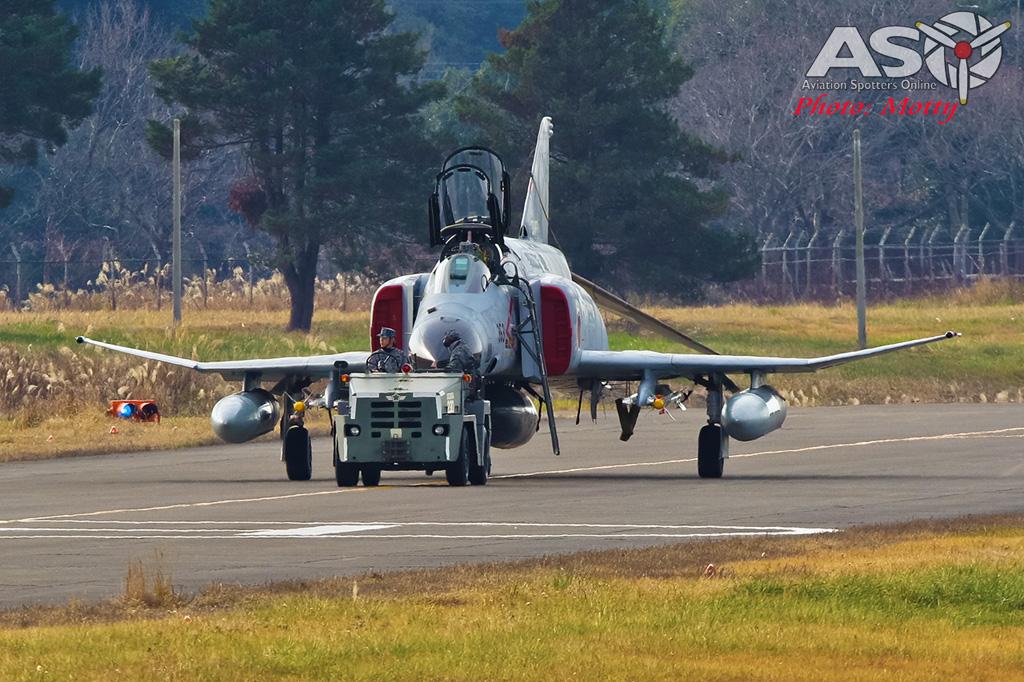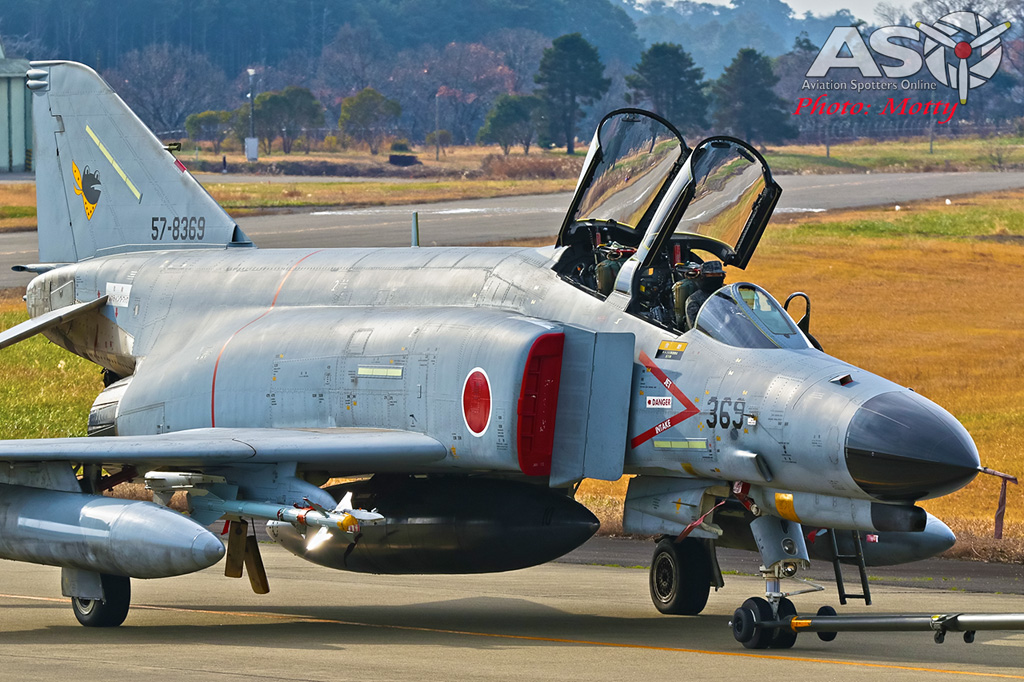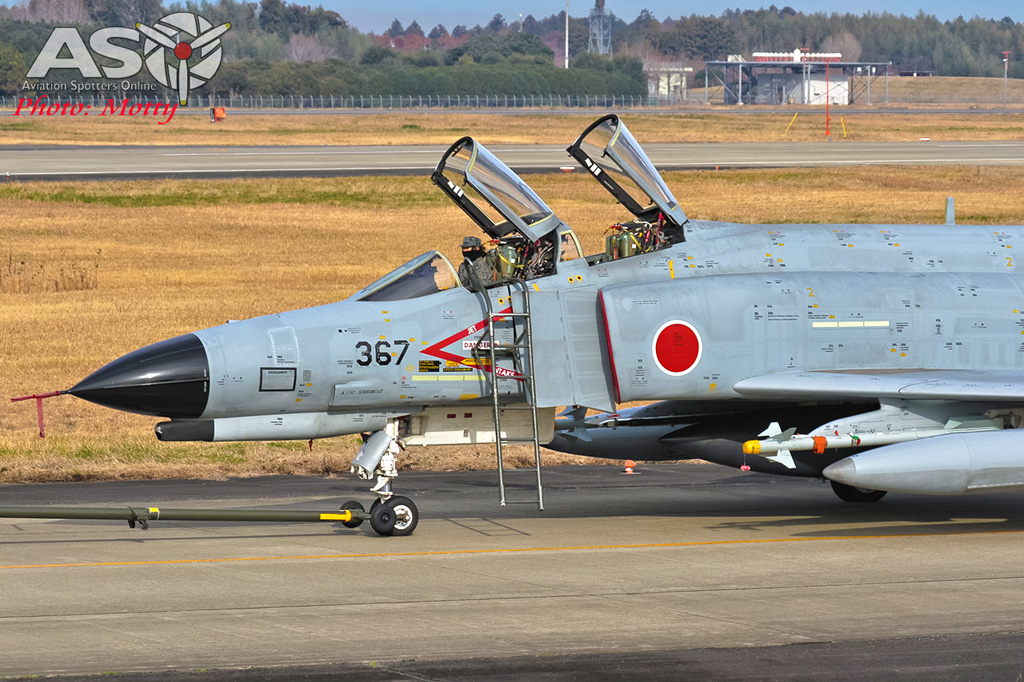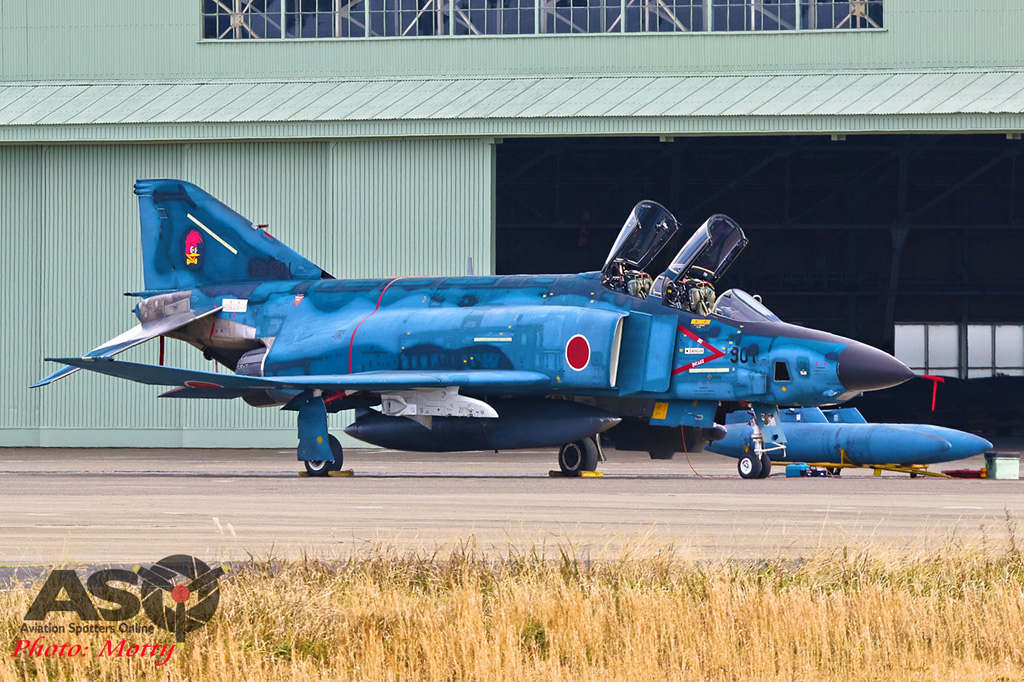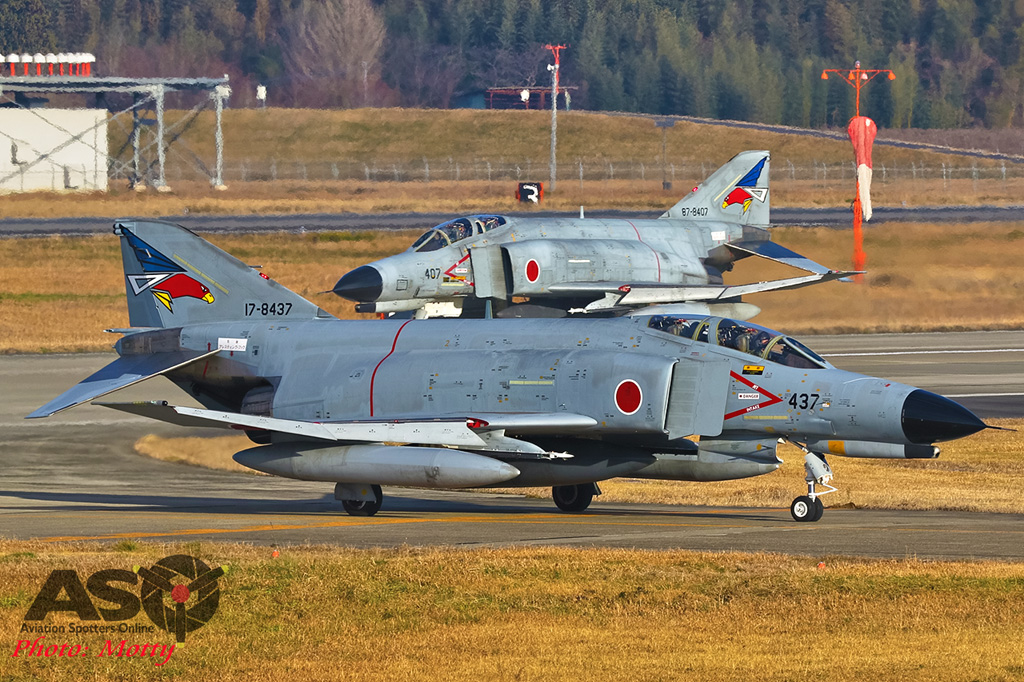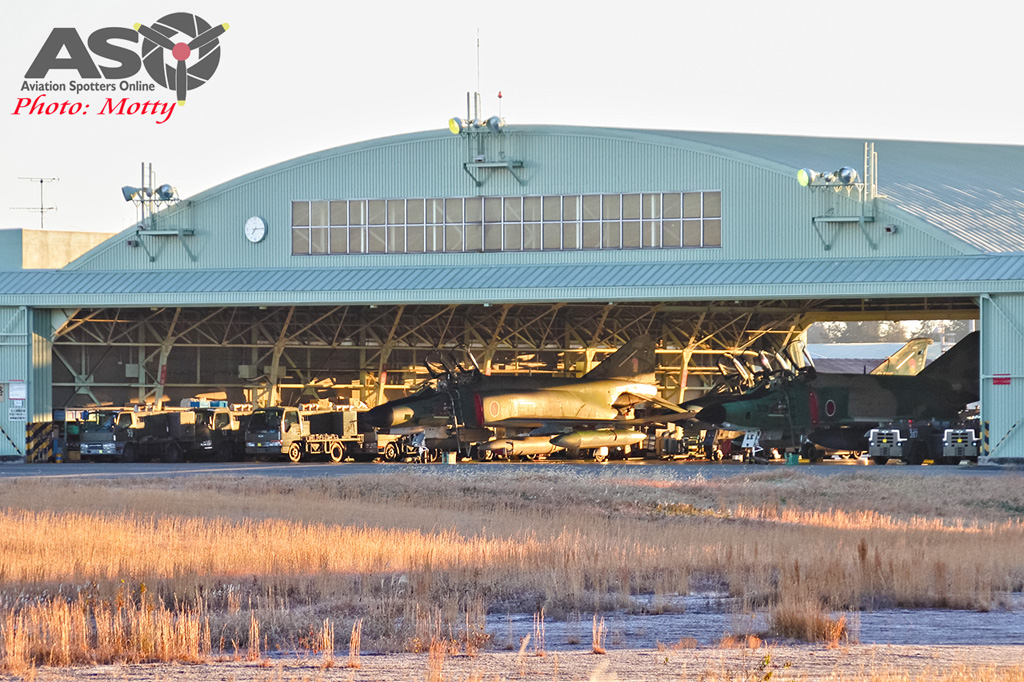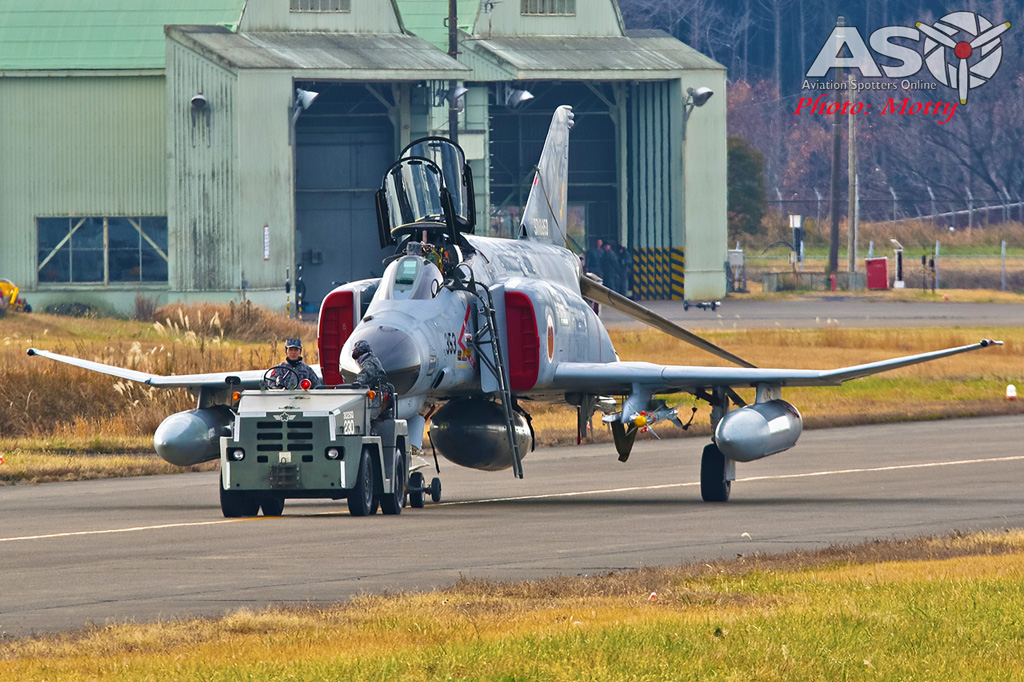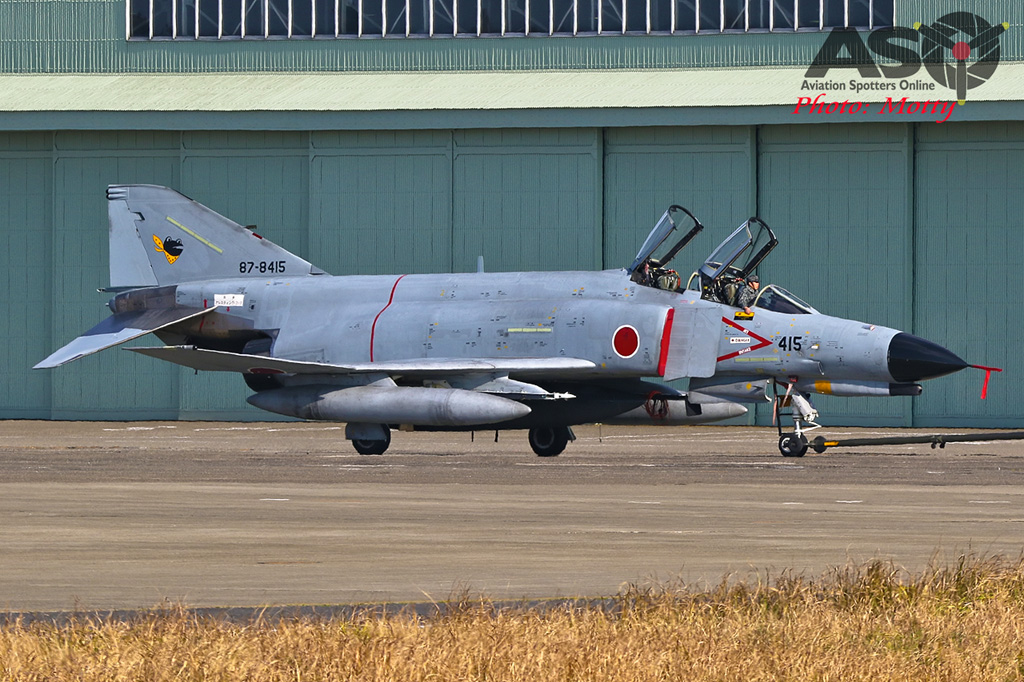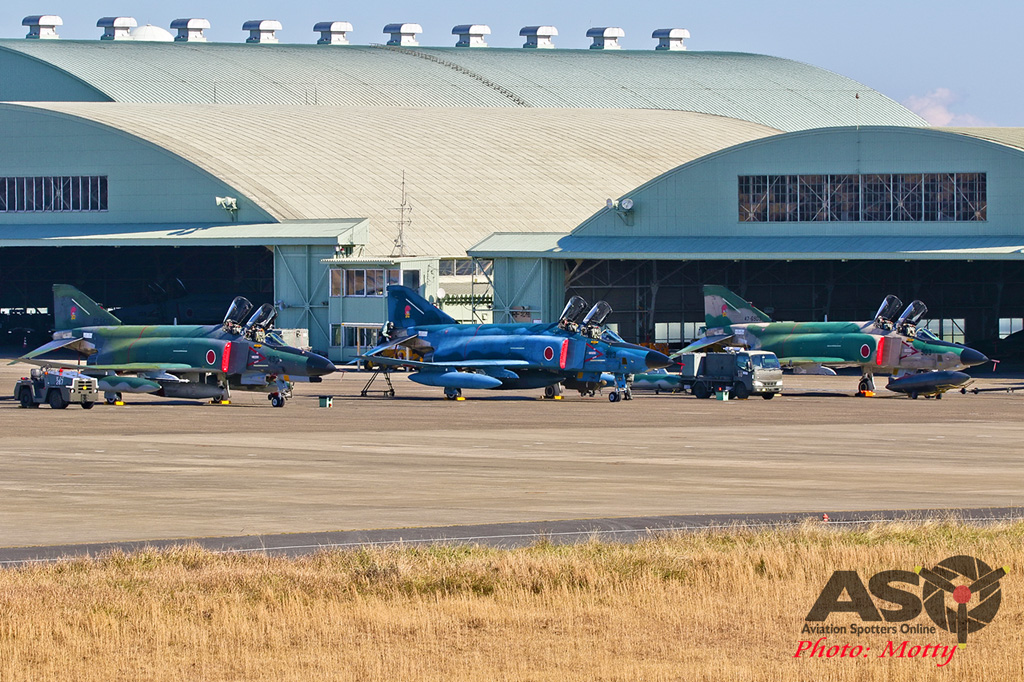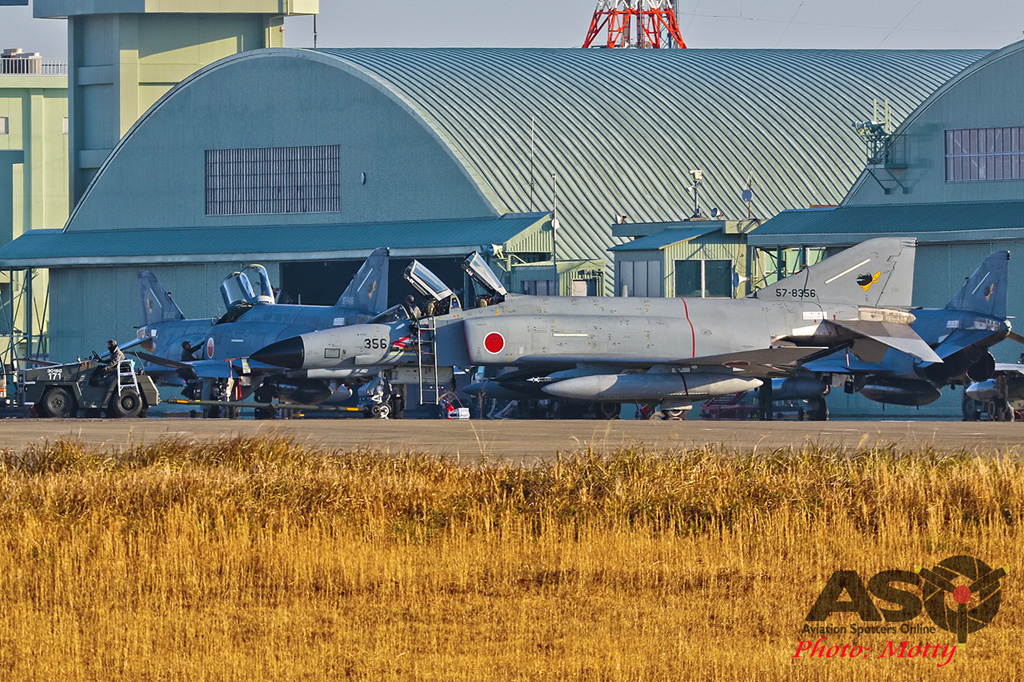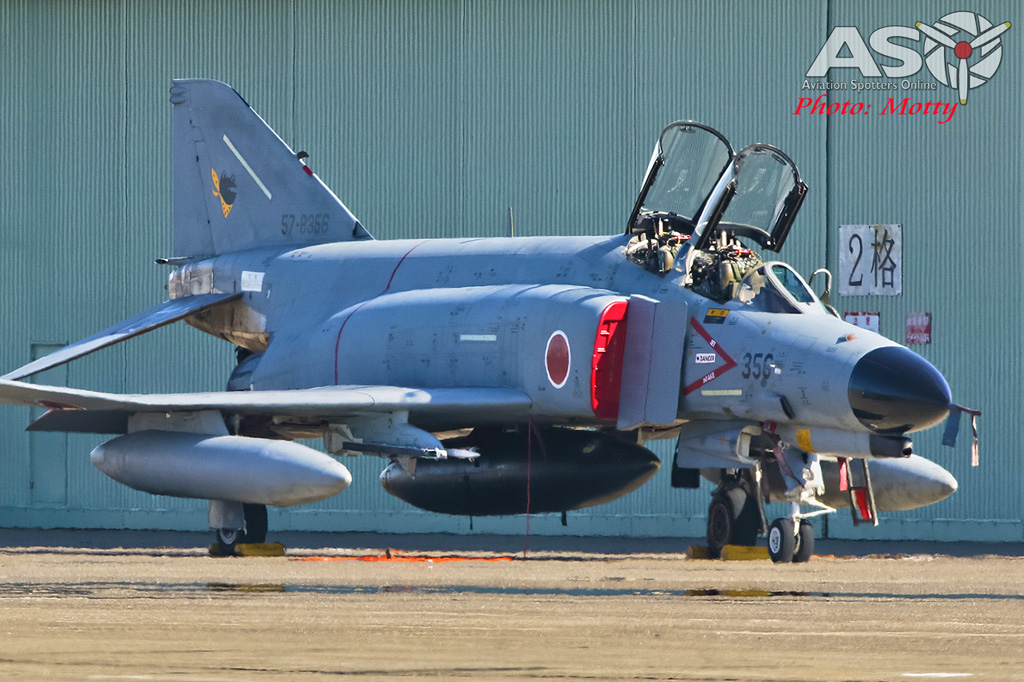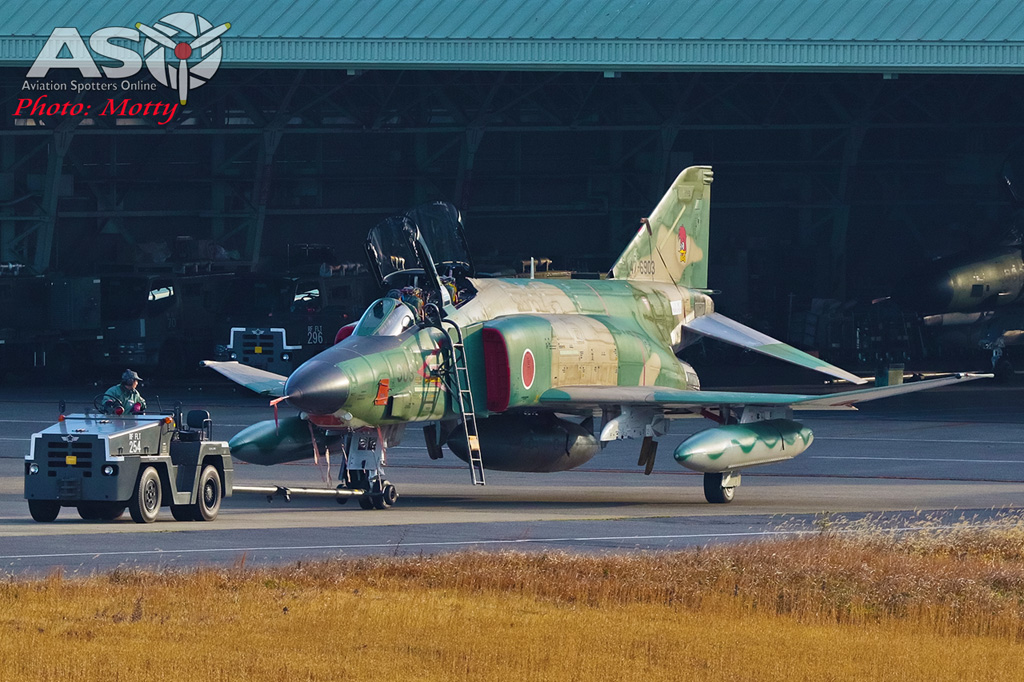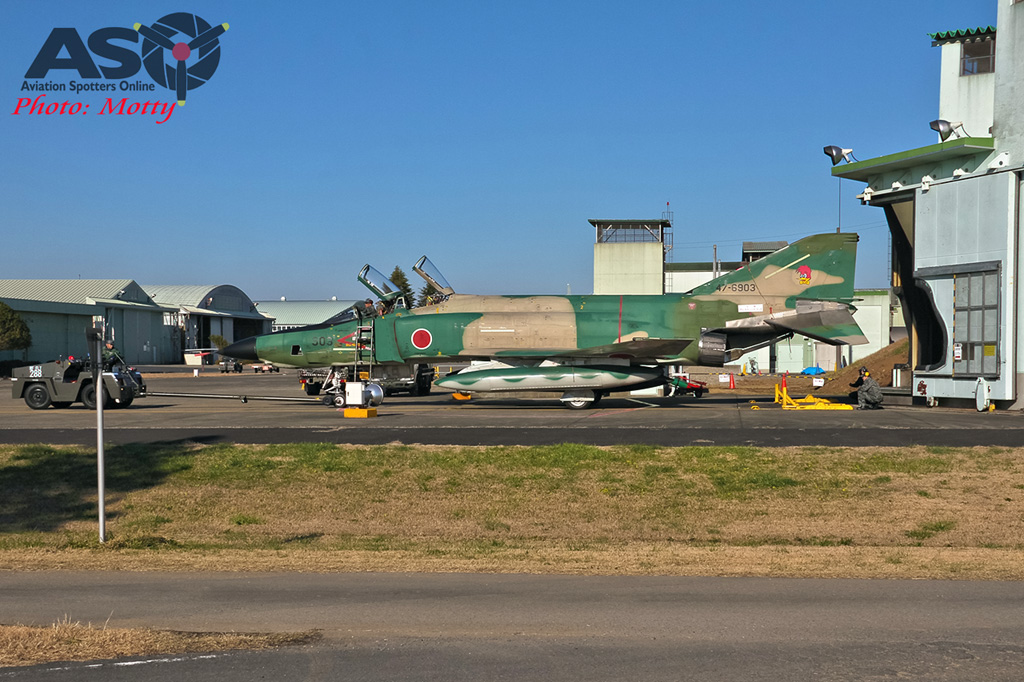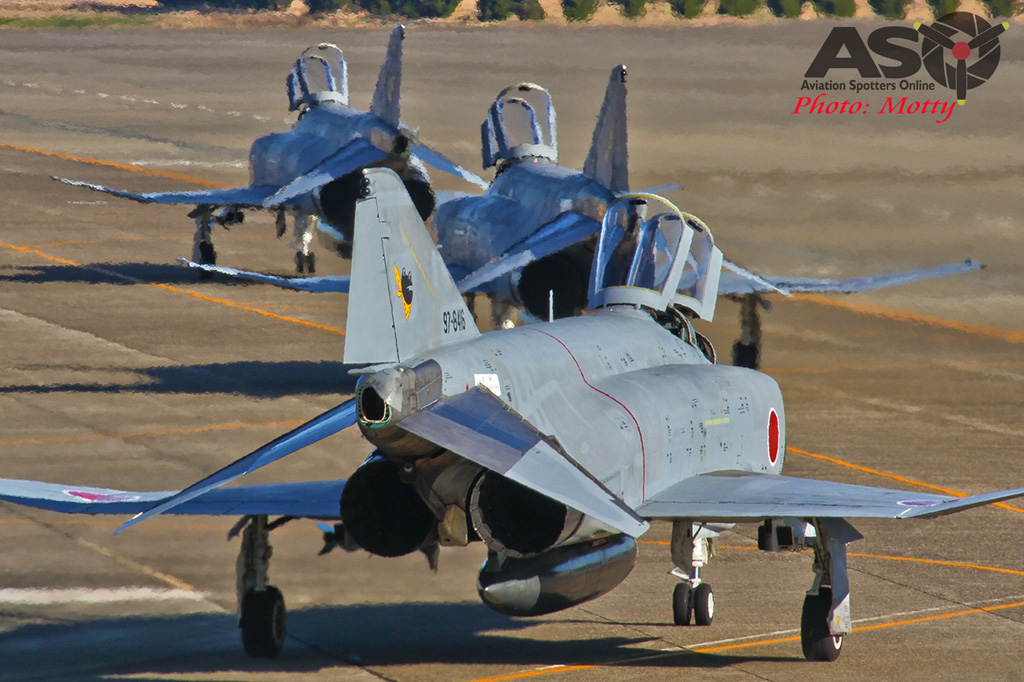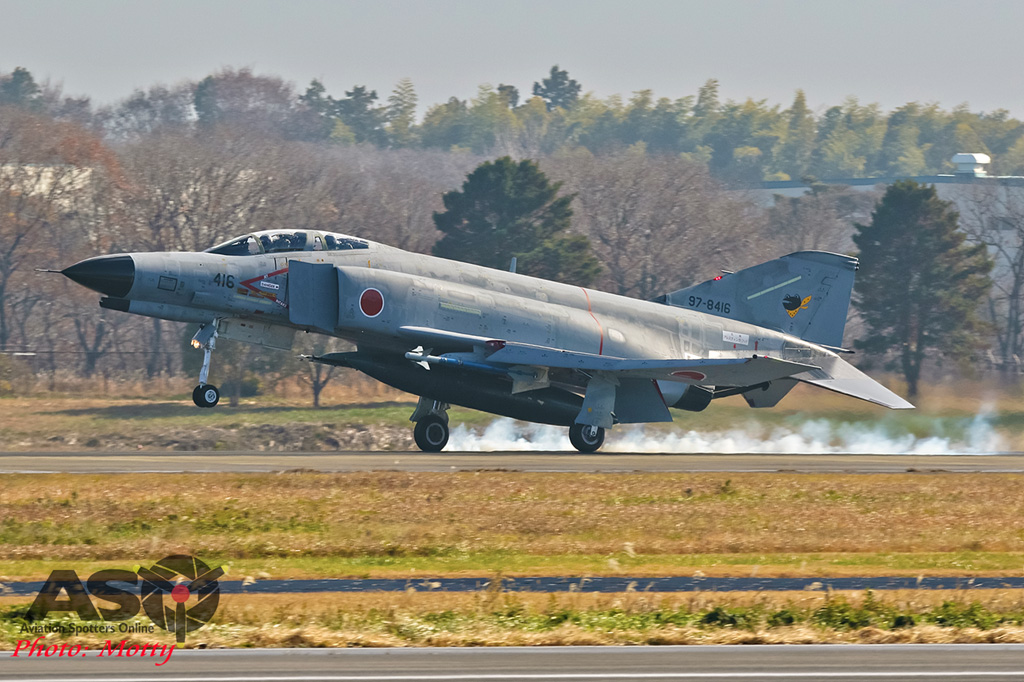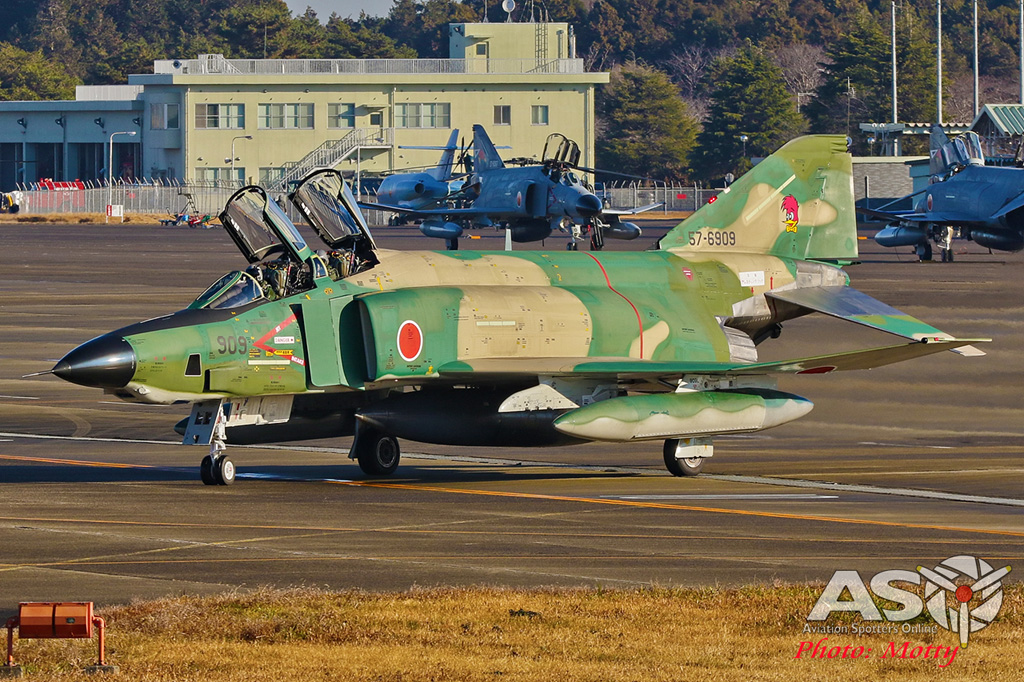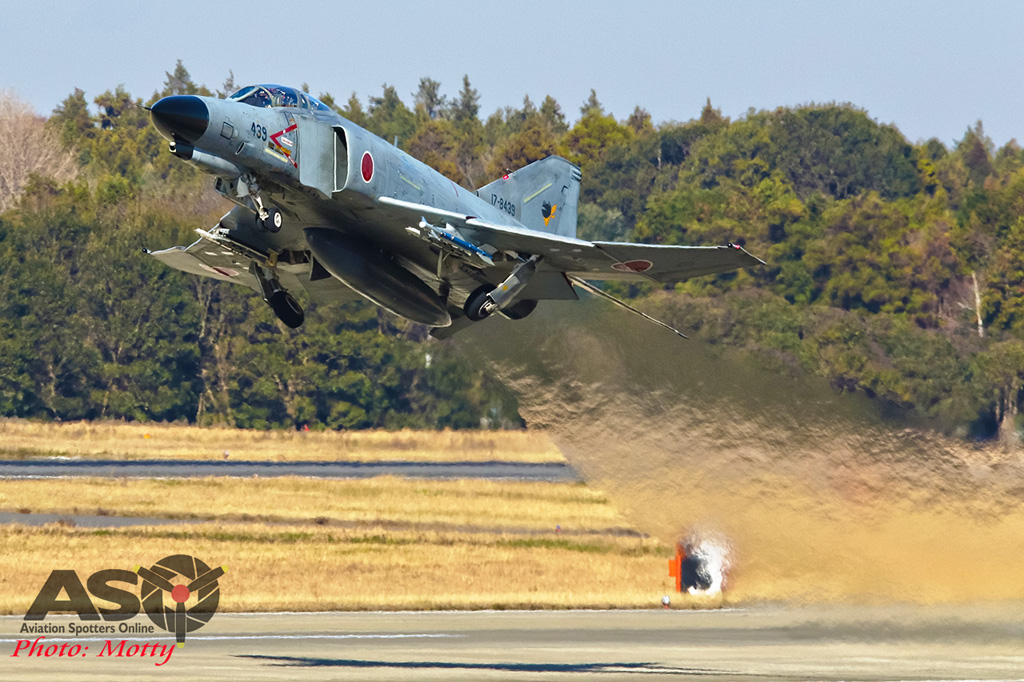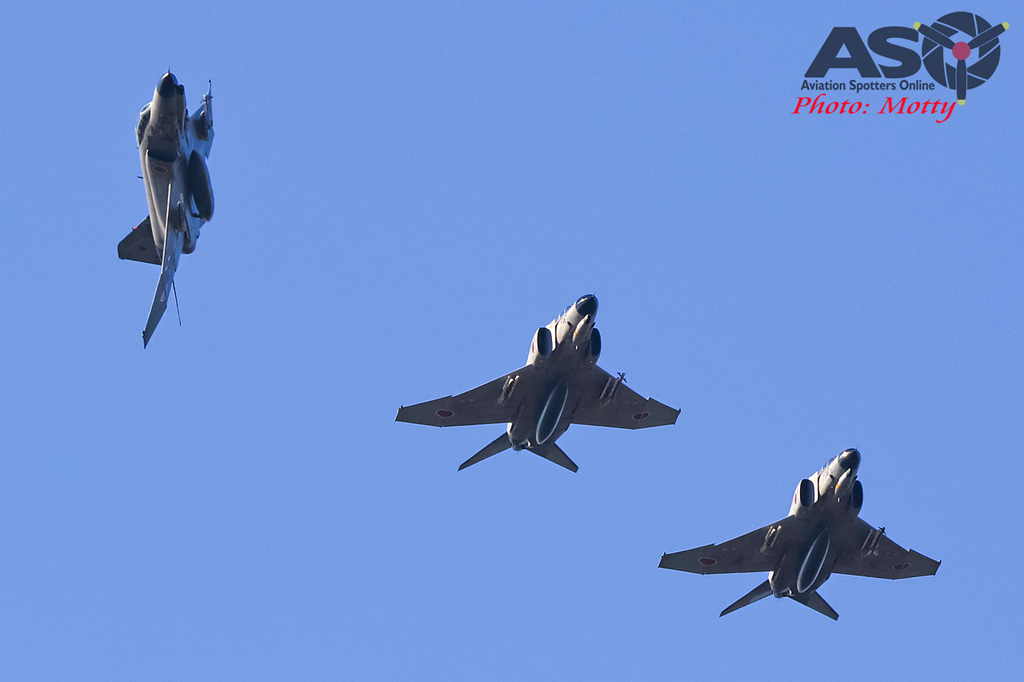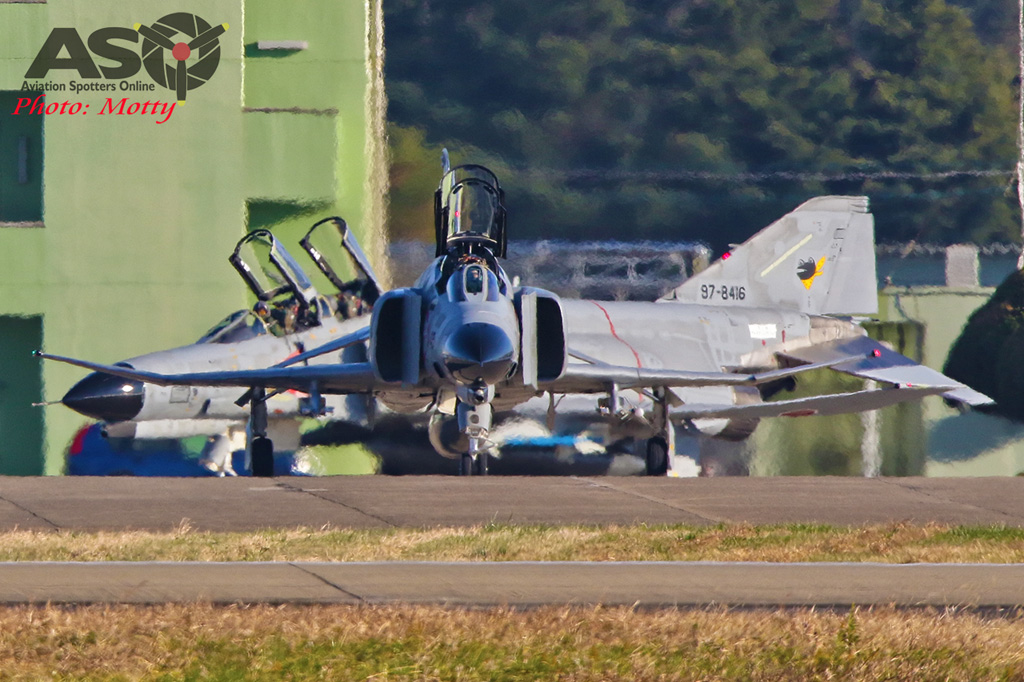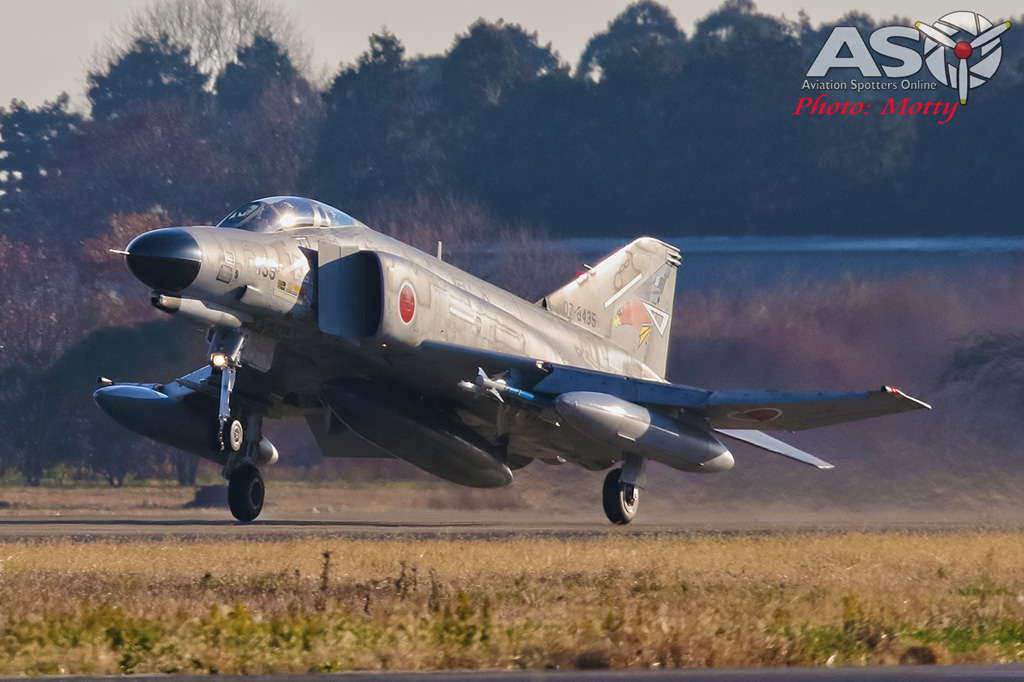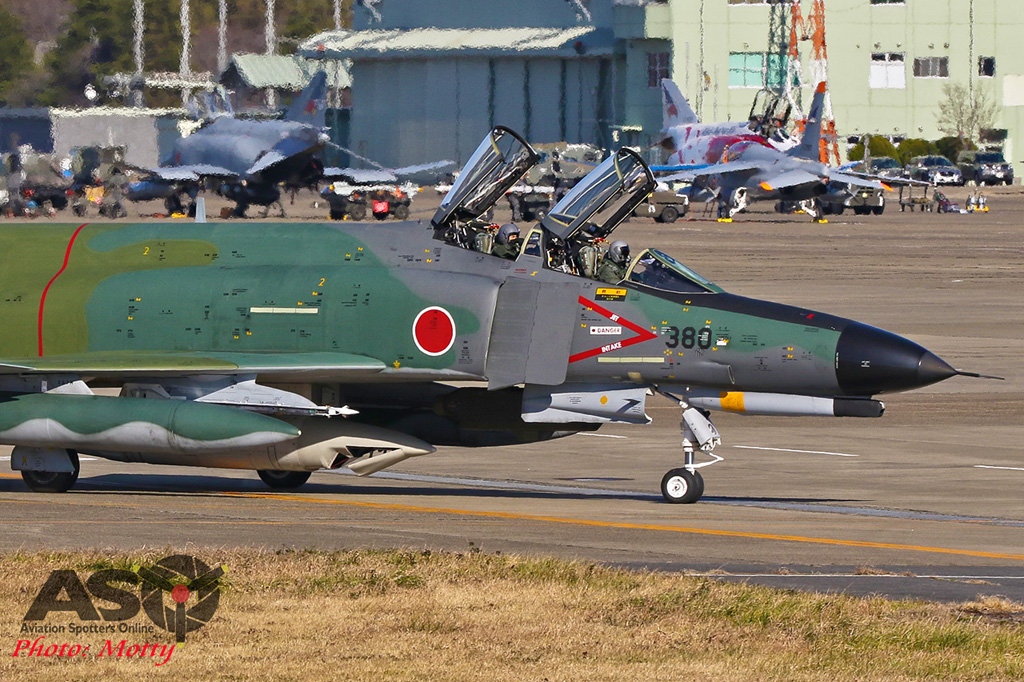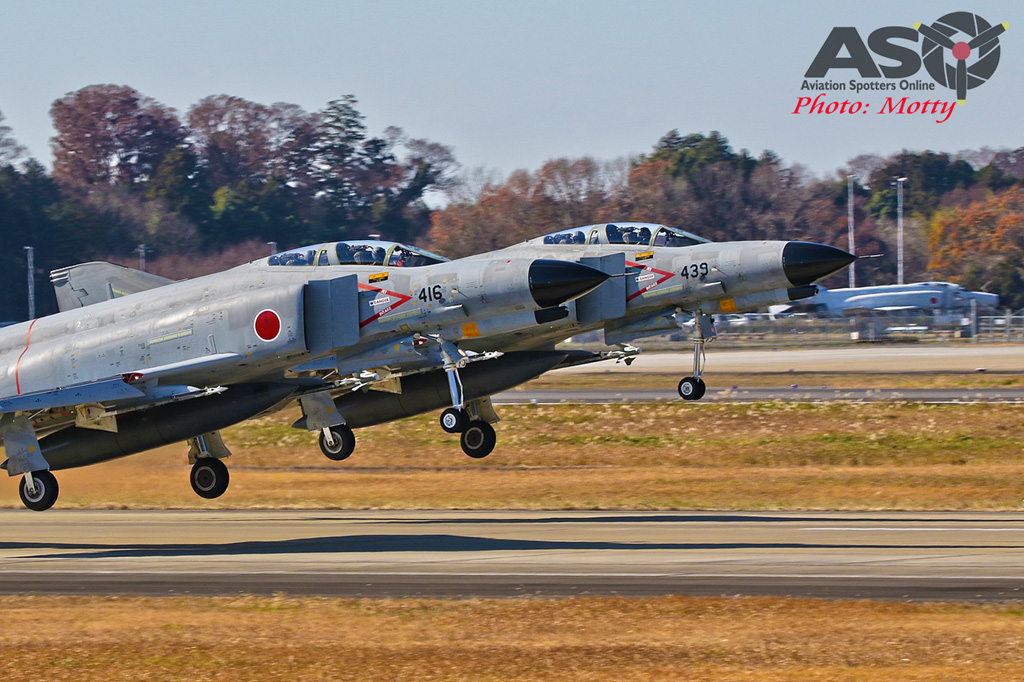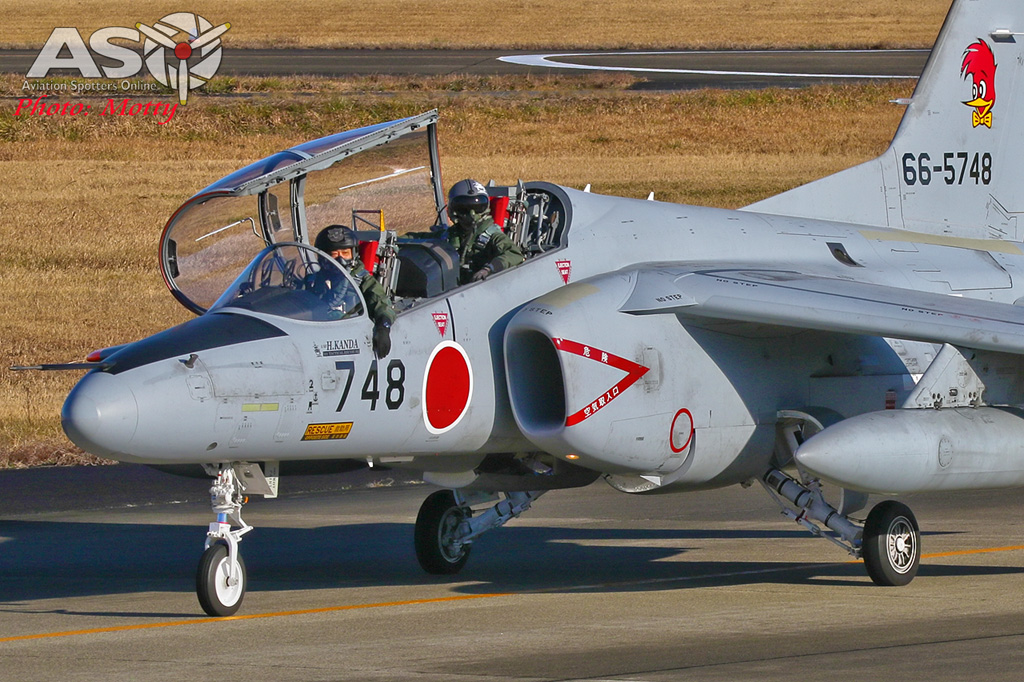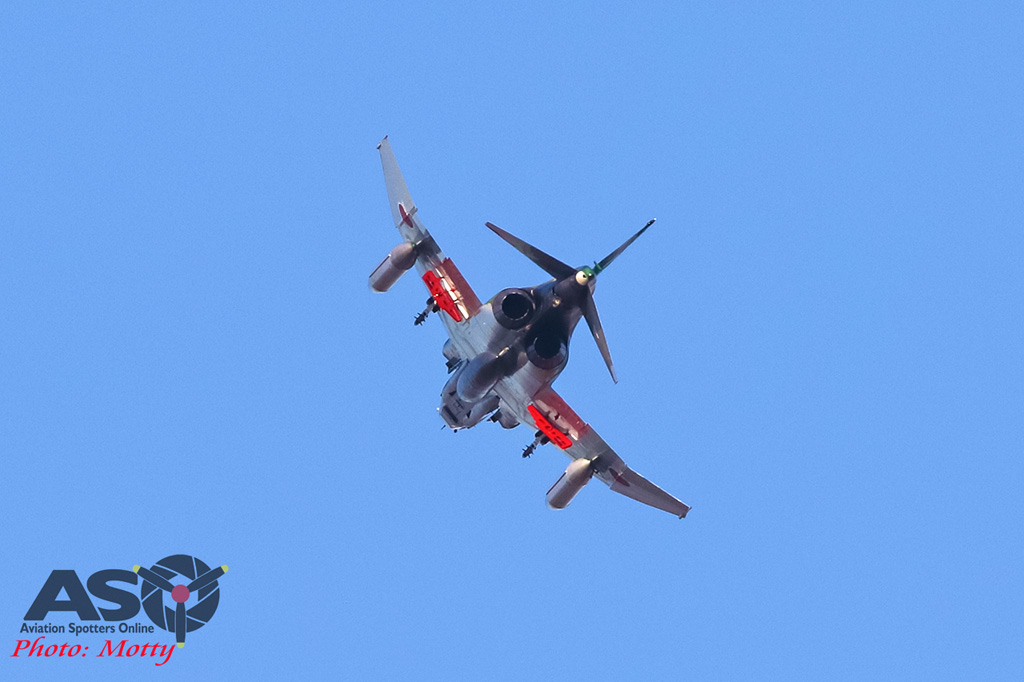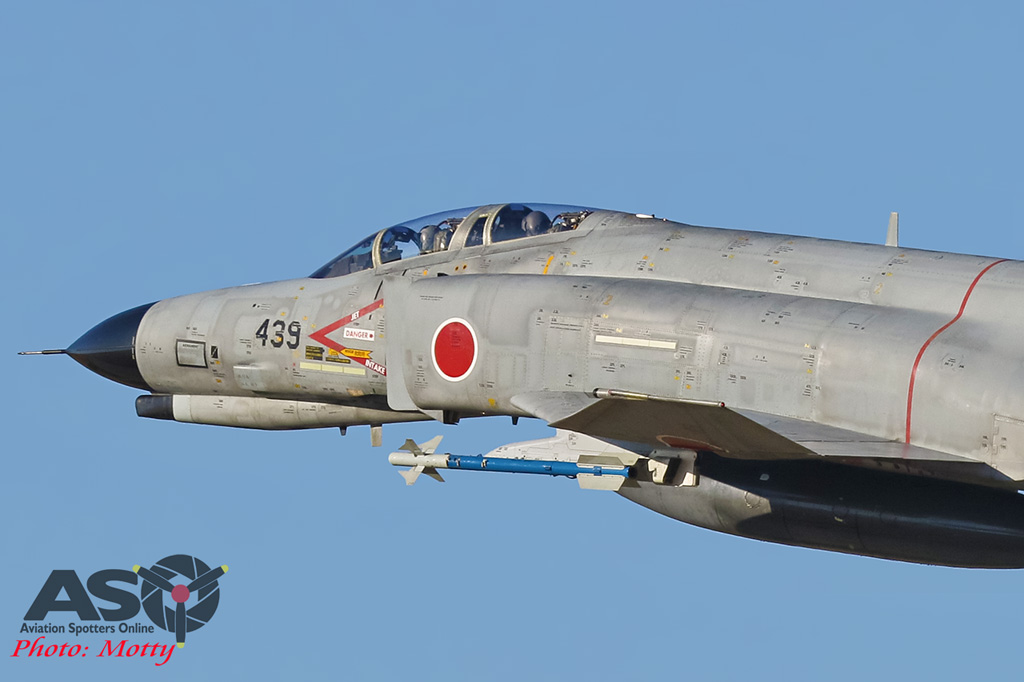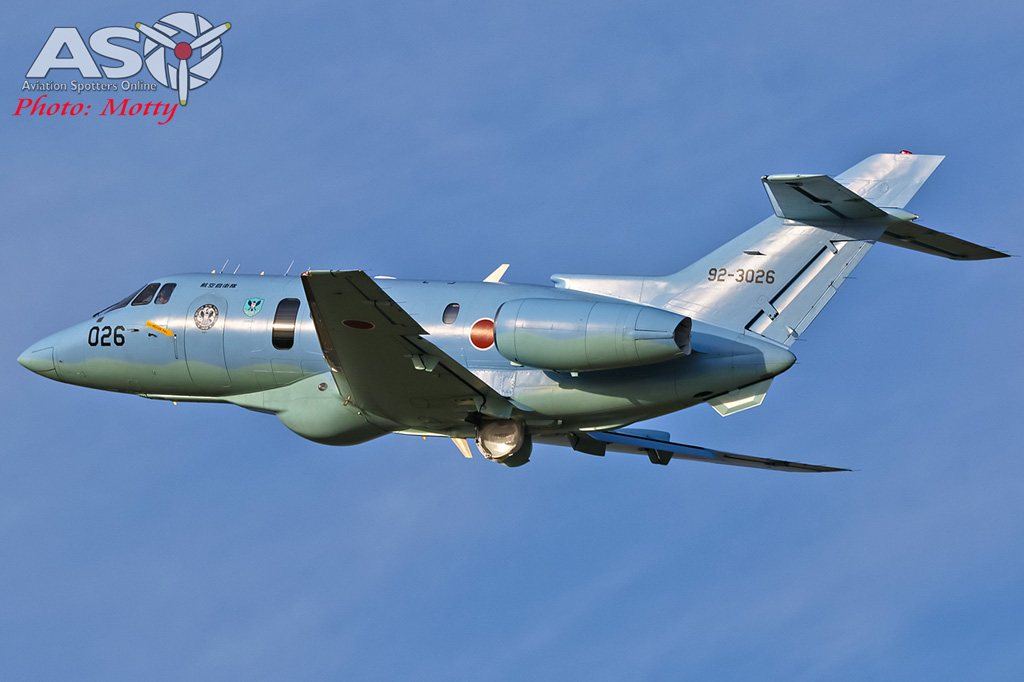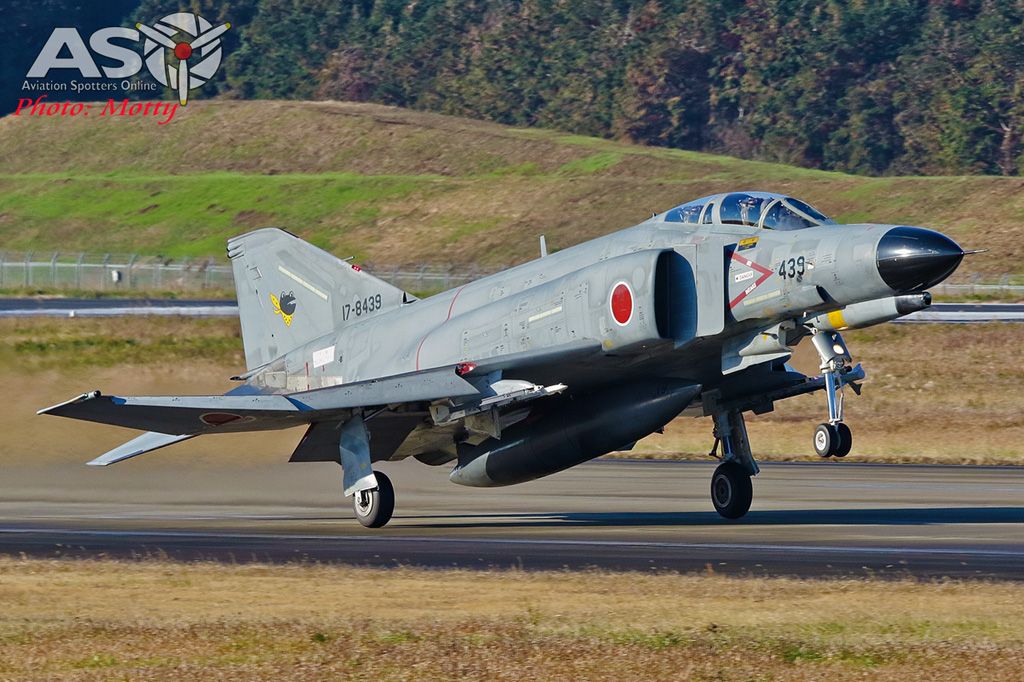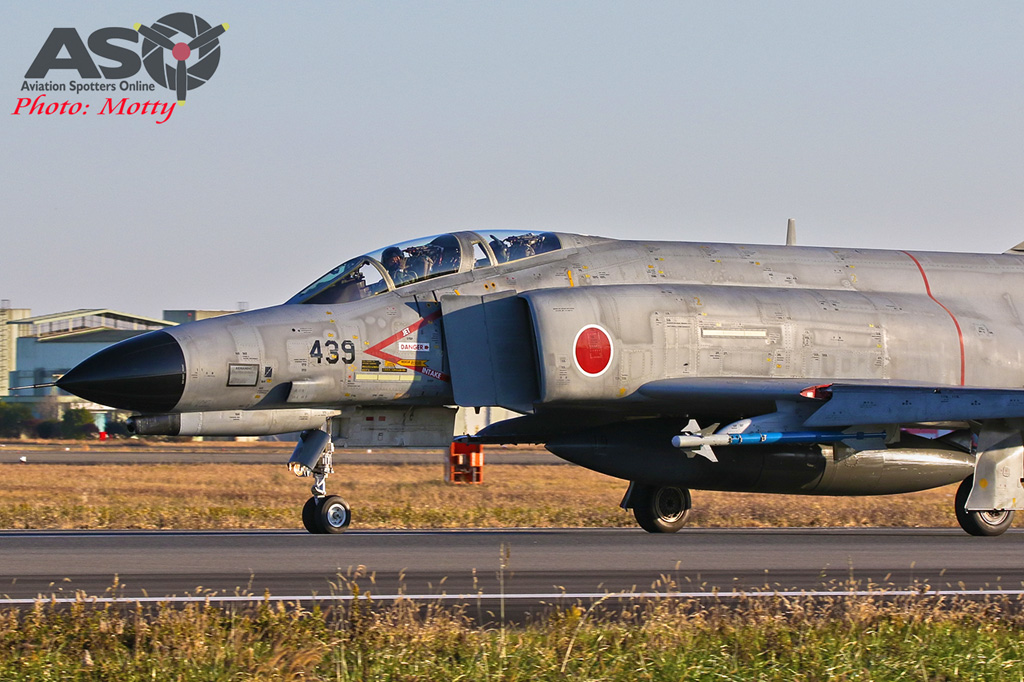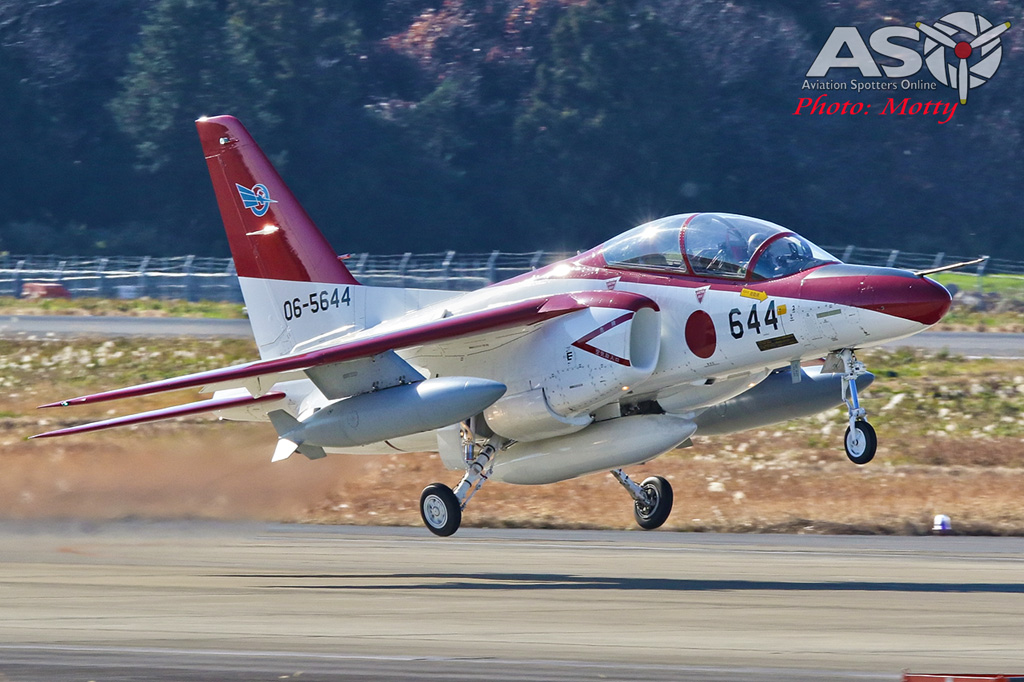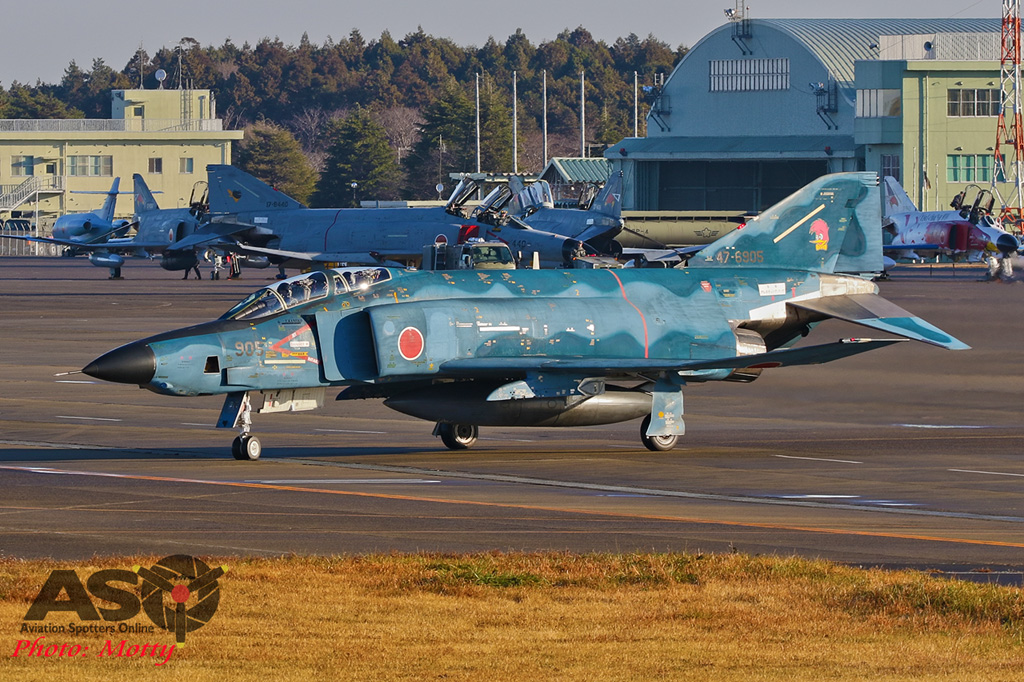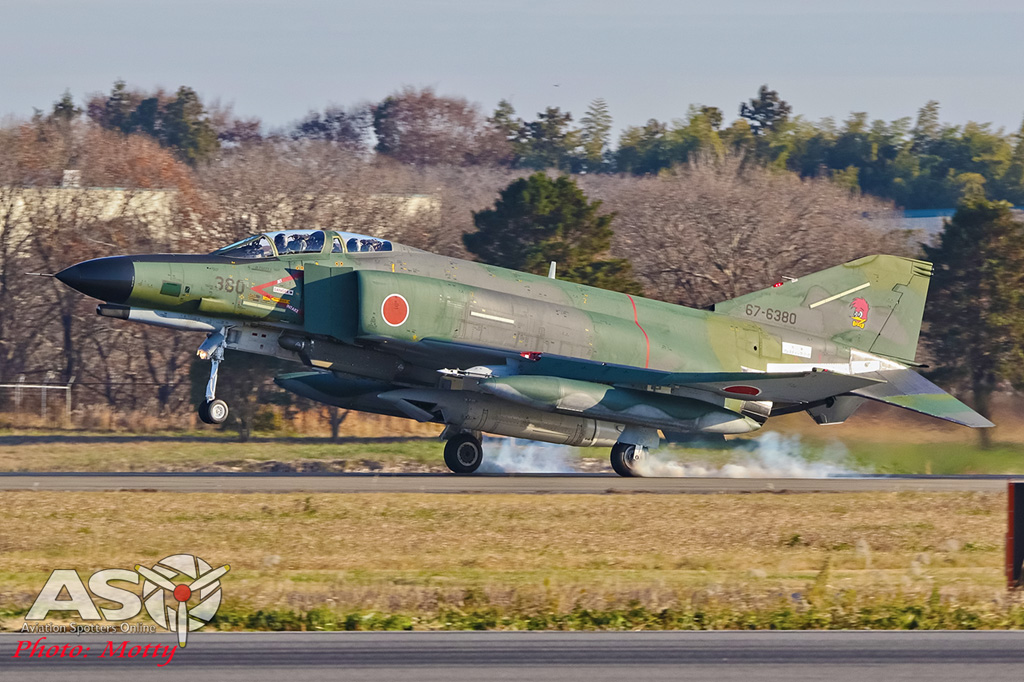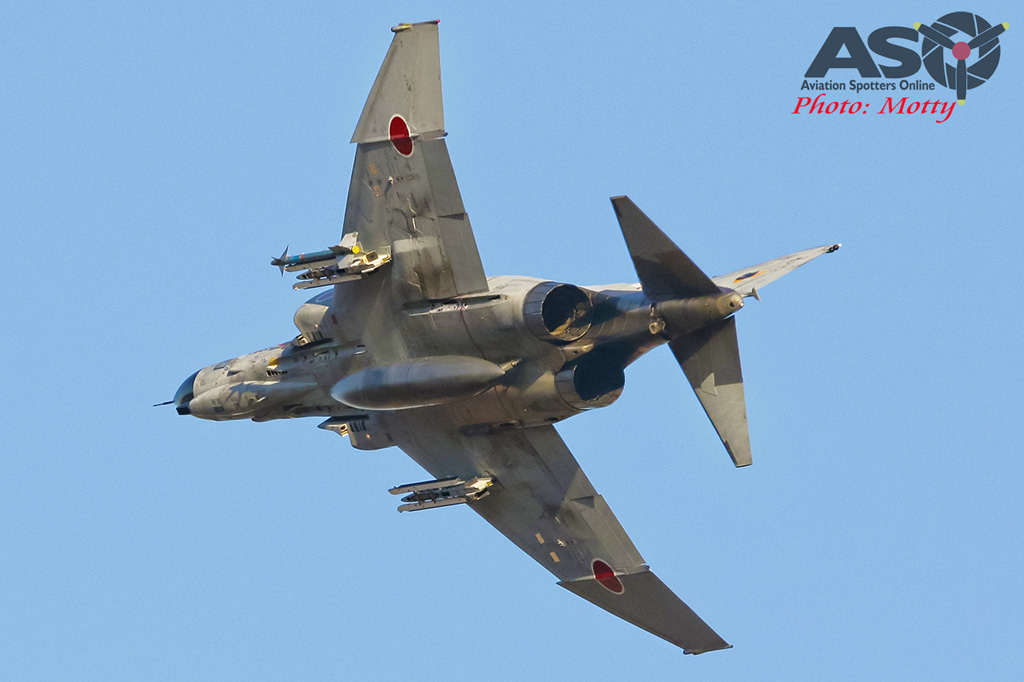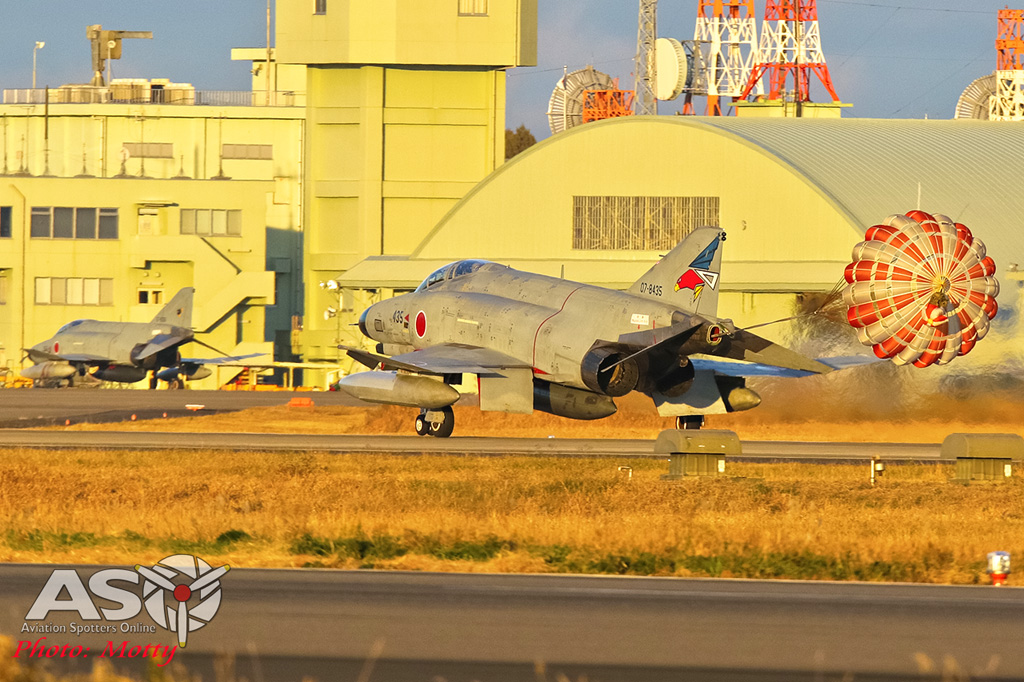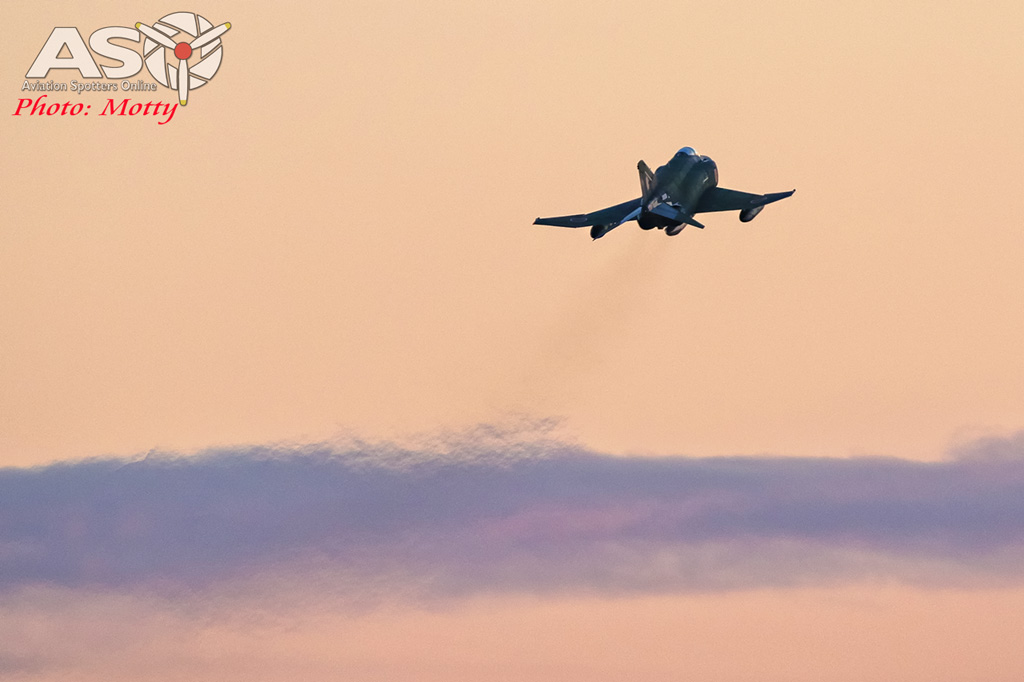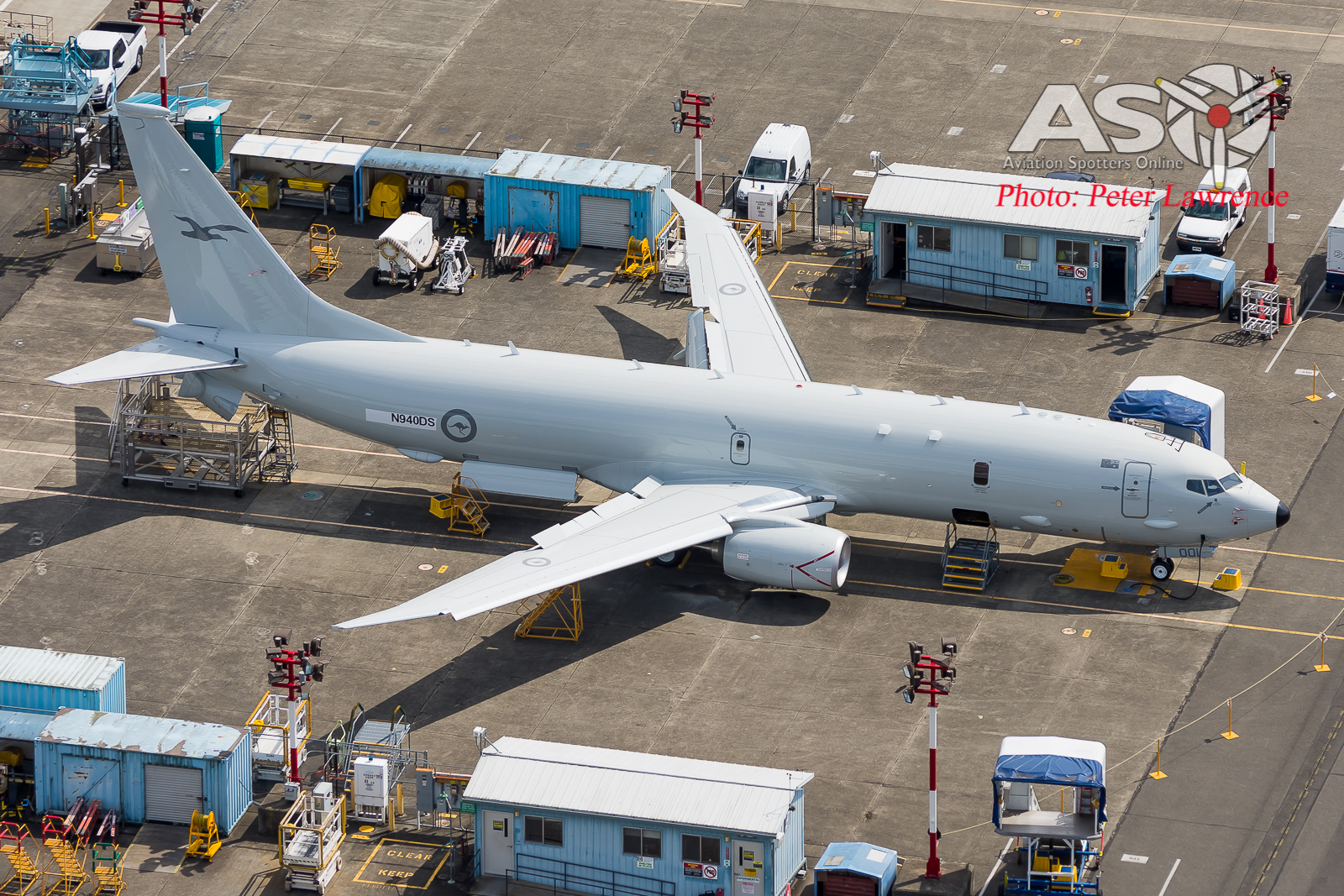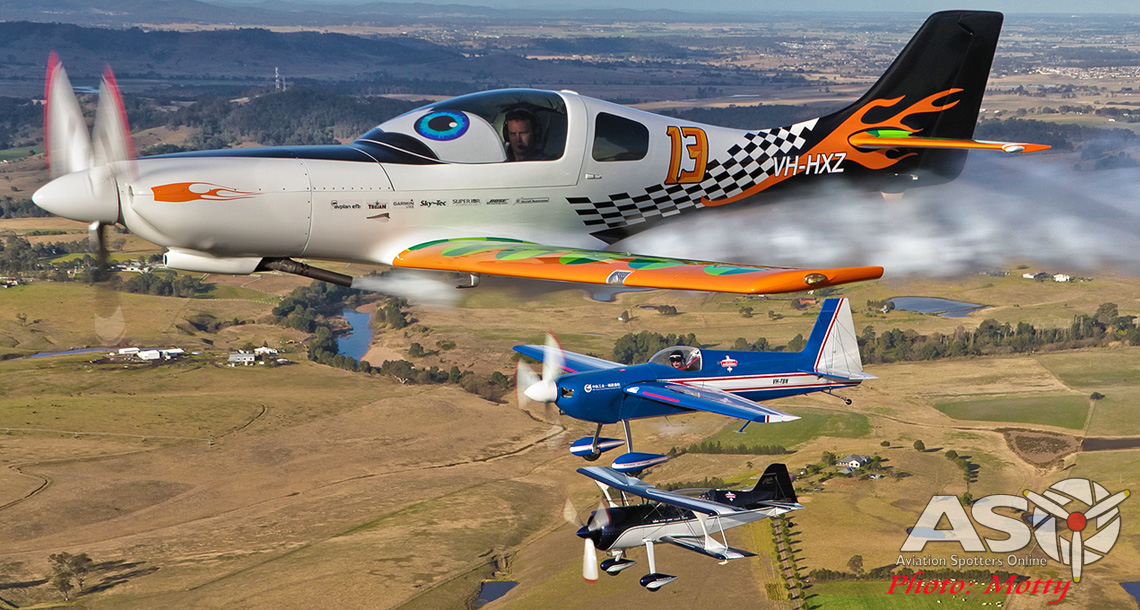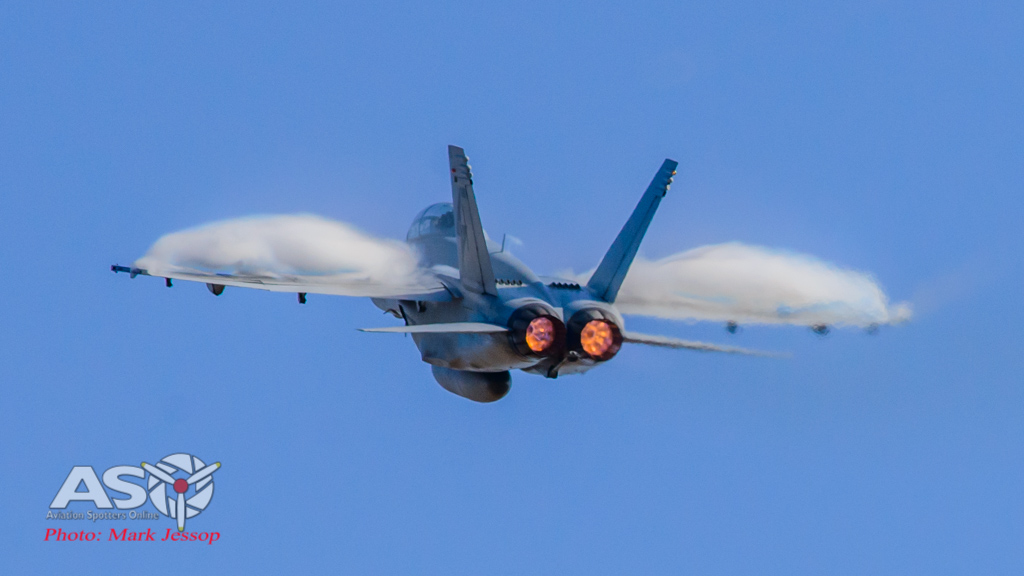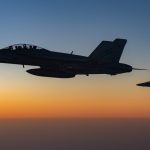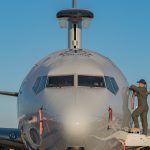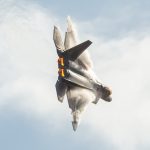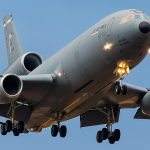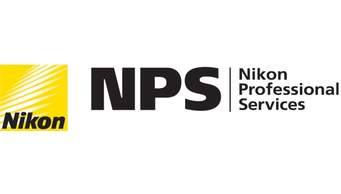Ahh, Phantom spotting at Hyakuri. Looking down on operational F-4s taxiing by just meters away, often with a friendly wave from the aircrew as they head out to, or return from their missions, and catching their take-offs on the runway not much further away, all in beautiful morning light. It doesn’t get much better for spotters than this, does it?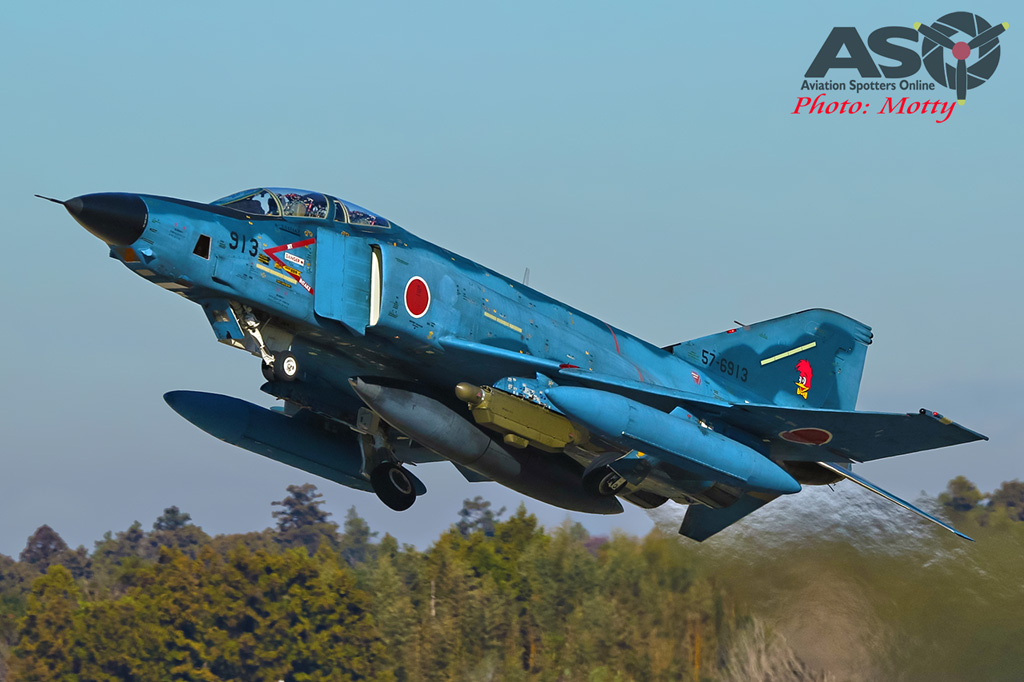
The Japan Air Self Defense Force (JASDF) base at Hyakuri, about an hour’s drive north of Tokyo’s Narita international airport, must surely rate among the top, must-visit places in the world for spotters. Especially if, like me, you are a fan of McDonnell Douglas’ iconic F-4 Phantom II. I have been fortunate enough to be able to visit Japan a few times over the years and I made this most recent trip at the end of 2018.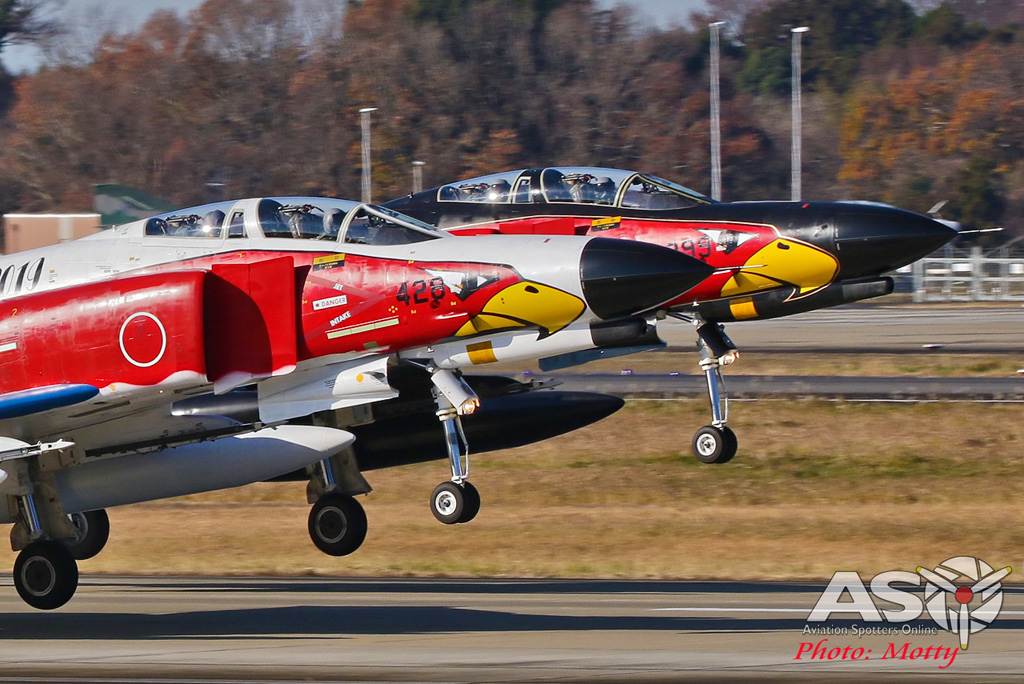
Japan is a great country to visit and, as Dave’s articles on Iruma, Hammamatsu and Atsugi have shown, it’s a great place to go spotting too. They have a very tolerant attitude to the hobby and both local and international spotters can be found at various places along the fence-lines of most military bases, with their ladders, wherever access is possible. Indeed the hobby is so commonplace that some bases even have dedicated viewing areas provided.

A busy day at the Hyakuri fence. There will almost always be at least a few local spotters at most Japanese bases, any day of the week.
Hyakuri is no different, with numerous locations available along the western side of its roughly north/south runway (although these are really most suitable for afternoon photography). What makes it truly amazing though, is the area known as “the towers” on the eastern side; a small plot of privately owned land inside the base perimeter containing some family shrines. This land is completely surrounded by the base, with the taxiway out to the southern end of the runway actually being diverted to go around it. The owners have taken advantage of this unique location over over time by allowing aircraft spotters access to it (for a fee) and have actually provided specific viewing access by building a series of towers and viewing platforms which give an incredible view of the base’s daily operations.

The classic “Hyakuri view” which has been enjoyed by countless spotters over the years, as the jets taxi around the Towers on their way to the runway.
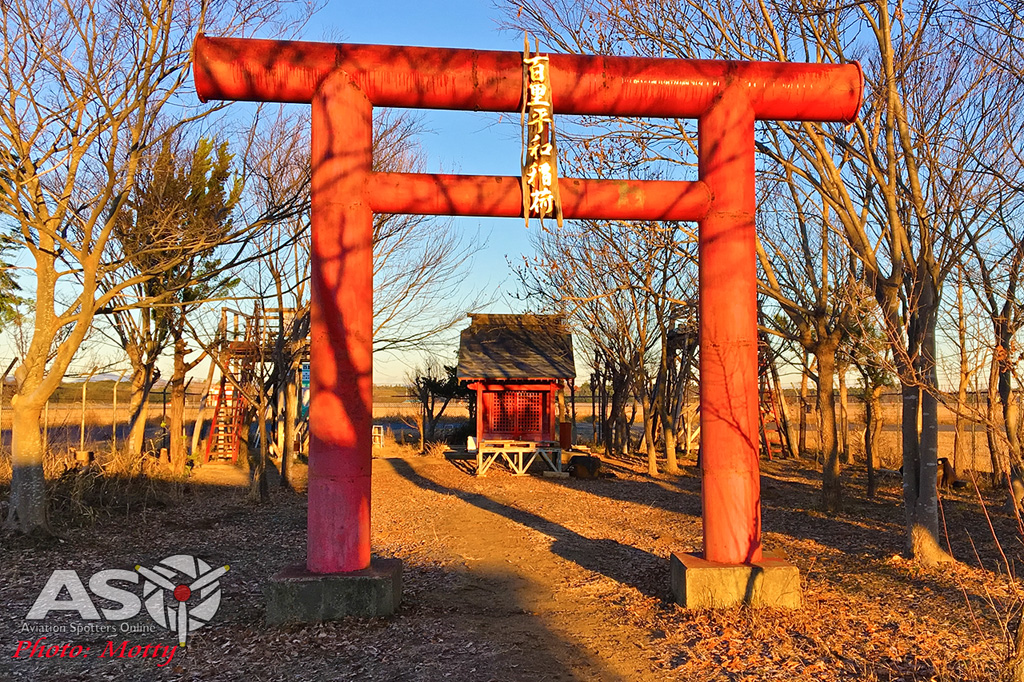
A look at the two towers (no, not those two towers) near the shrine in the southern compound. These have been here for many years and are the original towers that many spotters will know of.
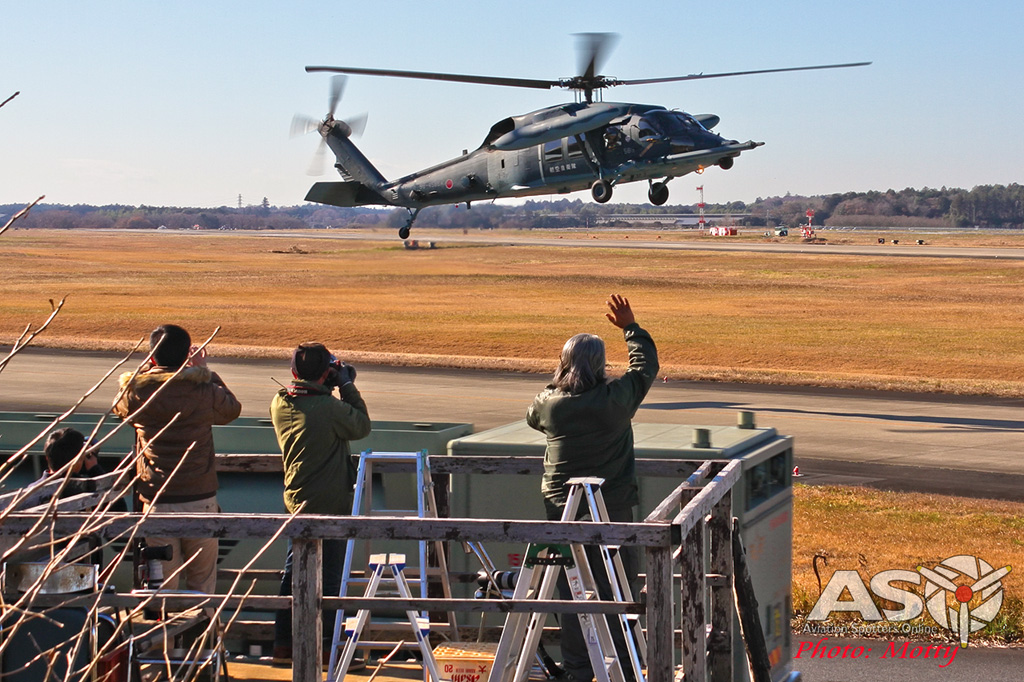
An idea of just how close you are to the action. This is the left tower in the previous images, taken from the one on the right. That’s a fuel tanker in front of the spotters, driving past on the road just on the other side of the fence too.

A view of the tower in the northern compound (the two compounds are connected by a track wide enough for a car to drive along). This tower is much newer than the other two, only being built within the last couple of years.
JASDF squadrons have been moved around over the years as requirements and aircraft types change, and a re-shuffle in 2016 meant that all three of the JASDF’s remaining F-4 Phantom units (301, 302 & 501 Hikotai [Squadrons]) were now all based at Hyakuri (301 Sqn was, most recently, based at Nyutabaru in southern Japan), making it an absolute heaven for Phantom Phans (the Air Development and Test Wing at Gifu also flies a handful of F-4EJ and F-4EJ Kai airframes for test duties).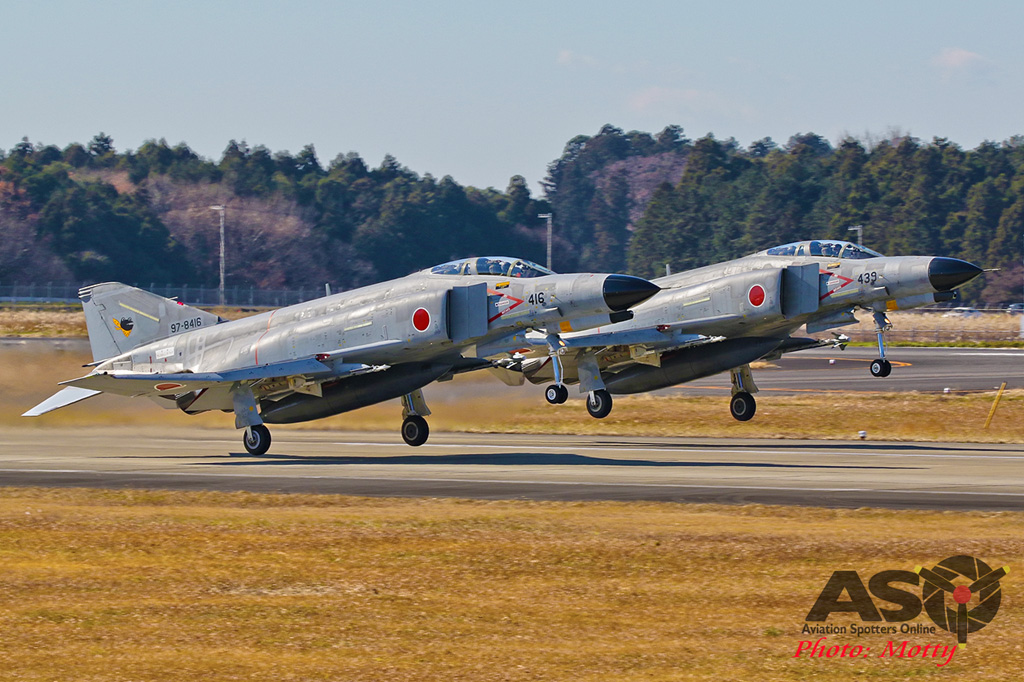
Since this move, 301 & 302 Sqns have operated under the command of the 7th Air wing, also headquartered at Hyakuri, to provide air defence for the Tokyo region, with 301 also carrying out the operational conversion courses for new F-4 aircrew. 302 will, however, be wrapping up their phantom operations and transferring to Misawa air base in the near future as they are slated to become the JASDF’s first F-35 squadron in the next few months. One of the reasons for my trip was to hopefully catch a few 302 Sqn aircraft one last time, before they disband.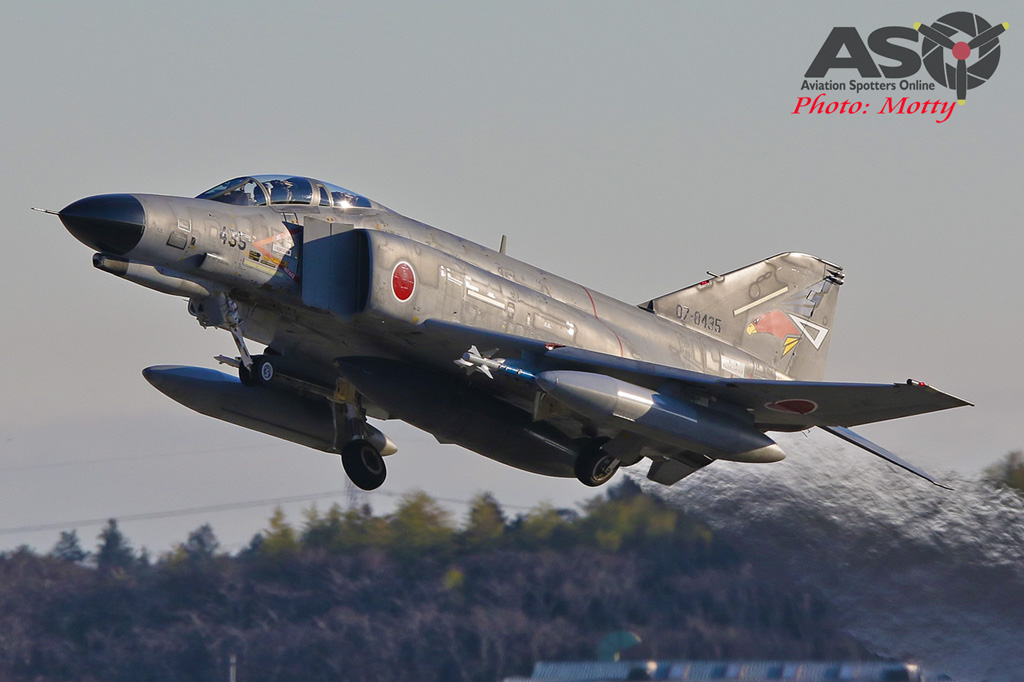
As the JASDF’s only tactical reconnaissance squadron, 501 currently flies a mix of RF-4E Kai and RF-4EJ Kai Phantoms, the latter being gun-nosed F-4EJs which were modified to carry a range of external camera and sensor pods to supplement the original, camera-nosed RF-4E fleet (the Kai designation roughly means “change” or “modify” and was applied to the JASDF F-4s which went through a mid-life upgrade program in the early 1990s).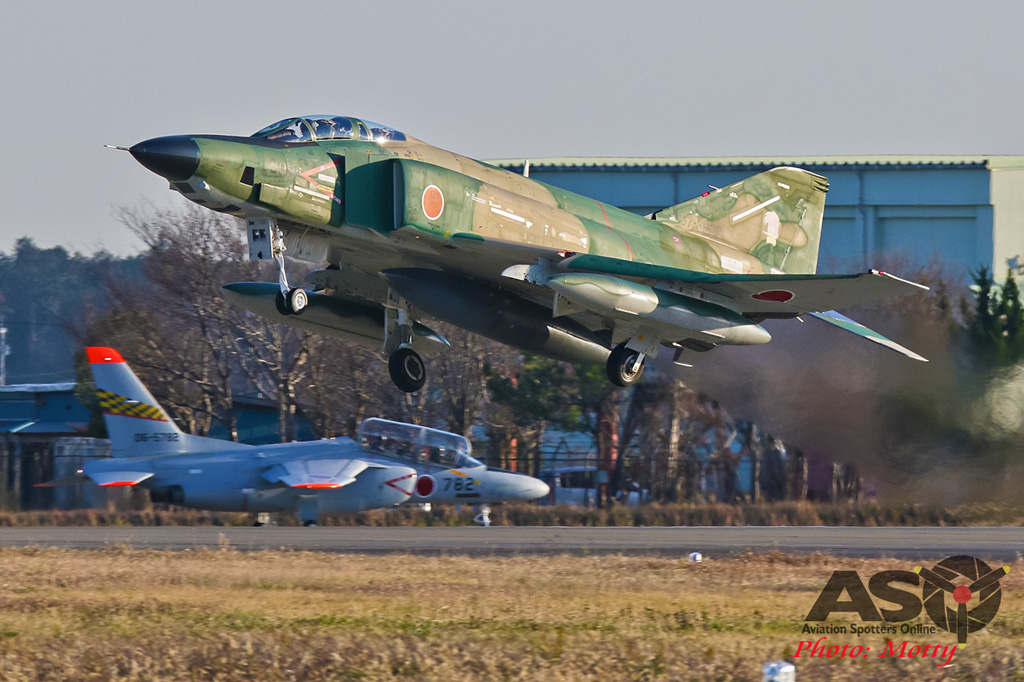
Another aspect of JASDF operations which adds to the variety when spotting is that each of the fast-jet units also operate a small number of locally made Kawasaki T-4 trainers for various duties such as currency training, liaison, dissimilar combat and so-on. It seems that at least one T-4 precedes just about every sortie made by each of the units.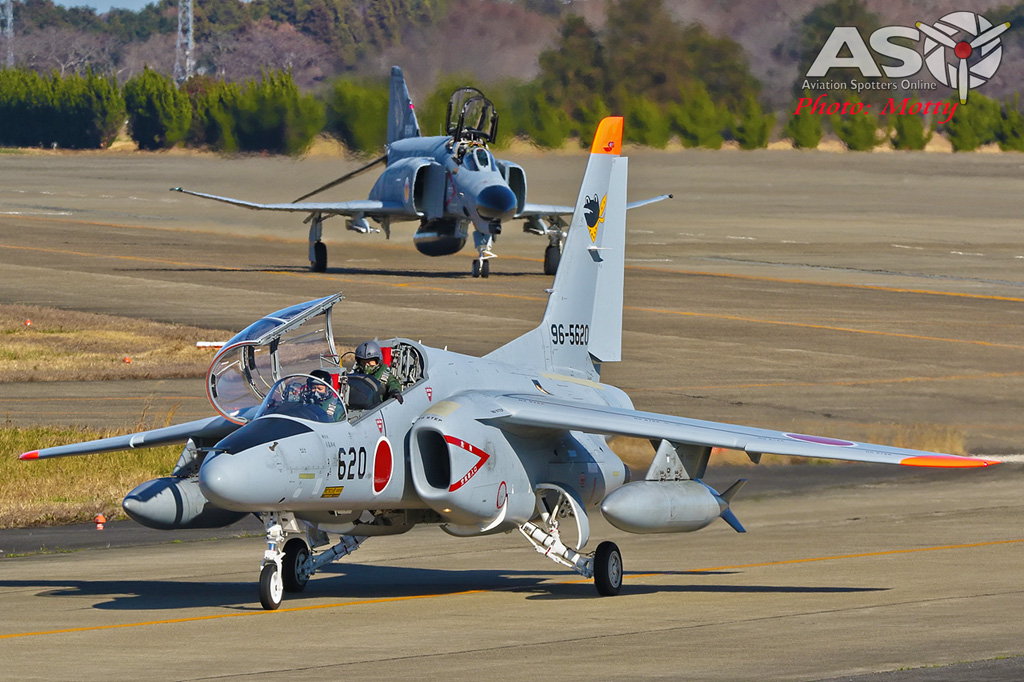
One of the many things about JASDF aircraft that makes them so appealing to spotters, is their tendency to apply interesting and attractive markings and colour schemes at almost any opportunity. So an occasion like the retirement of one of the last (and longest serving) F-4 units was definitely going to be marked in style with not just one, but two airframes fully painted up in special schemes. The first, a predominantly white scheme, based around 302 Sqn’s eagle unit marking was painted up earlier in 2018 and appeared at many airshows around Japan that year while a second, black version of the same scheme was unveiled at Hyakuri’s own show in early December, where the two schemes were flown together for the huge crowds.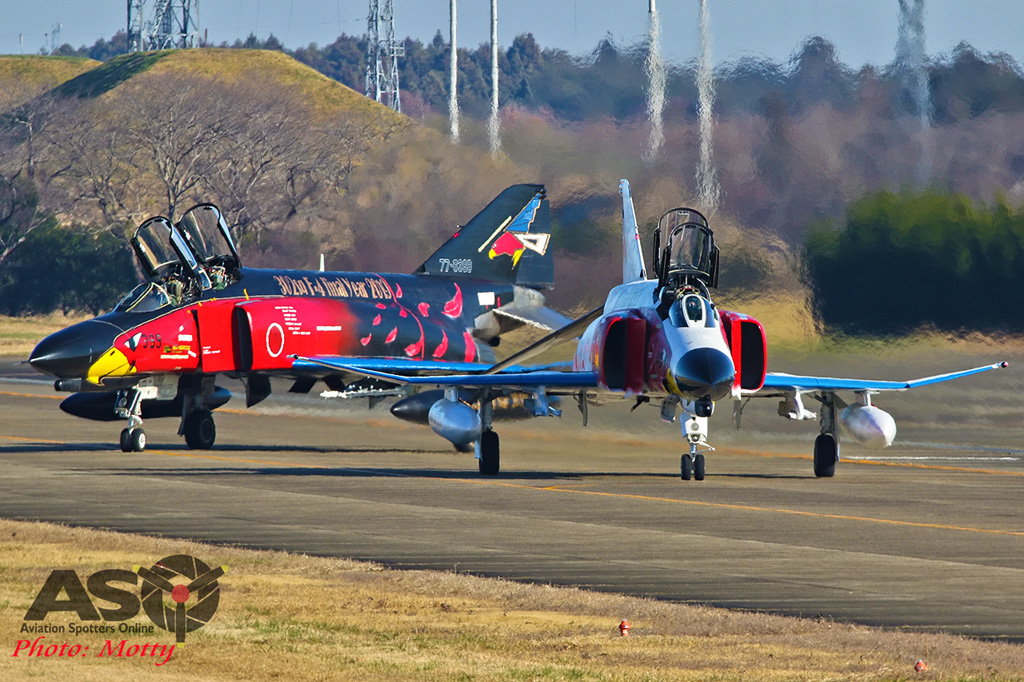
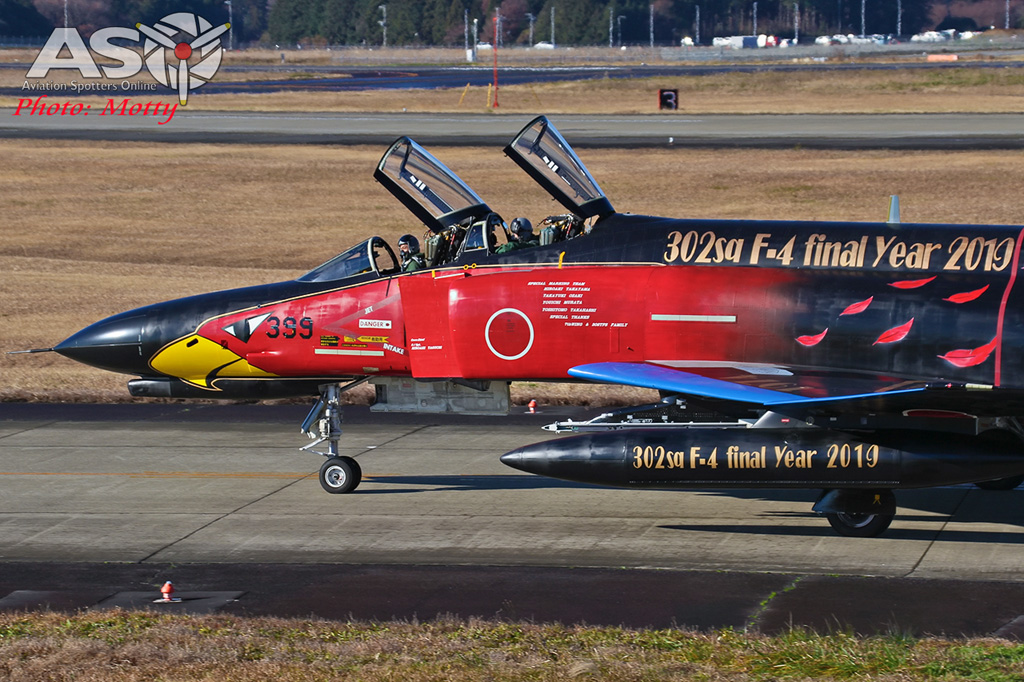
My trip to Hyakuri was later in December, a couple of weeks after that airshow, and word at the time was that the white airframe may have flown it’s final hours and been retired by then, so my best hope was that I might at least catch the black one out-and-about, if I was lucky. Imagine my surprise and delight then when, on my first morning at the towers viewing spot, both of these specially marked Phantoms headed out towards us for a mission! (I should have realised something was up when I arrived at the viewing compound to find it absolutely packed with local spotters, which is quite unusual).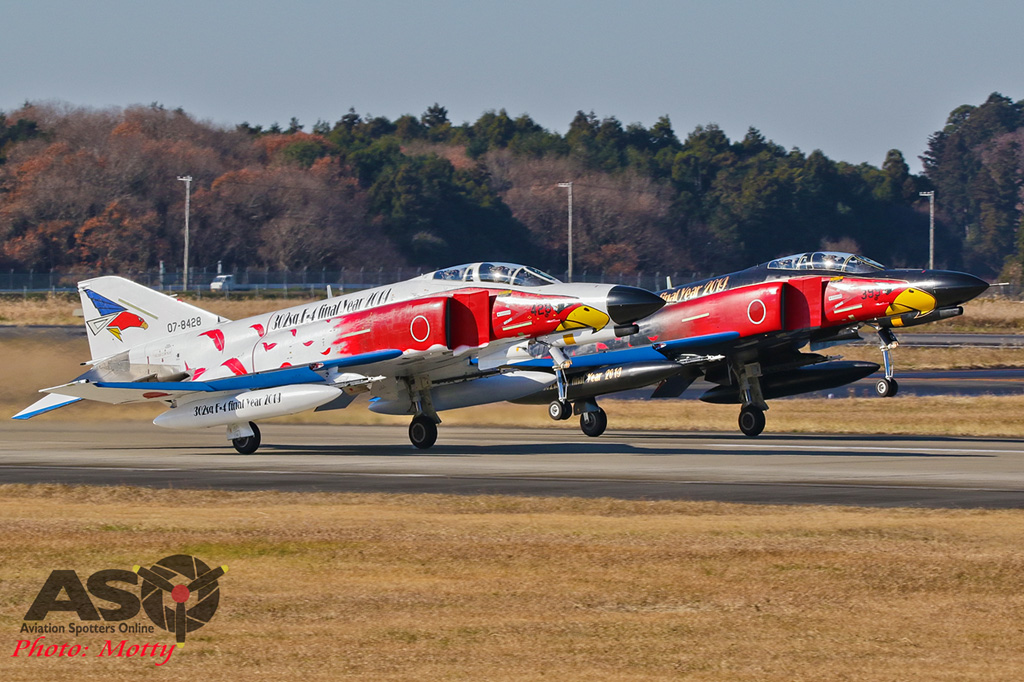
As it turned out, it was a photo sortie to capture the two together as the T-4 which preceded them had a (very lucky) photographer in the back seat. After the T-4 had taken off to reposition itself, the two Phantoms took off together and disappeared into the distance, returning about an hour later when they performed a go-around in formation before breaking off and landing individually.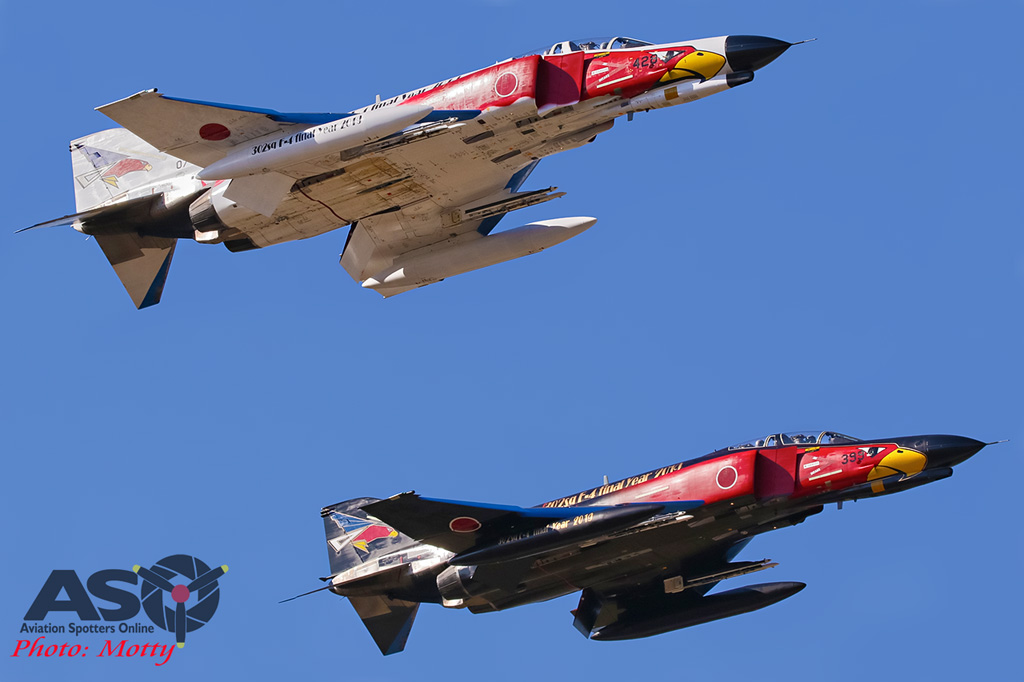
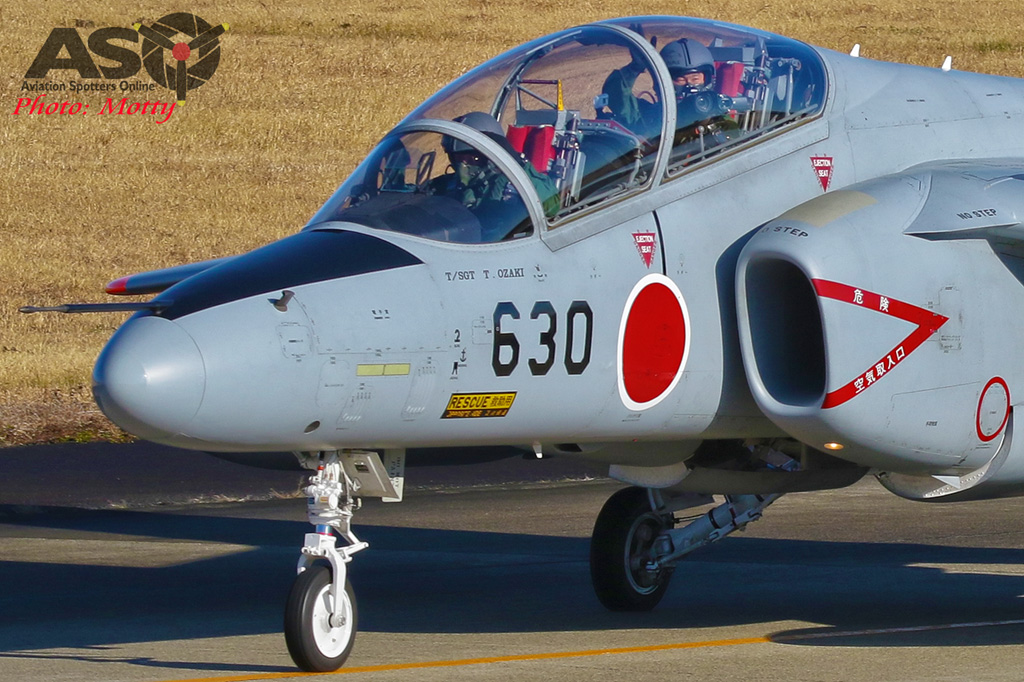
The 302 Sqn T-4 with a very lucky (and happy) photographer, which accompanied the two 302 Sqn specials.
501 Sqn also operate three RF-4E Kais in a very attractive, two-tone blue, maritime camouflage scheme, similar to that worn by the Mitsubishi F-2 fleet and also worn by 8 Sqn Phantoms based at Misawa before they transferred to the F-2 in 2009. Another of my hopes for this trip was that I might be able to capture at least one of these colourful jets out-and-about in some good light. On my second morning at the towers I was very happy to catch two of them, along with one of the Sqn’s RF-4EJ Kais.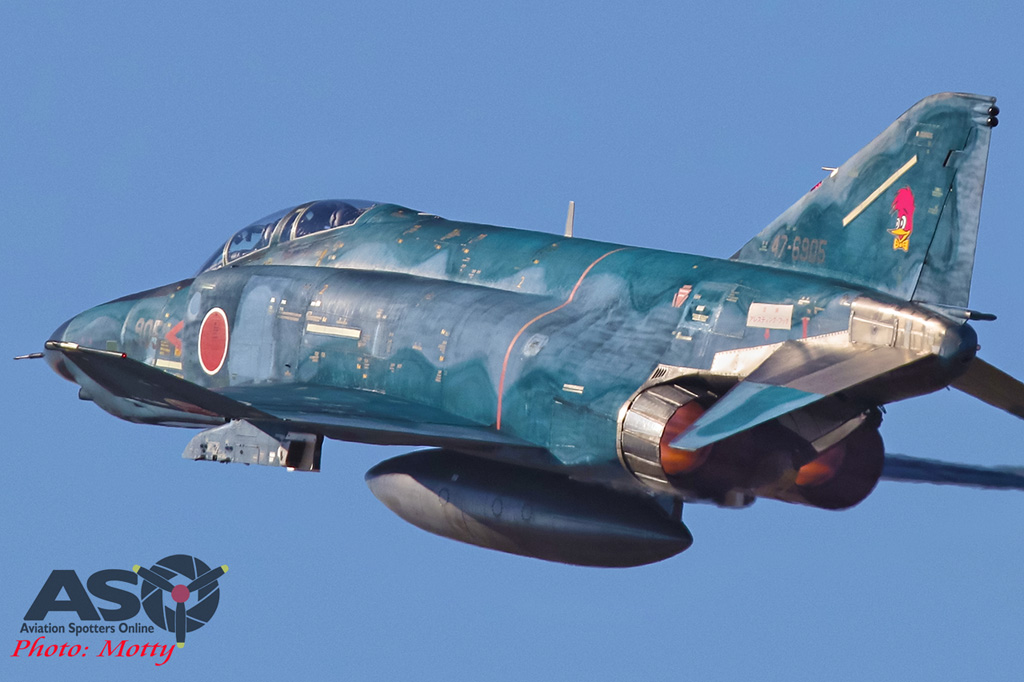
As Dave also mentioned in his articles, the Air Rescue Wing, Headquartered at Iruma air base, provides detachments for Search and Rescue to most JASDf Bases, with Hyakuri having a pair each of UH-60J helicopters and U-125 fixed-wing aircraft. These will usually be seen heading out to and returning from various training sorties or, in the case of the UH-60s, conducting training flights in an area of the base just to the south of the viewing towers. We were treated to a great view as one of these hover-taxied past the towers, at eye level, on its way back to the lines.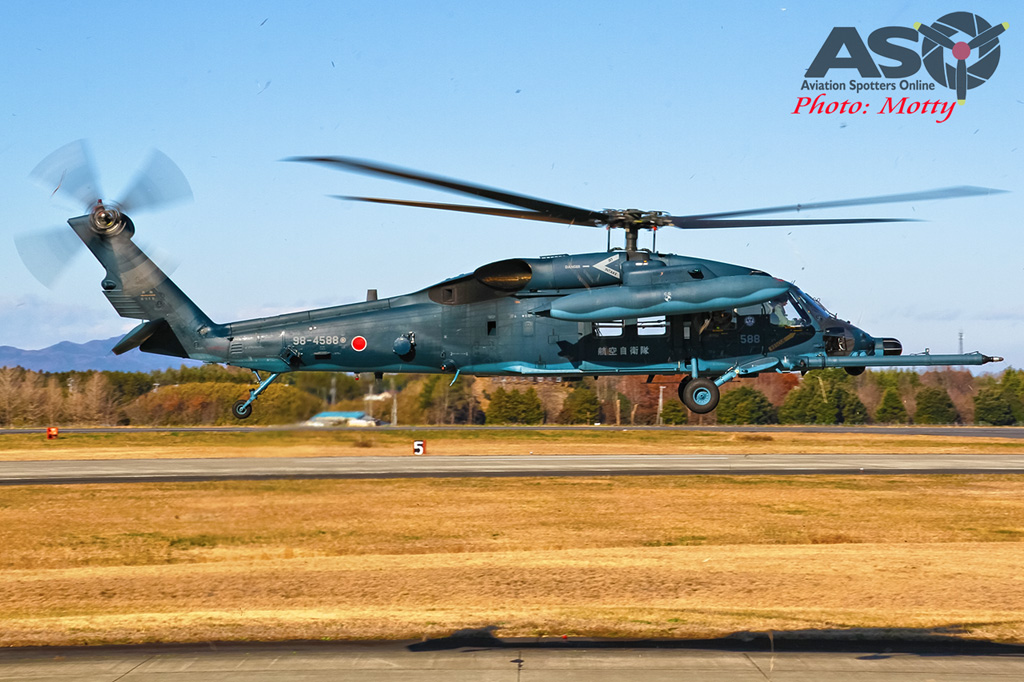
When spotting at any airbase, anywhere, there is always the hope that you might also get to catch some interesting visitors from other areas. During my visit we were treated to a few different T-4s from the 32nd Training Sqn at Hamamatsu, Central Air Command Support Squadron at Iruma , and one from the 13th Flying Training Wing at Ayisha, in the attractive red and white training scheme. There was also a KC-767 from 404th Tactical Airlift Tanker Sqn at Komaki and a Blackhawk and A UH-1 from the Japan Ground Self Defense Force (JGSDF).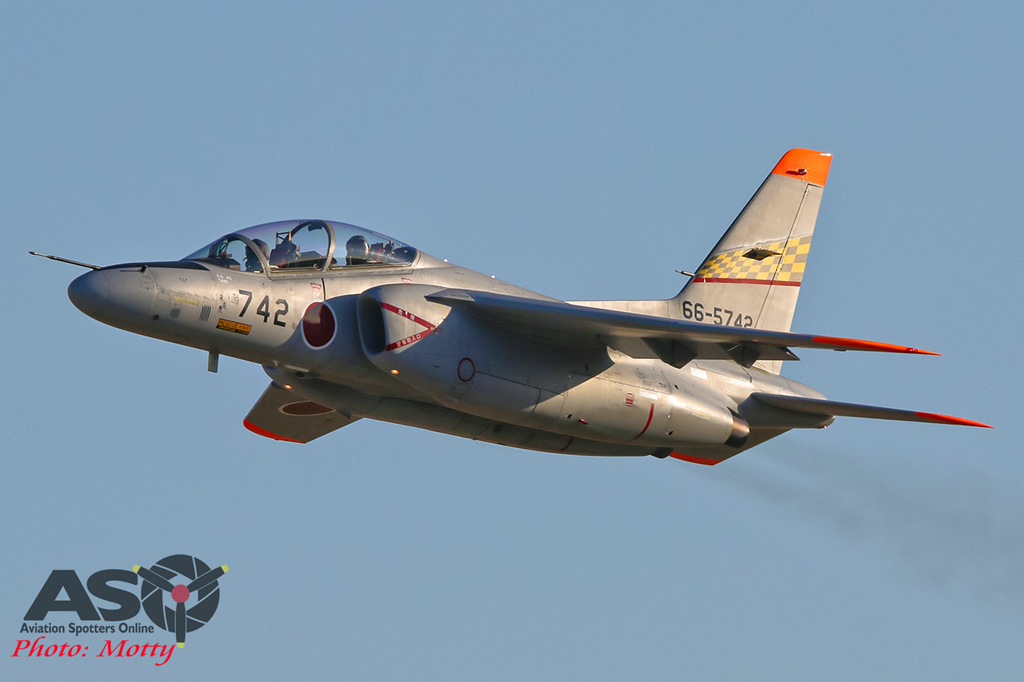
On the second full day of my visit, spotters were also treated to visits by two different batches of F-15J Eagles from 203 Sqn at Chitose Air Base, in Hokaido, which came down to conduct training with 301 Sqn throughout the day before heading back home that afternoon. Hyakuri has been home to a number of F-15 units in the past, before the Phantoms came back to roost (not this Sqn though), so it was great to see some back again, even just for a day.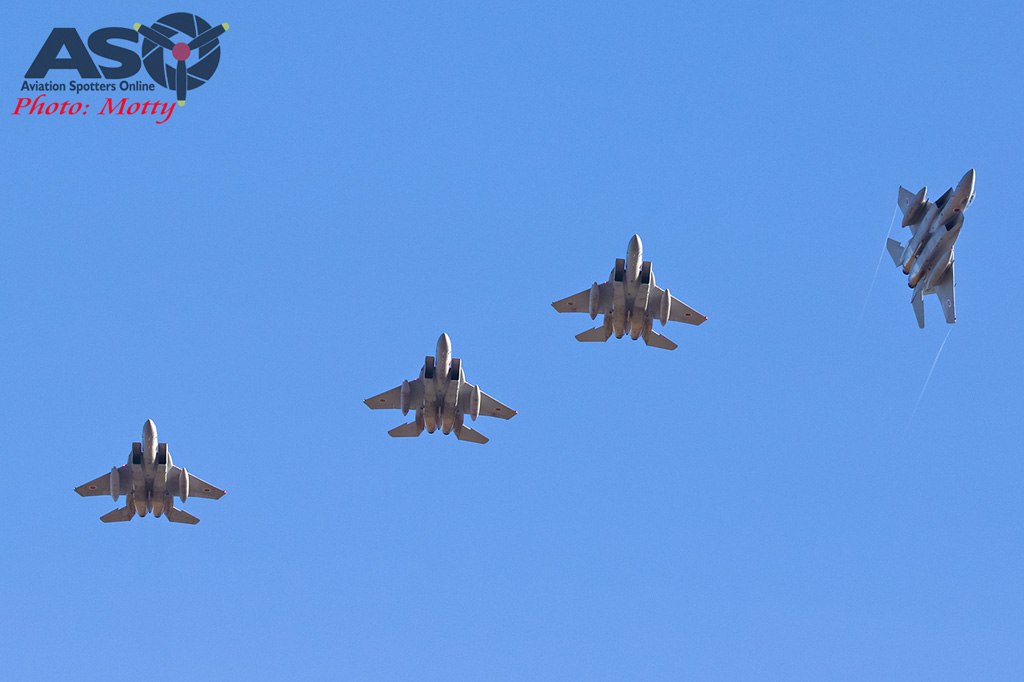
As part of their air defence responsibilities, 301 and 302 Sqns maintain armed aircraft on Quick reaction Alert (QRA) in a set of hangars to the south of the field. Part of this process seems to be regular “practice” scrambles where, early in the morning, before flying has begun, two jets will start up, taxi to the runway and power up as to take of (and even start rolling) before quickly throttling back and returning to the hangars. There is also a regular change-over of airframes from each of the Sqns so there is a chance to see the ground crews taking fully armed replacement jets down to the QRA then returning with (also fully armed) aircraft back to the lines where they are disarmed and returned to regular squadron use.
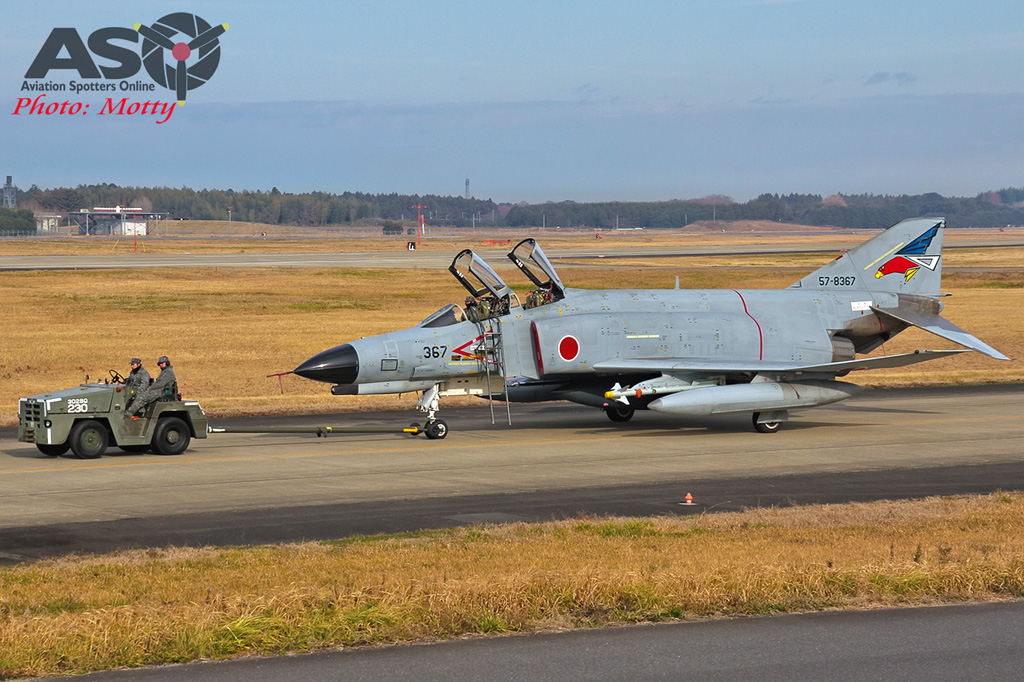
Armed jets are regularly rotated through QRA duties which sees them towed past the towers on their way to and from the alert hangars.
There was no flying for the final two days of my visit, but that didn’t mean there were no aircraft to be seen. The JASDF put all their aircraft into hangars overnight (at least their fast-jets anyway) and wheel them all out again in the morning. Even on what would turn out to be the non-flying days, it seemed like the whole squadron was brought out and parked on the flight line as usual. Some jets had maintenance carried out, engine runs performed and some aircraft were configed or de-configed for QRA duties. others were even sent out to perform “mock take-offs”, like the QRA jets, for some maintenance purposes. Some just sat there all day and got put away again that afternoon. If you’re into collecting numbers, these non-flying days can also be a chance to see extra airframes that may not have flown at other times (I managed to catch the third of the blue RF-4Es on these days).
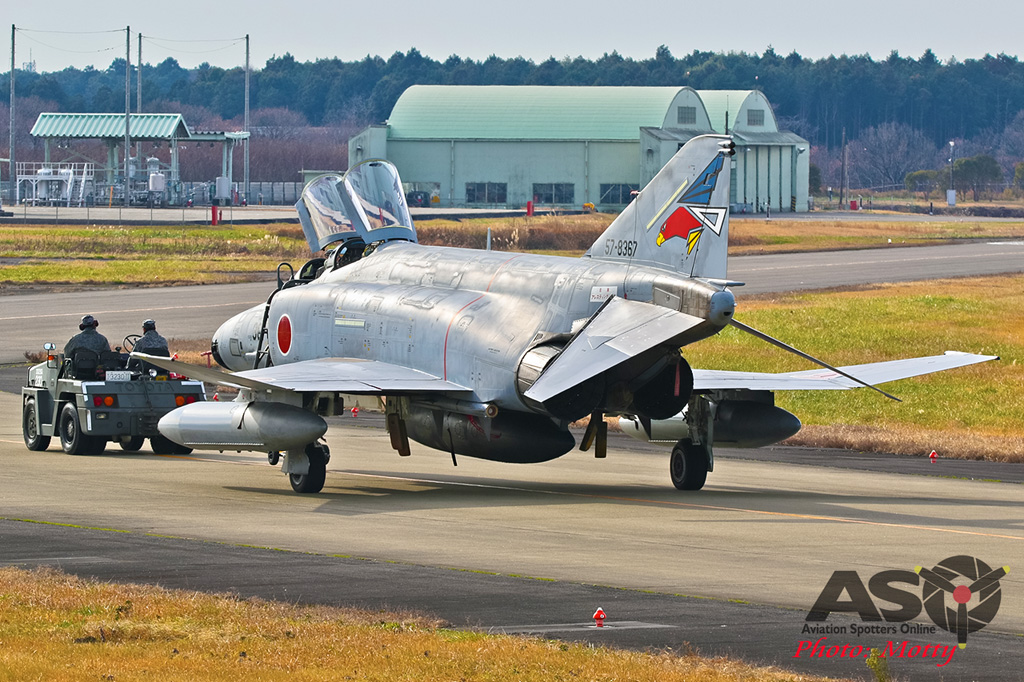
Note the two live Sparrow missiles in the rear mounting points, under the fuselage, of this jet being towed down to the alert hangers at the southern end of the base.
It’s even possible to see some of the maintenance activities in and around the hangar areas from the fence just near where you access the towers area. I was very surprised to catch one of the RF-4Es being set up for engine runs in the “hush-house”, which was just meters away from the fence.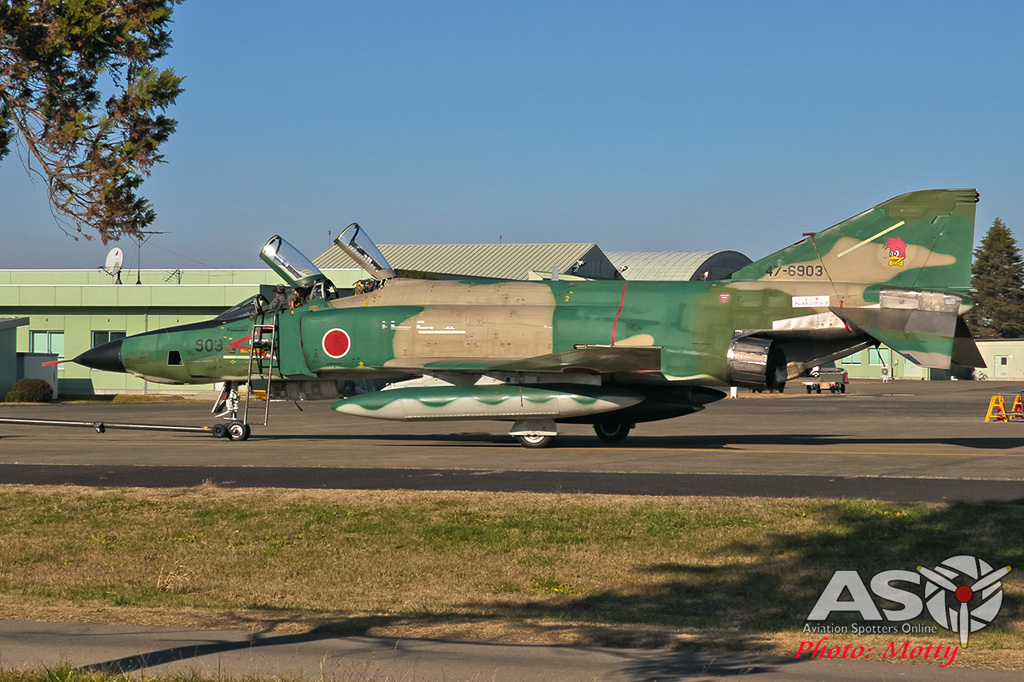
As mentioned, 302 Sqn is due to transfer onto the F-35 within the next few months (the F-35 unit is already working up), 301 Sqn will also convert to the F-35 in either late 2019 or early 2020, and 501 Sqn will retire it’s jets around the same time. it’s interesting to note that 301 & 302 Sqns were the first two JASDF units to convert onto the phantom back in the early 1970s, so they will have clocked up around 45 years of F-4 operations before, once again, becoming the premier units for Japan’s next major fighter for the coming decades.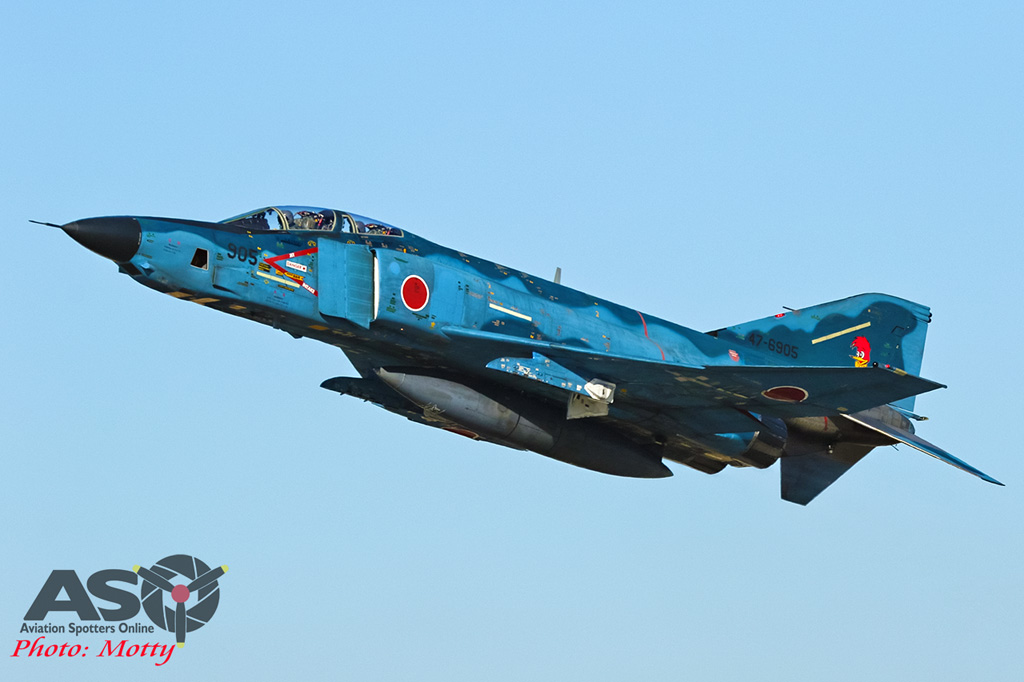
When the jets are flying and the weather and light are in your favor, Hyakuri is one of those locations which reminds you of the sheer fun and enjoyment that aircraft spotting and photography can be.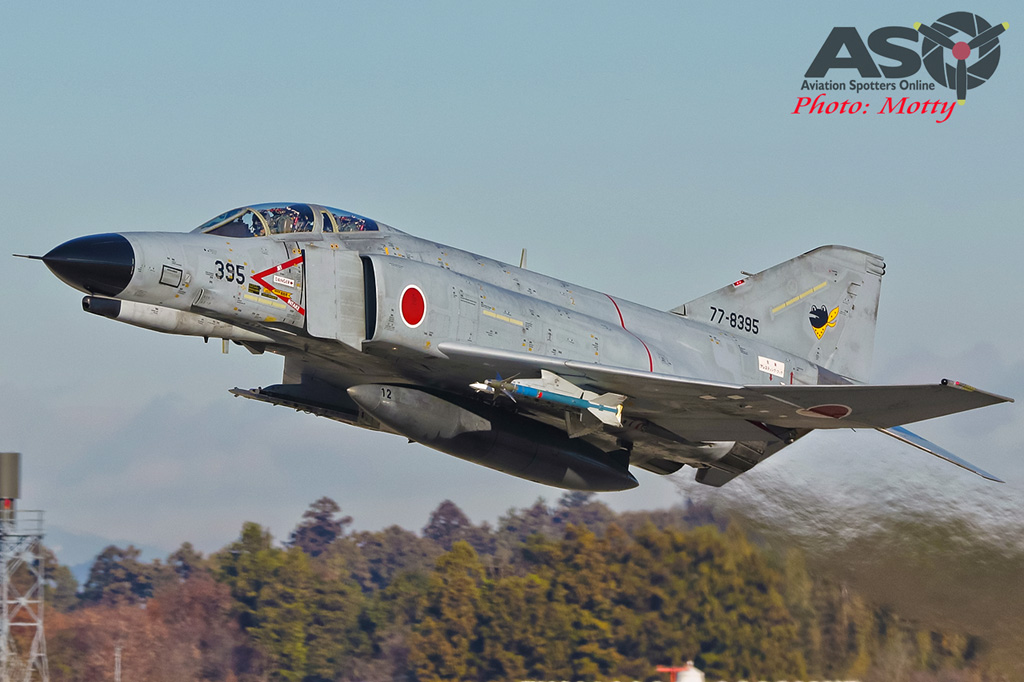
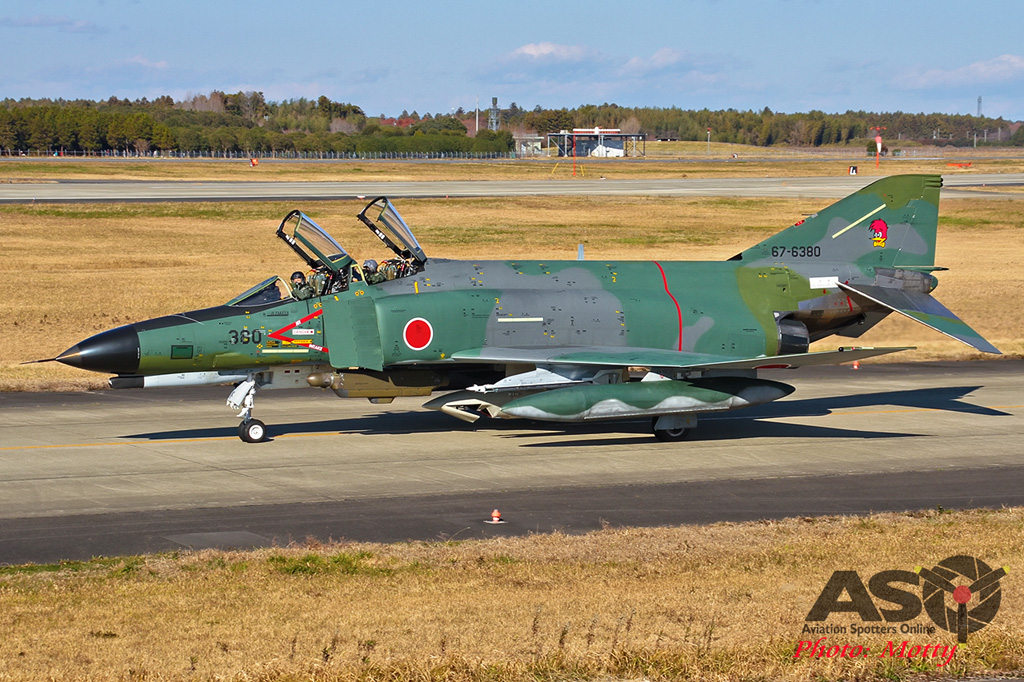
It will be a sad day for Phantom Phans everywhere when the phinal F-4 lands at Hyakuri for the last time, but there will always be lots of other cool JASDF types to see.
Motty.
My thanks to Leroy Simpson for his help and advice when planning this trip.
If you haven’t already, don’t forget to check out Dave Soderstrom’s articles on visiting other Japanese bases, airshows and museums here;
